

28-day Kenya Safari Guide Course
EcoTraining’s signature Kenya Safari Guide course is a 28-day adventure-packed experience learning about nature and wildlife at our wilderness camp in Kenya.

Practical experience
You will participate in various learning activities such as interpreting ecology and animal behaviour, identifying animal tracks and signs, and enjoying a wildlife experience while driving and walking in some of the most magnificent areas of East Africa.
Whether you’ve chosen a professional career linked to wildlife or nature, have just finished school or are on your gap year, this course is for you. It is structured to maximise the practical experience of our learners in the bush.
Send me more information
Fill out the following form to get more information.
" * " indicates required fields
What to expect from the 28-day Kenya Safari Guide Course
Gain hands-on experience.
As a participant in our course, you will gain hands-on experience and knowledge about ecology, animal behaviour and more. You’ll learn how to identify animal tracks and signs, interpret the natural environment, and anticipate animal behaviour.
A truly unforgettable wildlife experience
Driving and walking through the breathtaking landscapes of East Africa, you’ll be immersed in a truly unforgettable wildlife experience. You’ll also master basic 4×4 driving and radio procedures to prepare you for a successful career in field guiding.
Start your career as a safari guide in Kenya
The comprehensive syllabus covers a broad spectrum of topics, including reptiles, geology, soil, amphibians, fish, mammals, weather and climate, and more. With EcoTraining, you’ll receive the training and expertise needed to pursue a fulfilling career as a safari guide in Kenya.
Where the course takes place
The 28-day Kenya Safari Guide Course is held at EcoTraining’s Mara Training Centre in Kenya.
The benefits of taking the 28-Day Kenya Safari Guide Course
This course is designed to give you the practical experience you need to make your dreams of becoming a safari guide in Kenya a reality. With many hours spent each day in the field, you’ll have ample opportunities to hone the skills you need to succeed as a safari guide.
Our experienced instructors will teach you everything you need to know about basic 4×4 driving, navigation, and orientation, radio procedures, reptiles, geology and soil, amphibians, fish, mammals, weather and climate, anticipating animal behaviour and much more.
Certification & accreditation
The Kenya Professional Safari Guides Association (KPSGA) is an examining body whose aim is to improve the quality of driver guides for the Kenyan tourist industry. Tourists expect and are entitled to be accompanied by qualified guides during their visits to Kenya. The KPSGA is committed to ensuring that this is the case.
What you can expect to graduate with
Entry level requirements, what to pack.
We’ve put together a useful packing list for you.
Course dates
02 November – 29 November 2023 ( Mara Training Centre ) 02 November – 29 November 2024 ( Mara Training Centre )
FAQ about the 28-Day Kenya Safari Guide Course
The practical experience you need to make your dreams of becoming a safari guide in Kenya a reality. You’ll learn how to identify animal tracks and signs, interpret the natural environment, and anticipate animal behaviour.
Have more questions? Check out our general FAQ page or get in touch for more information.
Testimonials

Enquire now
From the field on the 28-day kenya safari guide course, useful links, quick links, get social with us, newsletter subscription.
- POPIA & Privacy Policy
- Terms & Conditions

Safari Guide Course in Kenya: 14 reasons to join!
A safari guide course or wildlife training in the African wilderness is an incredible experience for those who are passionate about the great outdoors and want to be more than just a tourist ticking off the Big Five . Joining a wildlife course is a conscious alternative to a safari trip in Africa and a great way to enhance your knowledge of African wildlife and the habitats they live in.
In October 2021, I joined EcoTraining’s 35-day safari guide course in Kenya to get trained as an Apprentice Field Guide or Nature Guide . Not necessarily to pursue a career as a safari guide, but in the first place to spend meaningful time in the bush in order to get a better understanding of the natural environment and animal behavior in relation to wildlife photography and taking people with me on photo safaris to Africa.
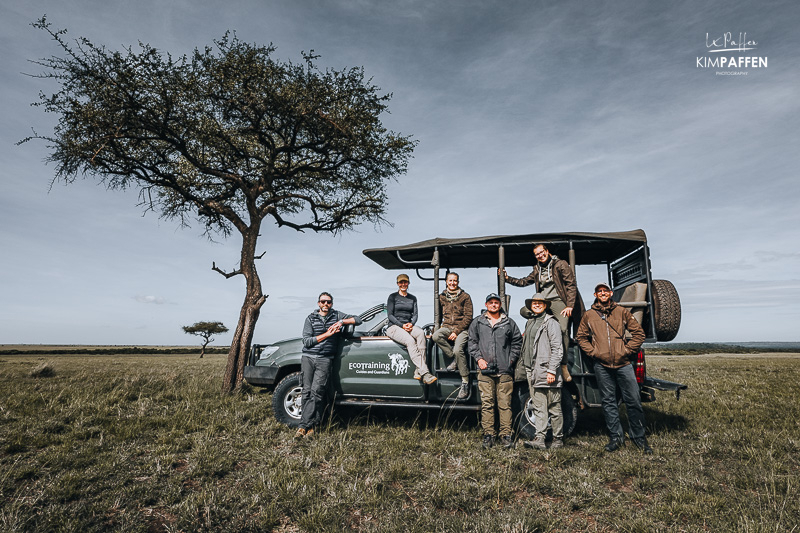
Here are 14 reasons why you should consider taking a safari guide course in Kenya's magical Maasai Mara - one of Africa's top wildlife destinations!
1. (Re)Connect to nature: quality time in the bush
Spending quality time in the African bush was a soul-enriching experience. As a wildlife photographer, I feel at home in the African bush. It’s where I feel most connected to nature and myself. Spending time in the wilderness, observing animals in their natural habitat, forces me to be in the moment because - in the bush - you don’t know what the next minute will bring. Being so close to nature makes me feel humble, alive, and free.
In search of a more meaningful way to spend quality time in the bush with like-minded people, I found EcoTraining, the pioneer and leader in safari guide and wildlife training.
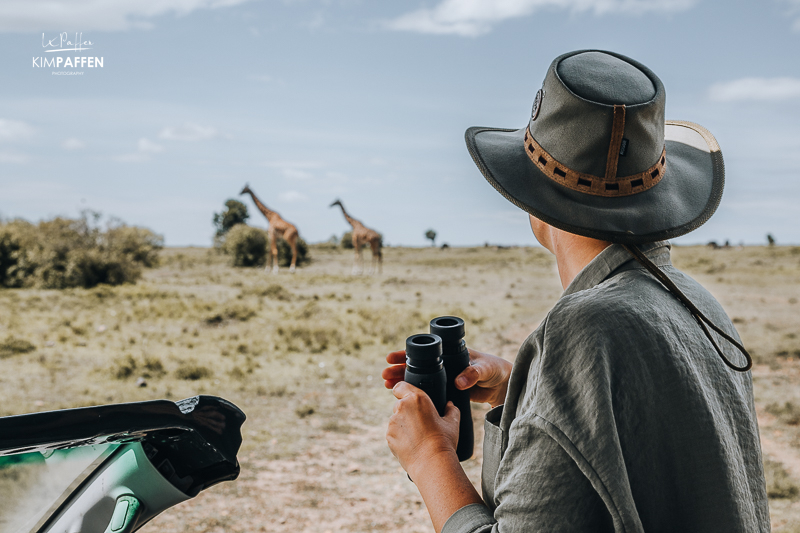
Immerse yourself in nature
Not only will you learn a lot and develop new skills, but you'll also have the opportunity to immerse yourself in the beauty and majesty of the African wilderness . Whether you're interested in a career in the tourism industry or just want to learn more about African wildlife, a safari guide course can provide a sense of personal fulfillment that is truly unique.
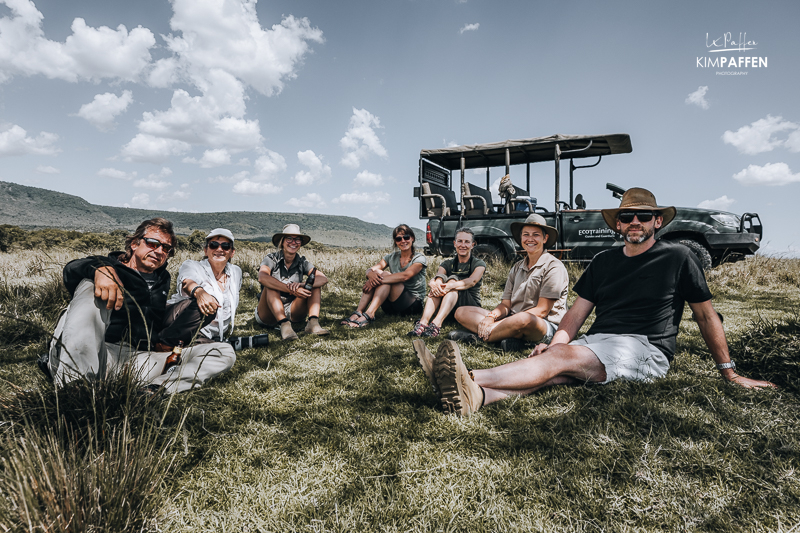
I'm a firm believer that spending time in nature makes you better person and truly enriches your life, if you treat Mother Earth, and all its inhabitants the way you want to be treated, with love and respect. During this wildlife course in Kenya, you learn how to be an ethical safari guide and be an example for the tourists joining you on a safari in Africa.
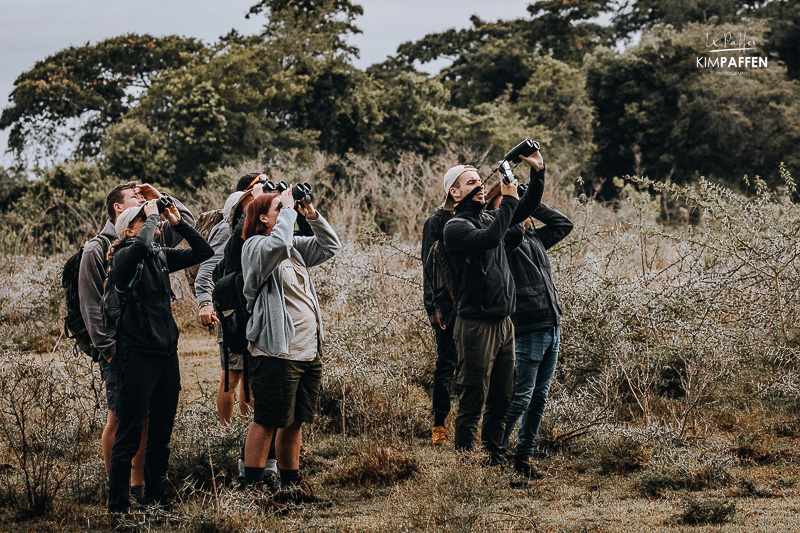
Disconnect to connect
Make the most out of your time in the African bush and try to disconnect from the busy life at home and connect to nature instead by listening to the sounds of the birds, smelling the scents of the bush, touching the leaves of trees to feel the different structures, and being curious as a child while looking at your surroundings. Use all your senses to be in the moment and (re)connect to nature.
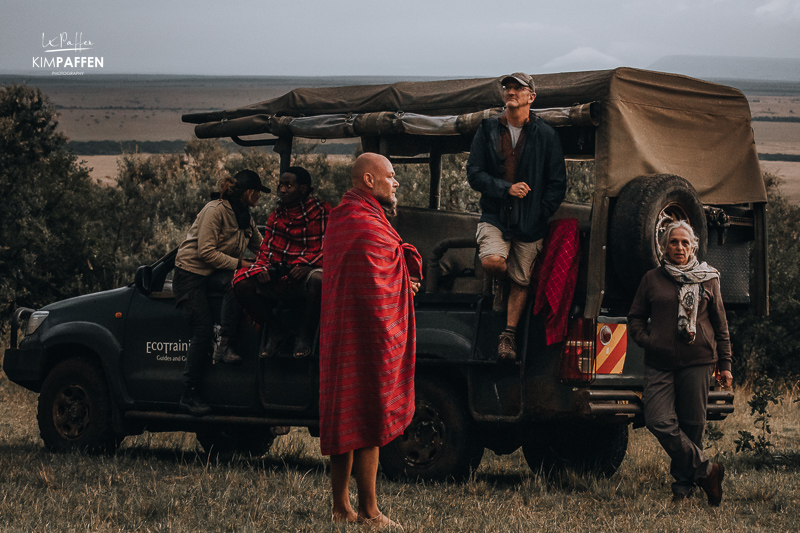
Appreciation for the natural world
Imagine how grateful you must feel waking up to the beautiful songs of the birds and having your first coffee looking at the stars. Imagine feeling the first rays of sunlight on your face on a chilly morning while watching the sunrise over the Savannah landscape on your 6 AM game drive .
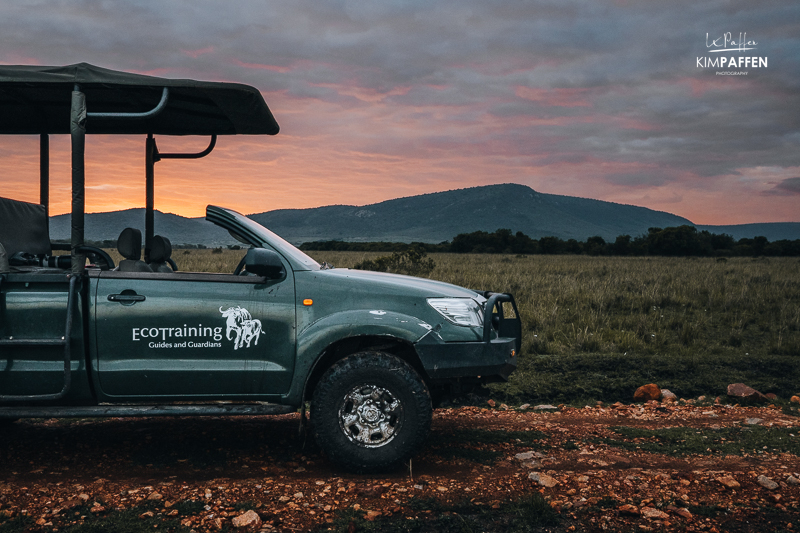
Or what about having a bush breakfast in the shade of an iconic Balanite tree overlooking the vast Mara plains surrounded by animals?
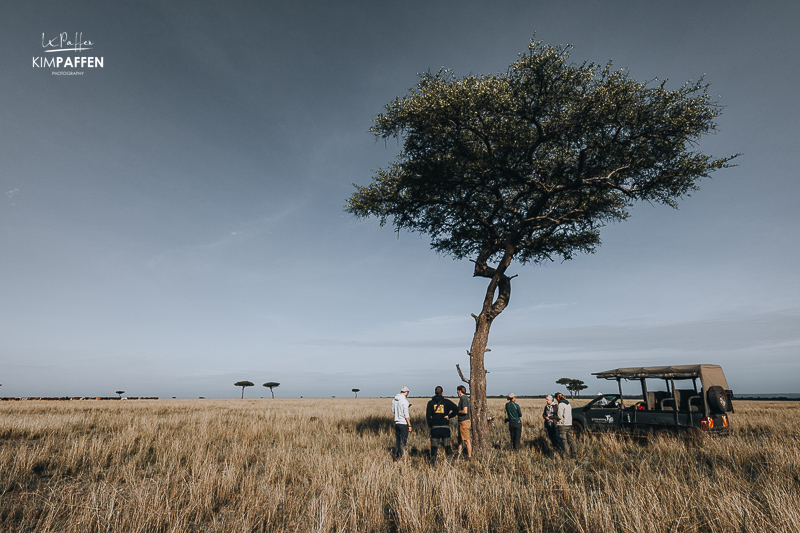
Imagine spending almost all day learning in the bush and experiencing the circle of life from seeing newborns to lives taken.
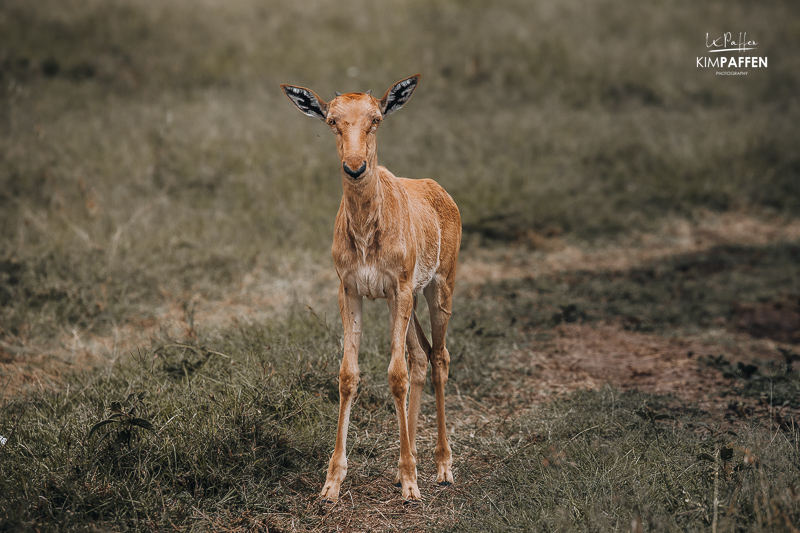
Imagine having a sundowner on your afternoon game drive while enjoying a magical African sunset. And after dinner, you sit by the fire connecting with like-minded nature lovers while looking at a sky full of stars or taking the opportunity to photograph the Milky Way.
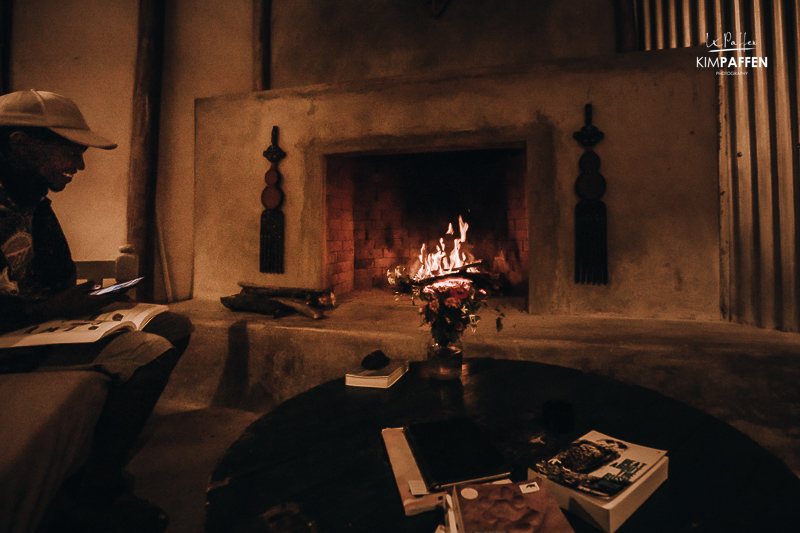
When you're ready to head to your chalet, you hear the laugh of a hyena or a lion 's roar in the distance. In bed, you hear a hippo grazing right next to your tent or a bush baby on the roof. These are all moments of gratitude and appreciation for the natural world we are fortunate to live in. Try to count these blessings!
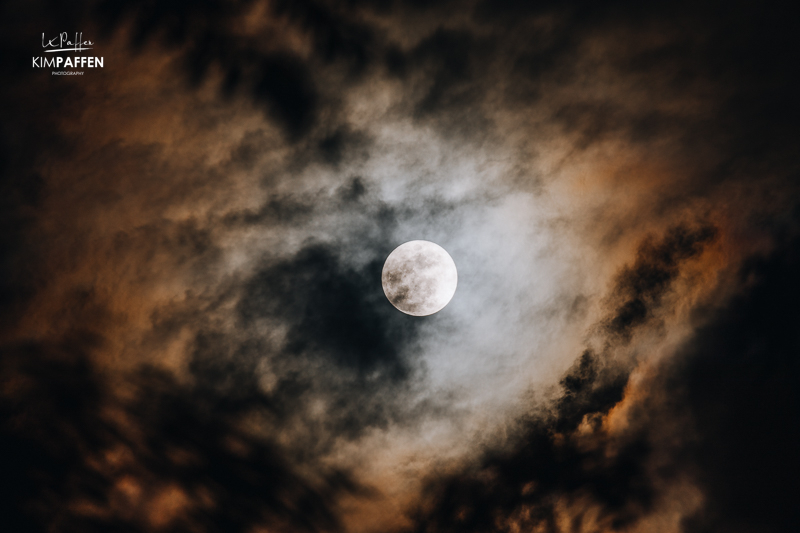
2. Conscious alternative to a safari trip
A wildlife course can be a more sustainable and responsible way to experience the African bush because these nature courses are designed to provide a deeper understanding of African wildlife and the ecosystems they live in.
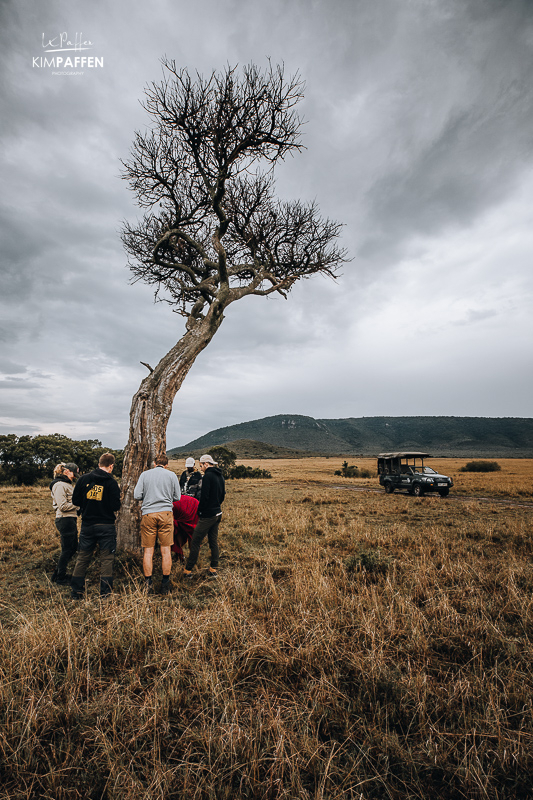
Focus on education and conservation
This also includes a focus on conservation and sustainability , and learning about the threats facing African wildlife and what you can do to help protect and preserve these species and their habitats.
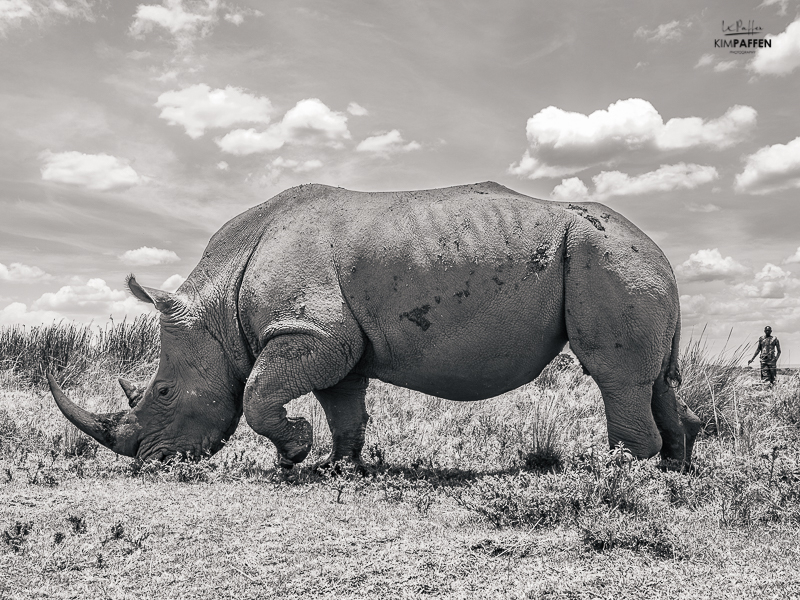
By selling my wildlife photos as Fine Art Prints, I give back to nature by donating 10% of each print sold to EcoTraining to benefit the important work they're doing in educating people and by extension protecting our wildlife. So, if you purchase my Fine Art Prints , you will be making a difference too!
Support local communities
EcoTraining is a training provider that works closely with local communities, providing economic and social benefits. By joining a wildlife training program, you'll have the opportunity to contribute to the well-being of local communities and help to foster sustainable tourism in the region. They train for example two Black Mamba ladies per year. The Black Mambas is an all-women Anti Poaching Unit.
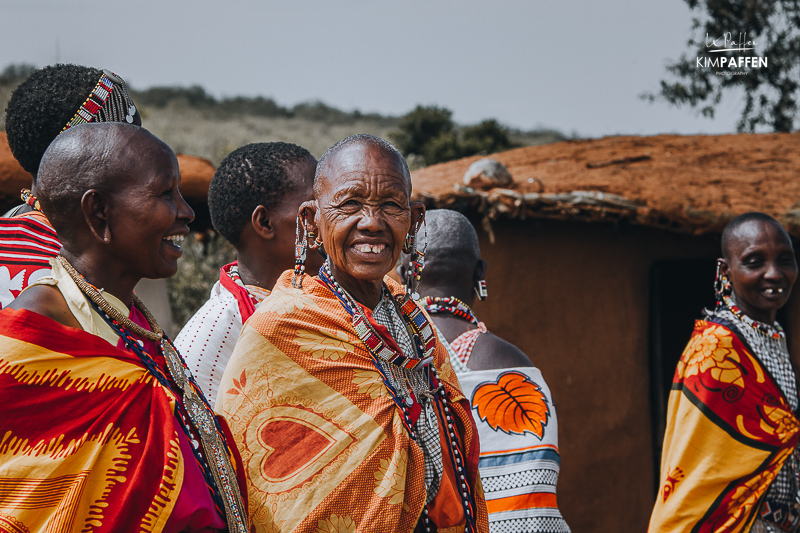
In Enonkishu Conservancy in the Maasai Mara, the Maasai co-exist with wildlife. You'll learn about human-wildlife conflicts and with the help of fundraisers, EcoTraining also sponsors ambitious and driven Maasai to become safari guides themselves. We had a local member of the Maasai community joining our course as well.
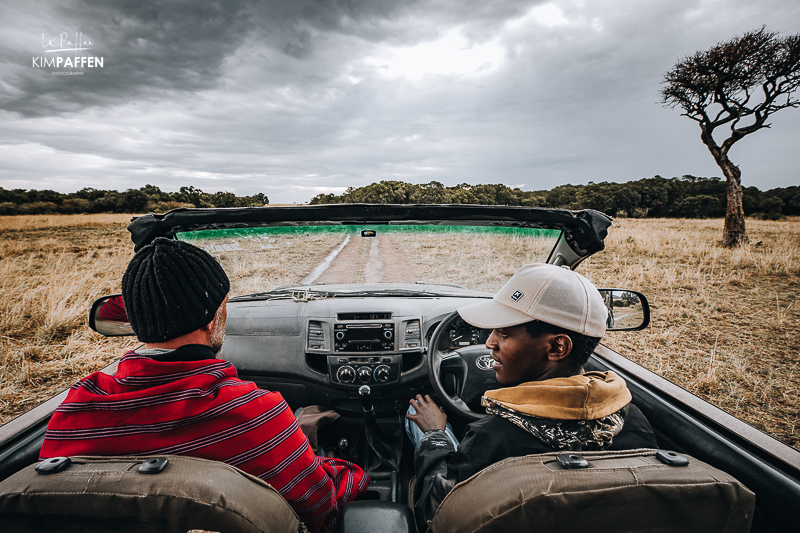
Minimize environmental impact
If you choose to do a safari guide course in Africa, you also choose to travel slow and staying at one place for a longer period. That's a greener option than driving to new lodges every other day.
Apart from that, the EcoTraining training (eco)camps are build to minimize environmental impact while promoting sustainable tourism practices, like engaging in activities that have a minimal impact on the surrounding environment, for example growing their own fruits and vegetables in the Wild Shamba, planting trees, using naturally made soaps, using wood to heat the water for showering, etc.
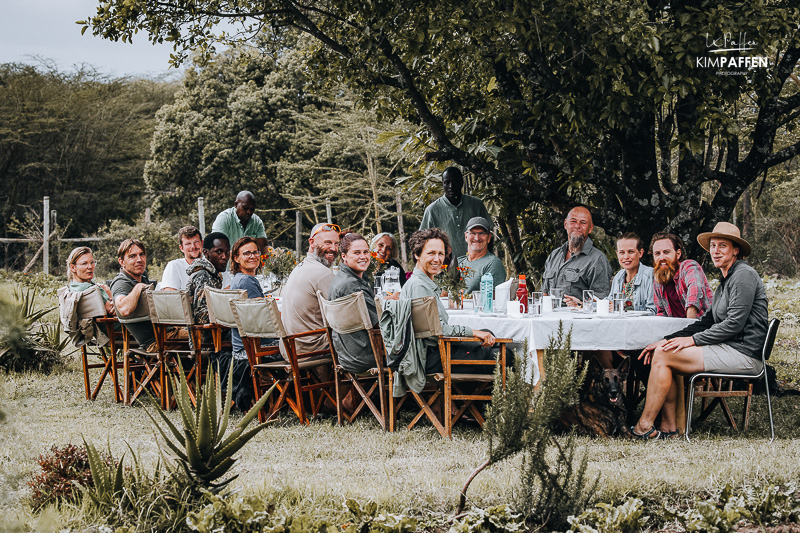
On the wildlife course, you'll also learn how to minimize your impact on the environment while maximizing the enjoyment of your guests . For example, turning off the vehicle at a safe distance from an animal sighting to not disturb the animals too much, not approaching a sighting when the maximum amount of cars is reached, or explaining guests the importance of not littering and collecting litter we find in nature. We take nothing but photos & litter, we leave nothing but footprints, and kill nothing but time!
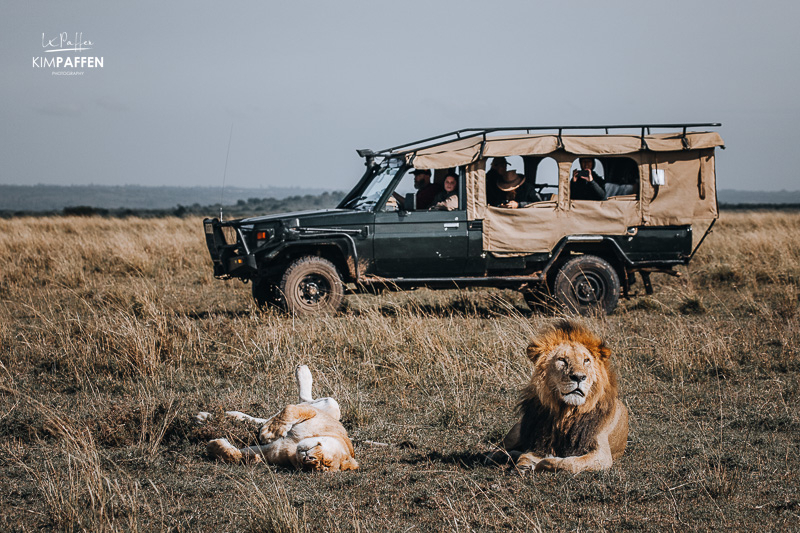
3. Prime location in the Maasai Mara
If you have the chance, opt for a 35-day or 55-day field guide training in the Maasai Mara in Kenya. The Mara Training Center is located on the banks of the Mara River in Enonkishu Conservancy , where wildlife and the Maasai tribe co-exist.
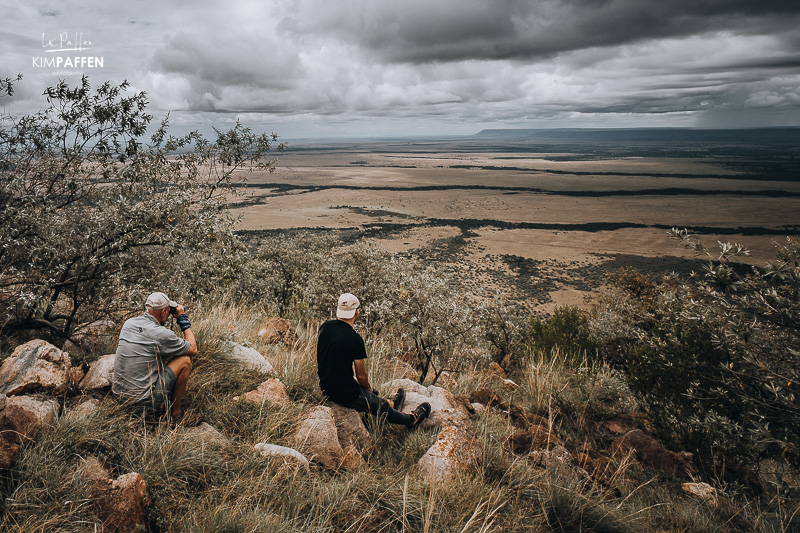
Chalets in the unfenced Mara Training Camp
This safari guide course in Kenya might be a bit more expensive than the courses EcoTraining offers in South Africa and Botswana , but therefore, you are staying in an unfenced camp on a prime location in the magical Maasai Mara in comfortable chalets with an outdoor terrace where the friendly staff makes sure your room is clean, beds are made, and laundry is done.
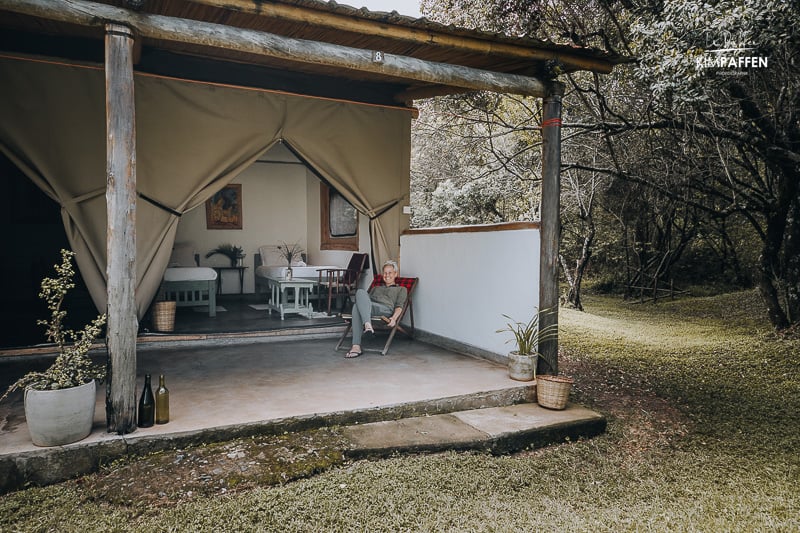
The chef cooks 3 fresh meals per day, including fruits and vegetables straight out of their own Shamba (vegetable garden). There's also no need to bring your own shampoo, conditioner or shower gel. All naturally made soap products are provided.
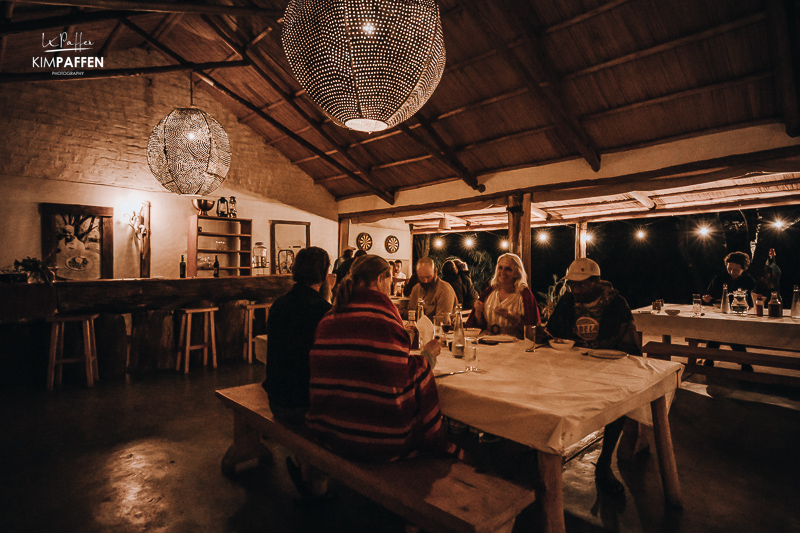
Animals in the Greater Mara Ecosystem
The Enonkishu Conservancy is part of the Greater Mara Ecosystem and covers an area of 5.928 acres where you can find amazing flora and fauna with over 50 species of mammals and 350+ bird species. The Enonkishu area is home to the Big Five game animals: lion, leopard, white rhino (at the Rhino Sanctuary), elephant , and buffalo.
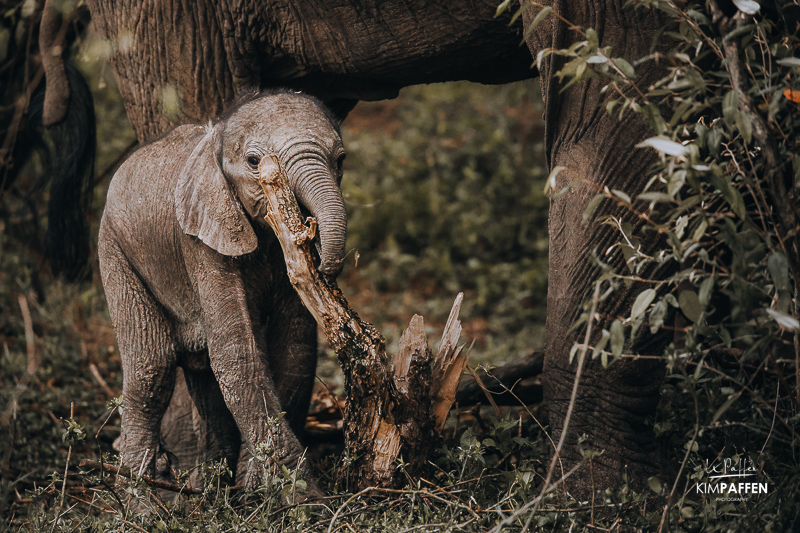
Luckily, the course is not just about the Big Five, which is a hunting term after all. Even the smallest creatures - like Dung Beetles - play an important role in the ecosystem and during the course you'll learn to appreciate every single organism and the interconnectedness of this all.
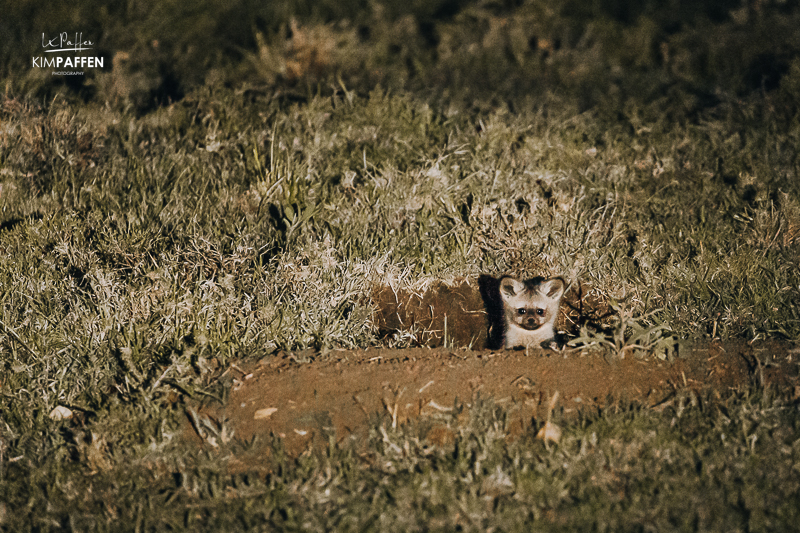
On the above image you see a little bat-eared fox spotted on a night drive in Enonkishu Conservancy.
In the Masai Mara , you will find many other interesting animals like topi, Thomson's and Grant’s gazelle, cheetah, eland, impala, hippo, hyena, giraffe, and zebra.
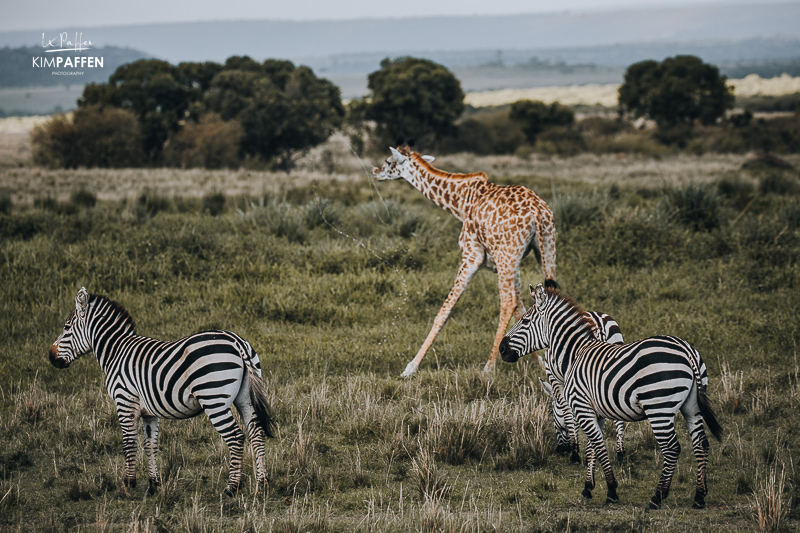
And not to forget about all the beautiful flowers, plants and trees!
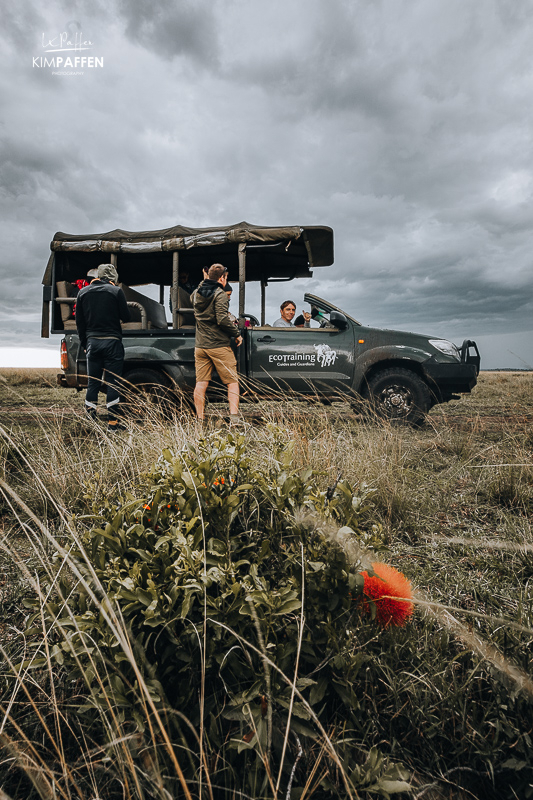
If you visit the Masai Mara National Reserve during the time of the Great Migration in East Africa, you might be lucky to see a Mara River crossing. The Maasai Mara is a world-class wildlife viewing area and never disappoints.
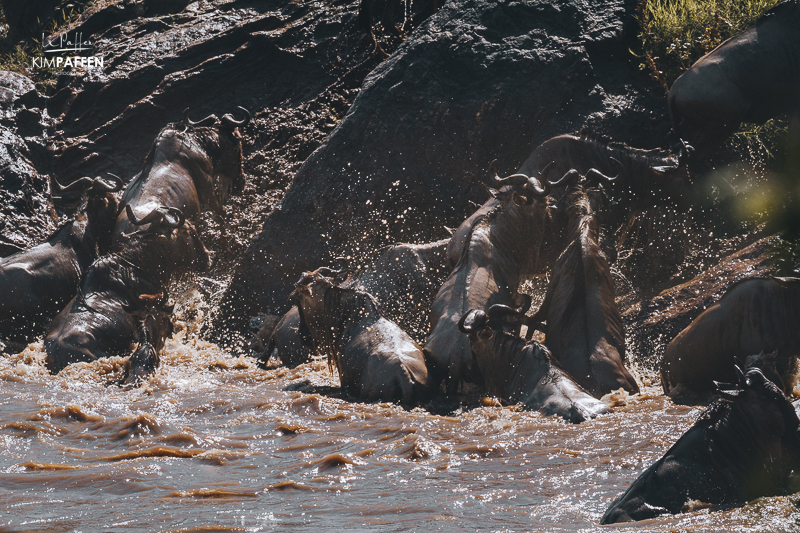
4. Enhance your knowledge and understanding of African wildlife
A safari guide course or wildlife training program will teach you about the various species that inhabit the African bush, their behavior and habits, and how to identify them. You will not only learn about mammals, but also fish, amphibians, arthropods, reptiles and birds.
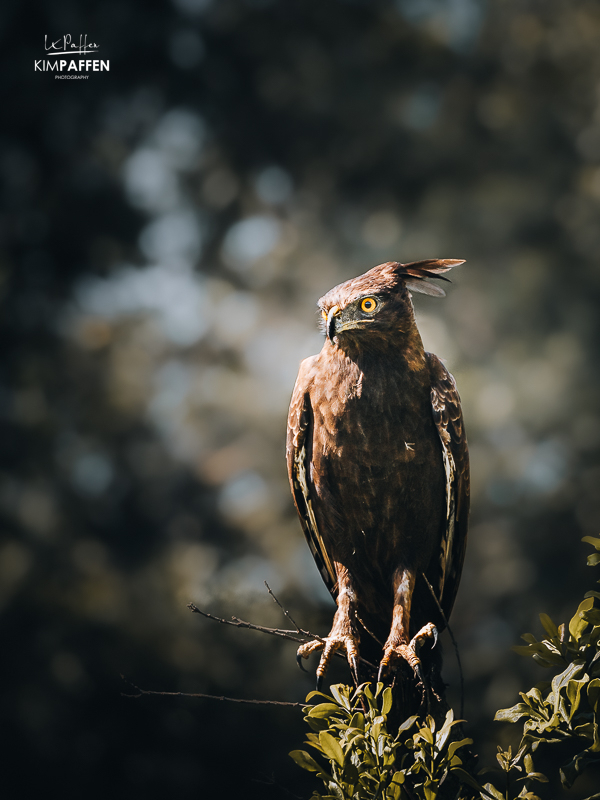
You'll also learn about the ecosystems and environments in which they live, and how to interpret animal tracks and signs - like spoor, dung, and territorial identification.
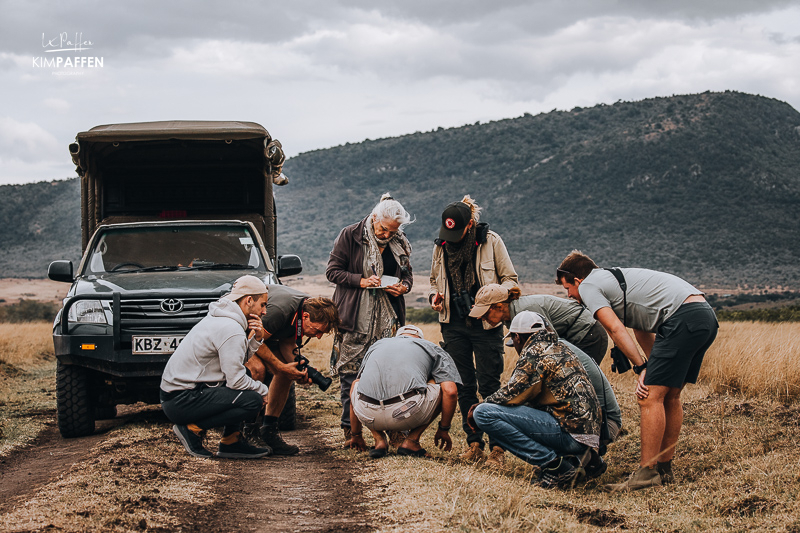
Other important subjects are the understanding of geology, ecology, weather and climate, biomes, botany and grasses, and historical human habituation.
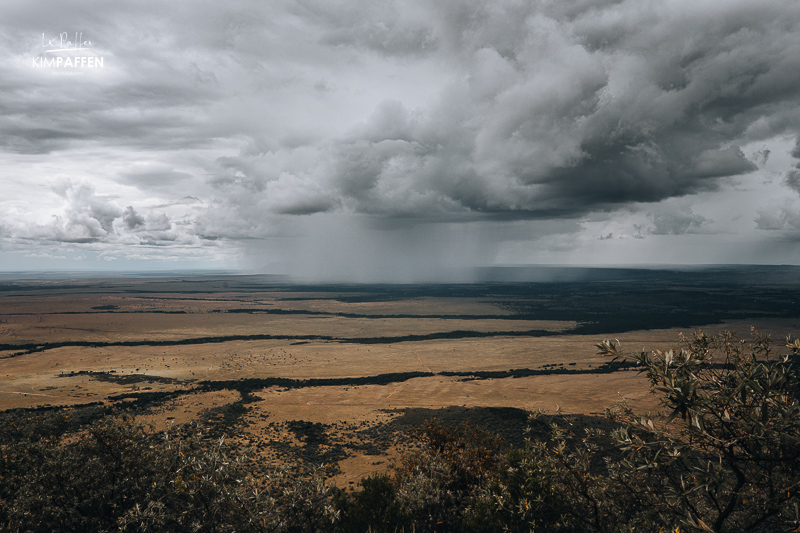
5. Develop valuable skills
In addition to gaining a deeper understanding of African wildlife, a wildlife course will teach you valuable skills such as how to plan and lead safaris in an ethical way , how to navigate and orient yourself in the bush, how to communicate with guests, and conservation management. You will also learn to identify star constellations and planets.
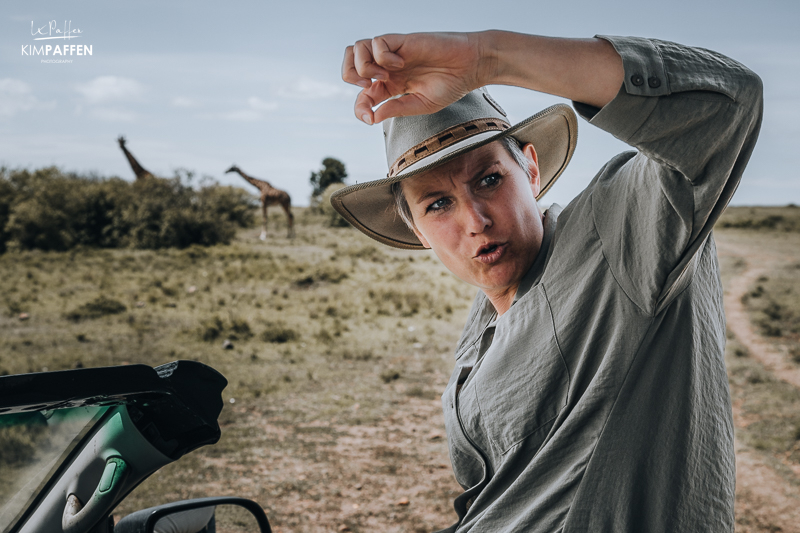
Dreamed of driving a game drive vehicle in the Maasai Mara yourself? Learning to drive a 4X4 is part of the course too, including using a High Lift Jack safely, radio-procedure on safari, and spotlighting techniques for night drives as well as vehicle positioning to give your guests the best possible view.
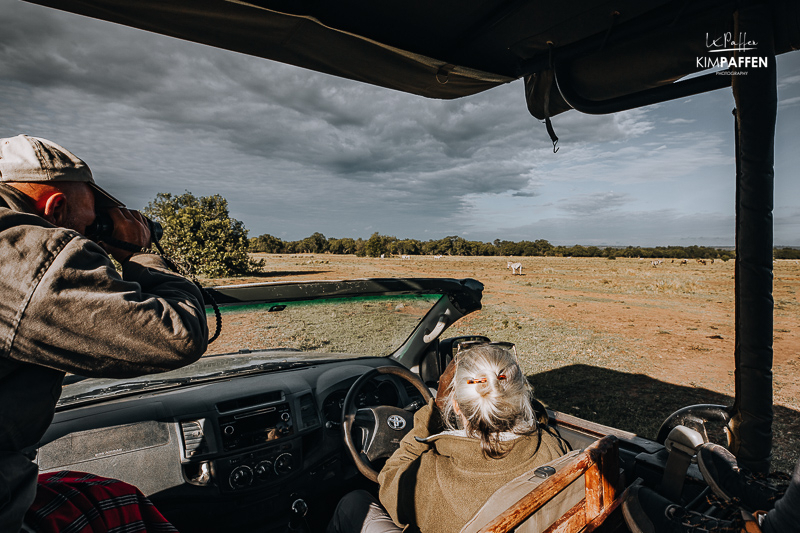
After extensive training and successful completion of the theoretical and practical exam, you are allowed to conduct guided game drives for guests in a limited geographical area (in dangerous and non-dangerous game areas).
6. Extraordinary wildlife sightings
Because you’re staying in the Maasai Mara for at least a month, you’re able to spend more time at sightings - observing and interpreting what you see. The charm of this kind of 'slow travel' is having the opportunity to follow individual stories of the animals living in the bush.
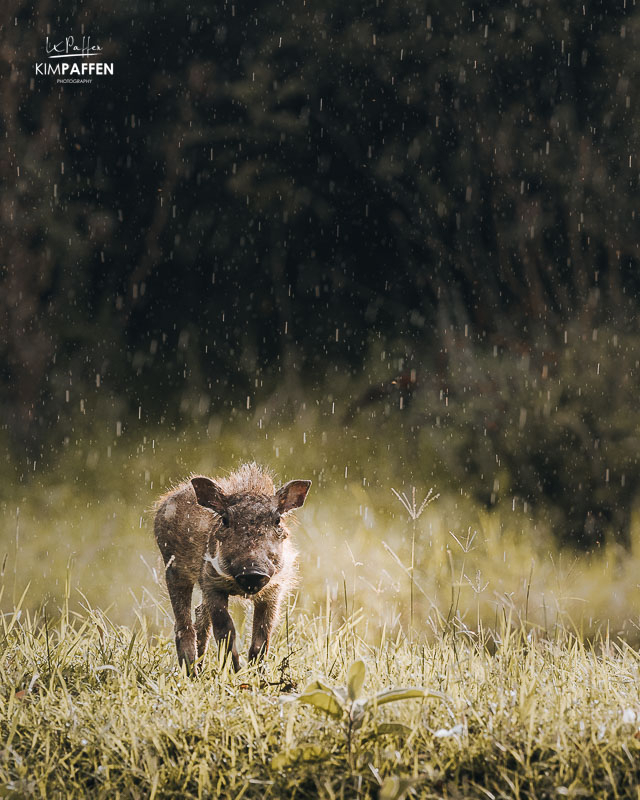
Kisaru, the famous cheetah mom
A few of the most special sightings we had were the ones of Kisaru, a famous cheetah mom that gave birth to 4 cubs on the grounds of Enonkishu Conservancy.
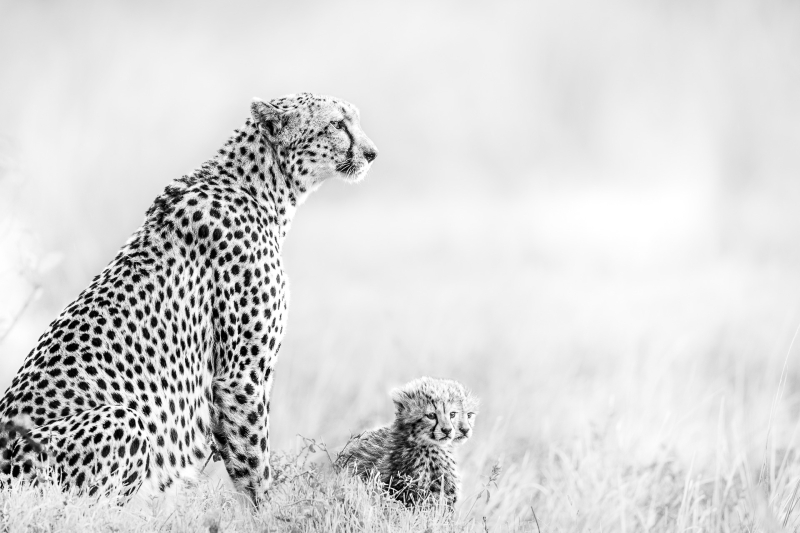
We saw her with 4 cubs when she first showed her newborns to the world. Sadly, we also saw her being chased by hyenas and eventually losing 2 out of 4 cubs. Nature can be brutal sometimes, but that is part of the bush.
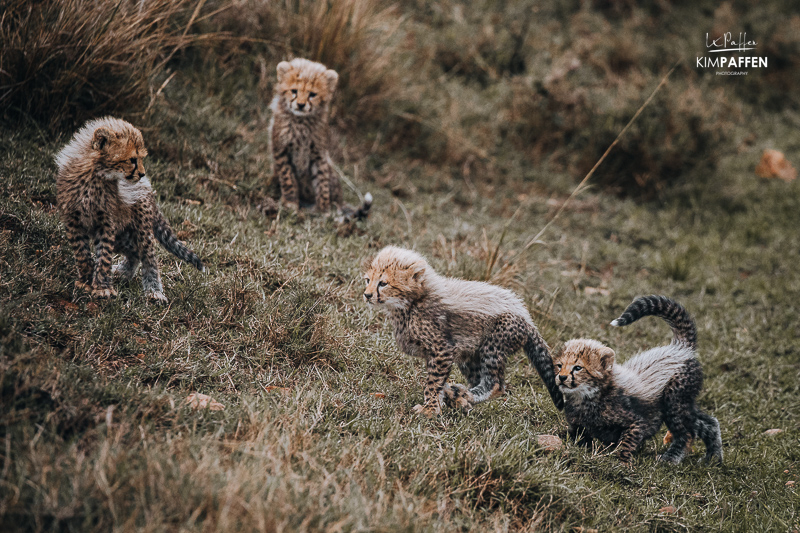
Sankai Lion Pride in Lemek
Another impressive sighting was seeing the 4 dominant male lions of the Sankai pride in Lemek Conservancy , which was absolutely fantastic as they decided to walk in the direction of our game drive vehicle and have a rest in front of the car.
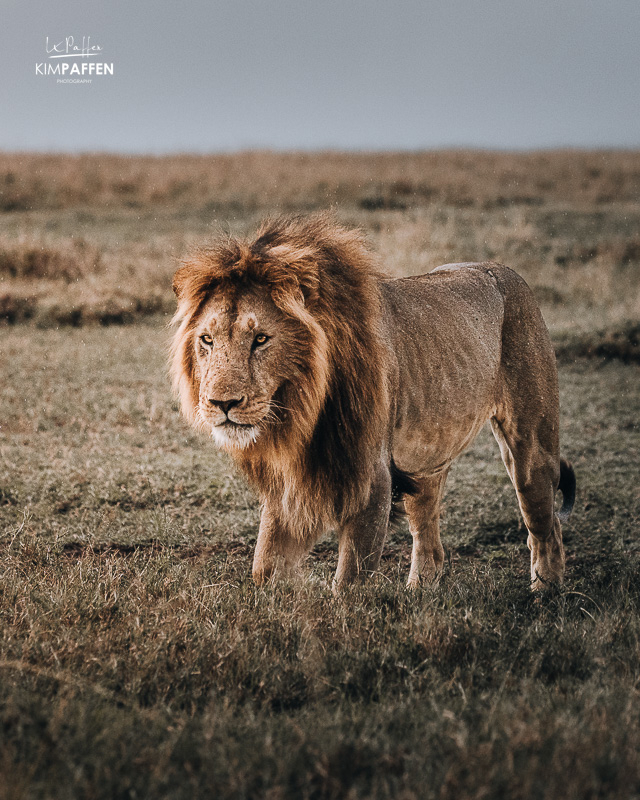
More special sightings in the Mara Conservancies
Other specials were seeing two jackals chasing a newborn warthog and ripping it apart, mating lions, a new born giraffe, playful lion cubs, a mara river crossing in the Masai Mara National Park, baboon spiders coming out of the hole, enjoying hippos at the hippo pool, a leopard in a tree while feeding on a Thomson gazelle, and much more. You just have to experience it for yourself! Every sighting is unique, whether it are big or small animals.
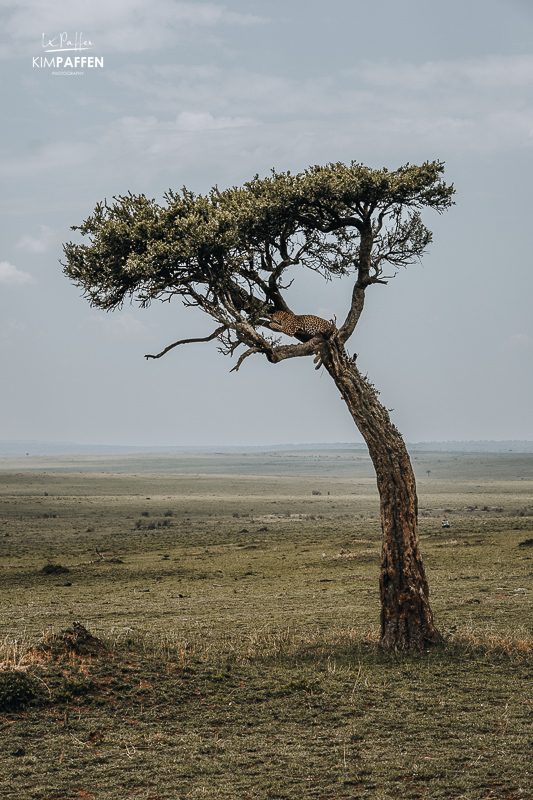
7. Wildlife photography in the heart of the bush
In this busy world, we live in, I use my photography as an anchor to slow down and mindfully connect to nature by observing and capturing our natural world from the heart. I often experience a moment even more deeply through my lens.
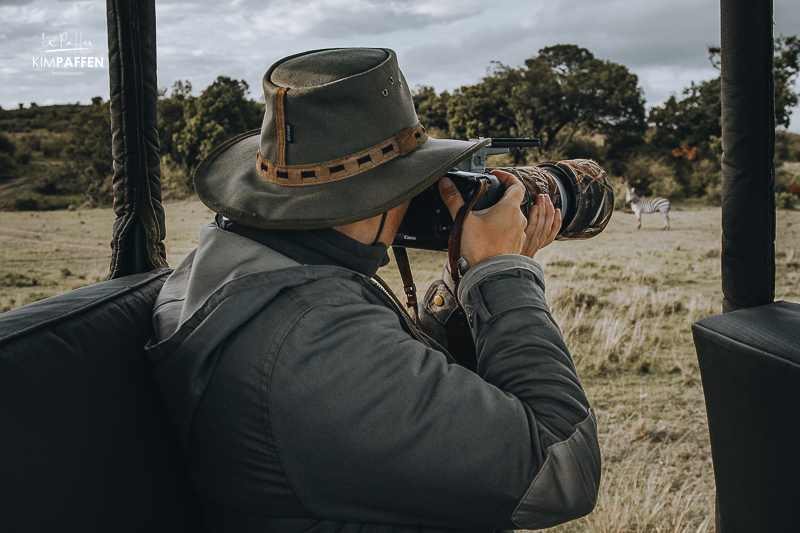
Do you love wildlife photography? On this wildlife course, there's enough time to photograph the flora and fauna around you and I highly recommend bringing your camera gear .
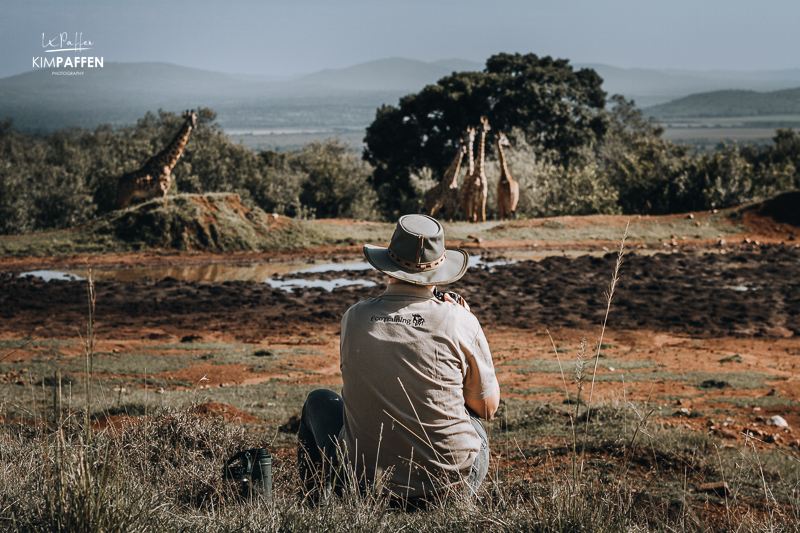
8. Endless savannah plains with iconic trees
The landscape is partly what makes the Maasai Mara so special! You got to love these endless savannah plains with herds of grazing zebra, wildebeest, and other ungulates, while these iconic desert date trees pop up on the horizon.
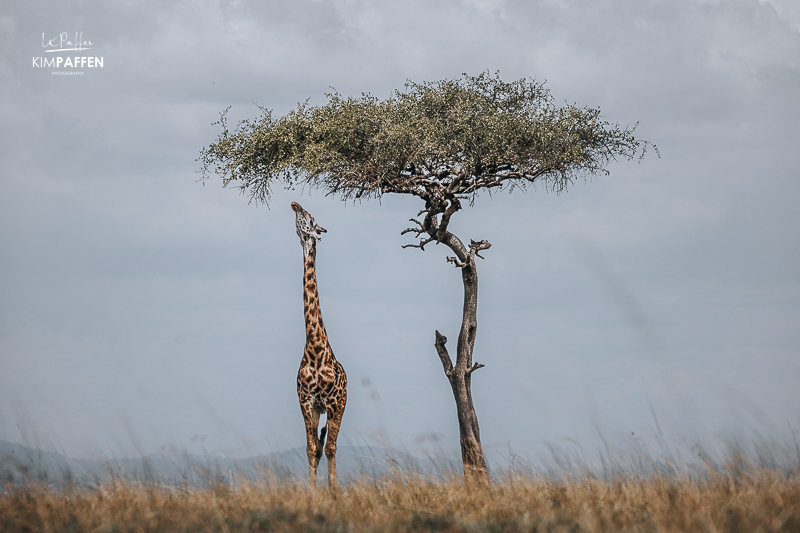
When the sun starts to set, the trees turn into beautiful silhouettes with dramatic clouds building up, while the sky changes in the purple-orange colors of the setting sun. If you're lucky you can even find a giraffe silhouette under the Balanites Aegyptiaca. This is Africa!
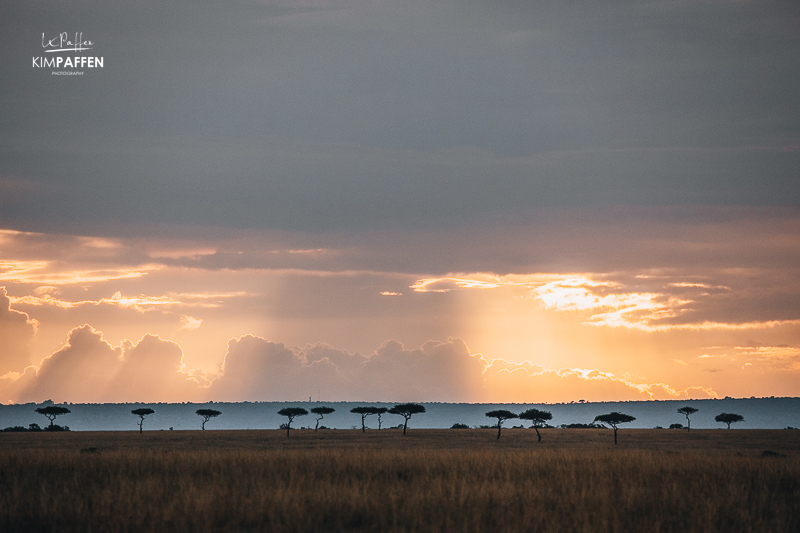
9. Walk with rhinos
On the grounds of the neighboring Ol Choro Oiroua Conservancy, you can find a Rhino Sanctuary . These white rhinos are heavily protected by rangers 24/7. During the course, you have the opportunity to spend time with these endangered animals and observe the rhinos on foot from up-close. Note that these rhinos roam freely and that there's NO padding or whatsoever allowed. It's called a rhino sanctuary because they simply need to be protected by rangers every minute of the day in order to survive. The sad truth!
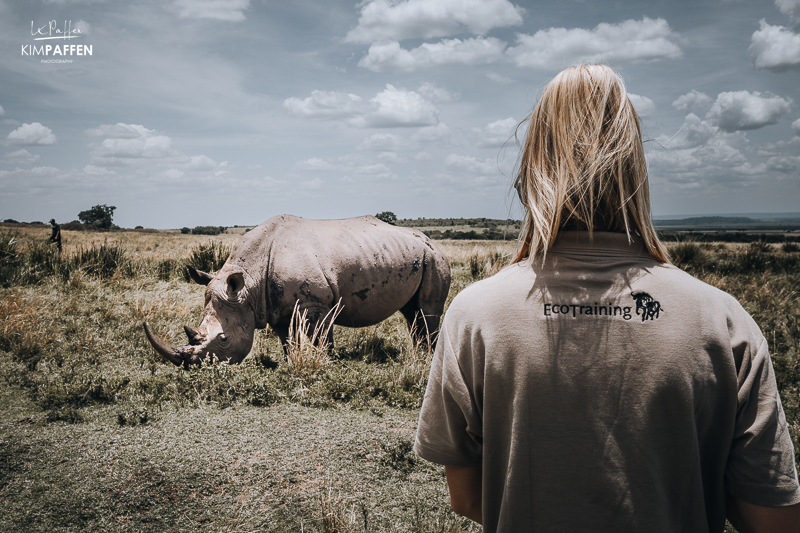
10. Cultural immersion: get to know the Maasai
A safari guide course in Kenya's Maasai Mara is not just about learning about the flora and fauna of the region - it's also an opportunity to learn about the culture and history of the people who call Africa home. You'll have the chance to interact with local Maasai communities and learn about their traditions, customs, and way of life.
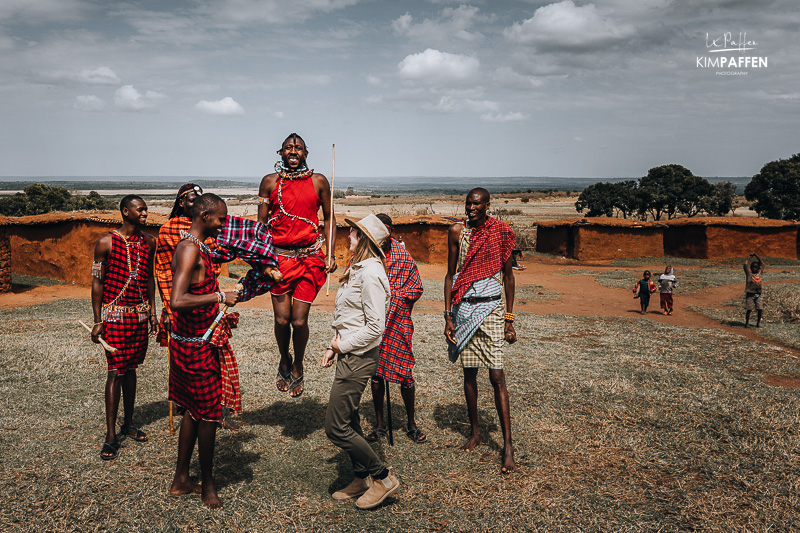
In Enonkishu Conservancy, the Maasai co-exist with the wilderness. On game drives, you often see them with their cattle while other members of the Maasai community are employed in the Mara Training Center or in the neighboring lodges, like House in the Wild. It's a nice chance to get to know them.
You can also visit a maasai village where you can experience how the Maasai tribe lives, how they dance, and make fire! On Sunday, you have the opportunity to visit a local Maasai market in Aitong.
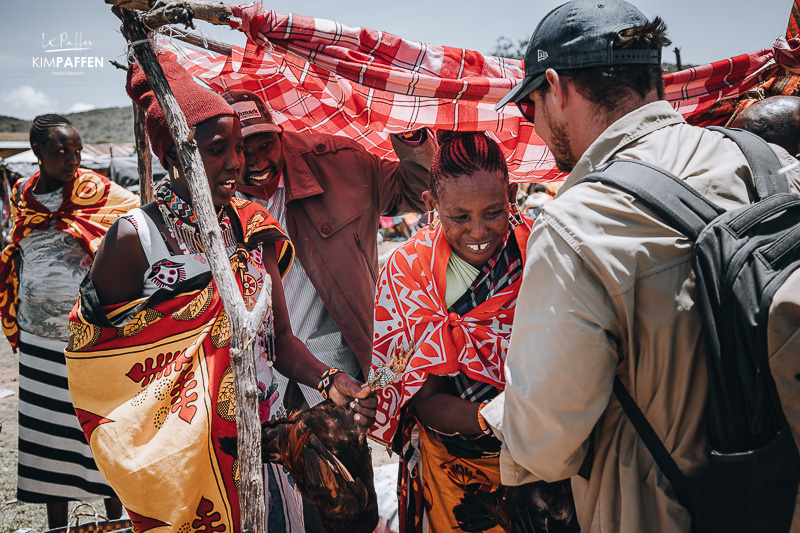
11. Spend free time at the swimming pool
The Mara Training Center is part of the Wild Hub . Apart from the EcoCamp where you will be staying, there's a place near the river where you can find a swimming pool with sun loungers . It's a nice place to relax or to learn for your upcoming tests. It's also a place where you can watch many birds in the surrounding garden or in the trees near the banks of the river.
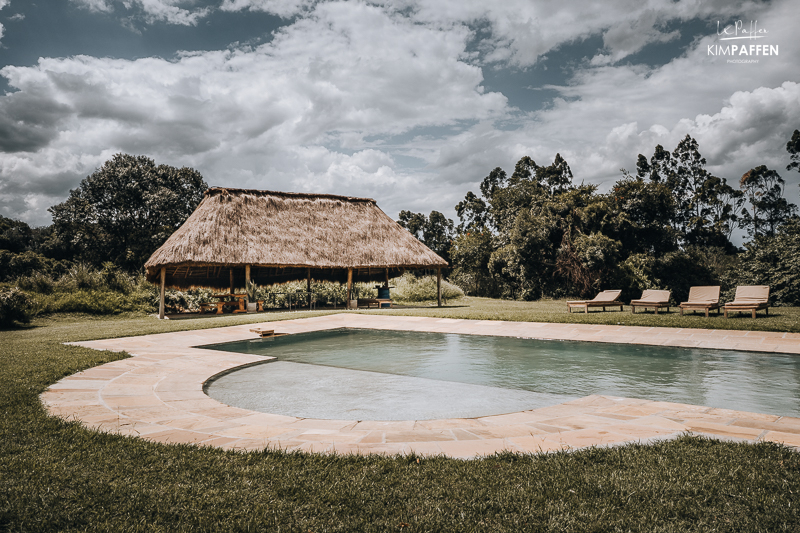
12. Career opportunities in the African tourism industry
Completing a (professional) field guide training or wildlife course can open up a wide range of career opportunities in the tourism industry , both in Africa and beyond. You could work as a safari guide, leading tours and helping guests spot and identify wildlife, or you could work as a conservationist, helping to protect and preserve African wildlife and their habitats.
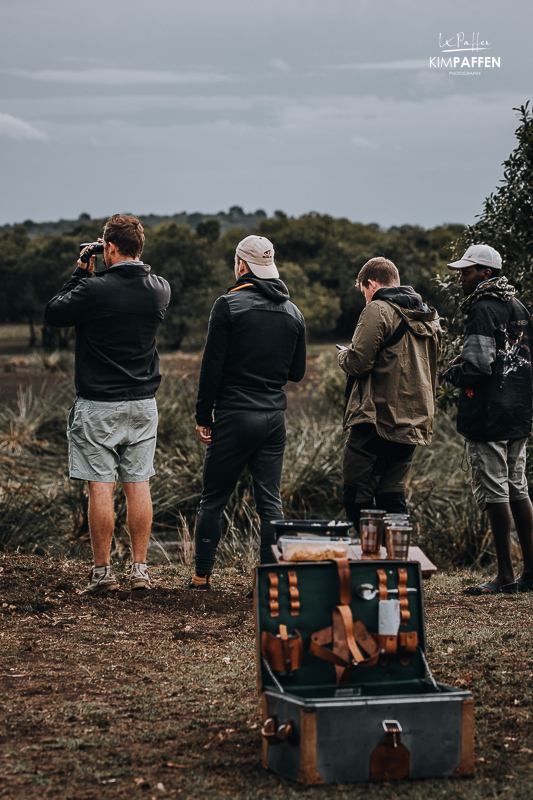
However, safari guide training courses are not only available for people wishing to enter the safari industry, but for anyone who wants to learn more about guiding or increase their knowledge of the African wilderness. For those who do wish to pursue a career as a safari guide, you have the chance of obtaining an official FGASA qualification from the Field Guide Association of Southern Africa. After doing an online exam, and the practical assessments in the bush, I qualified as a so called 'Apprentice Field Guide - NQF2' and received my official FGASA certificate with a pass mark of 97%
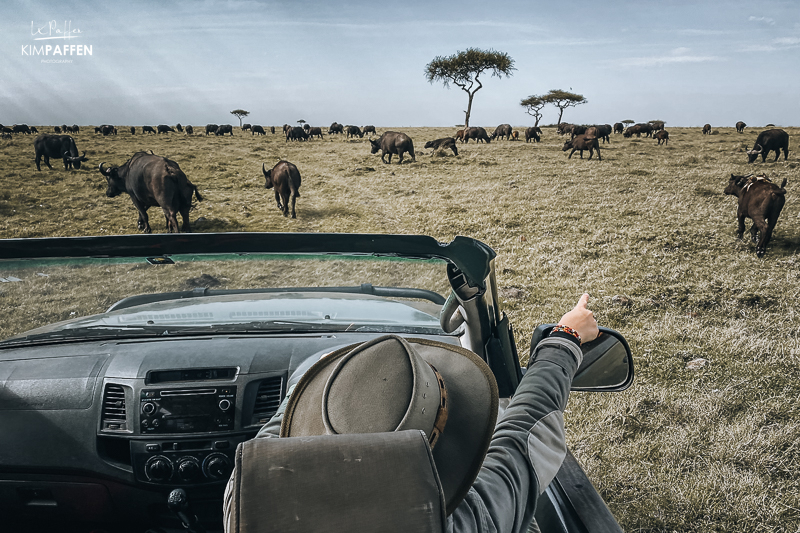
13. EcoTraining is the pioneer and leader in safari guide training
EcoTraining is the only training company that offers a wildlife course in the Maasai Mara . You can't go wrong booking a wildlife training with this training provider as all of their english speaking trainers are highly qualified experts sharing the same strong love for everything nature.
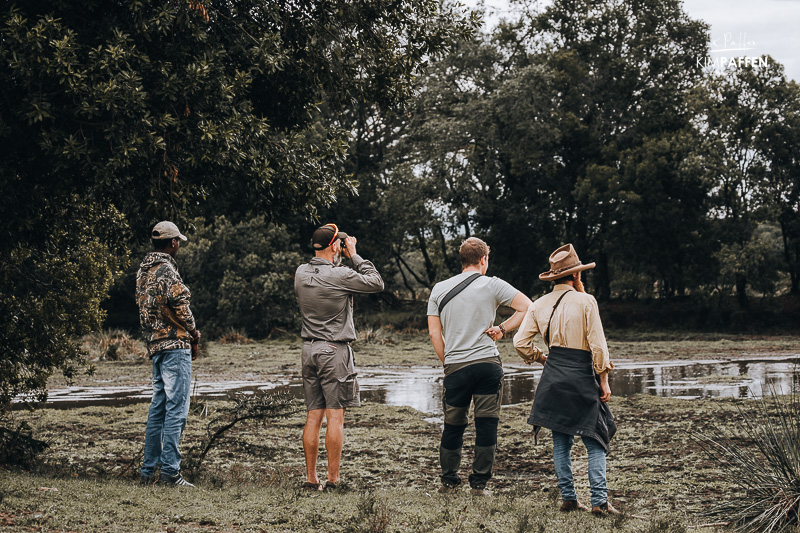
EcoTraining works together with Africa’s top game reserves and has trained over 15.000 participants from various countries around the world. Apart from Kenya, they also offer courses in South Africa, Botswana and Zimbabwe .
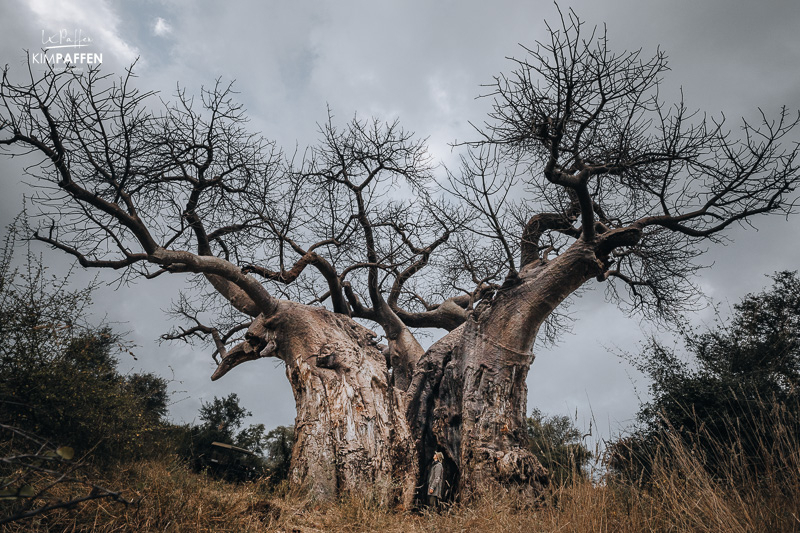
14. Adventure of a life-time
Getting trained in the African bush offers a sense of adventure and excitement that you simply can't find anywhere else. From tracking big game on foot to spending the night in sleeping bags under the stars, you'll experience the thrill of being in the wilderness and exploring the unknown with like-minded people that share the same love for the African bush. This can be an incredibly rewarding and enriching experience that you'll never forget.
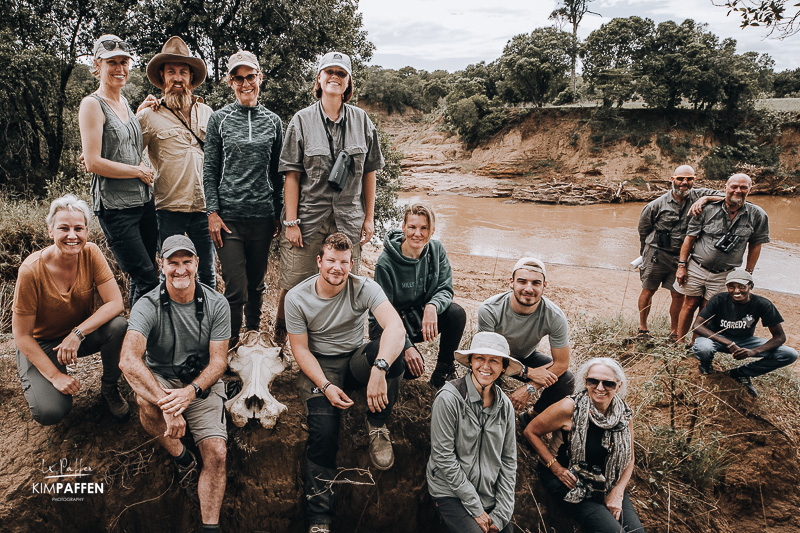
14 reasons to join a safari guide training in Kenya
A wildlife training program in the African bush offers a wealth of opportunities for personal and professional growth, as well as the chance to contribute to conservation efforts in one of the most beautiful and biodiverse regions on the planet - the Maasai Mara in Kenya.
To me, the Field Guide course was a soul-enriching experience that I highly recommend taking. Learn new skills, gain a deeper understanding of the natural world, and contribute and connect to nature in a meaningful way while developing connections with like-minded souls. Soon, I will publish an article on how a day on a field guide course with EcoTraining looks like. Stay tuned!
Enquire for a safari guide course with EcoTraining through me
As an official a mbassador and partner of EcoTraining , you can book a course through me. Advantages are that I can help you with all related course questions to be well prepared for the course and I'm able to share my personal experiences with you as I did the 35-day Practical Safari Guide Course in Kenya and the 7-week online Field Guide course.
If you book through me, I can offer you interesting extras - including a zoom meeting - to make studying for your exam much easier.
Instagram story highlights of @ouplanetinmylens
Click on the image below to watch a few story highlights of my Field Guide course with EcoTraining in Kenya. I will add more images and videos in the near future, so make sure to follow me on Instagram @ourplanetinmylens .
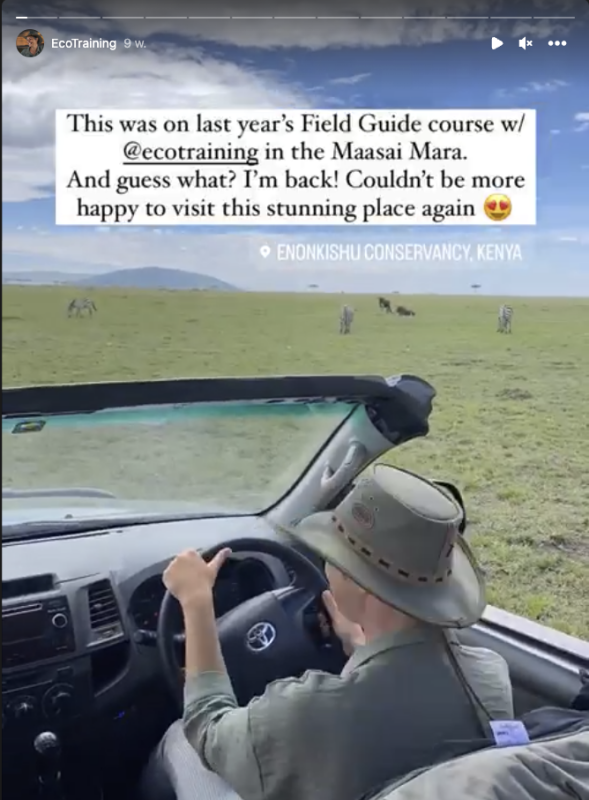
Video safari guide course in Kenya
Watch a short video of becoming a field guide course in Kenya here:
Summary of 14 reasons to join a field guide course
- Reconnect to nature
- Conscious alternative to a safari trip
- Prime location in Maasai Mara
- Enhance knowledge of African wildlife
- Develop valuable skills
- Extraordinary wildlife sightings
- Wildlife photography in the heart of the bush
- Endless plains with iconic trees
- Walk with rhinos
- Get to know the Maasai tribe
- Spend free time at the swimming pool
- Career opportunities in the Safari industry
- EcoTraining is leader in Safari Guide Training
- Adventure of a life-time
Do you have additional questions about these 14 reasons to join a safari guide training in Kenya or do you want me to assist you with booking a course? Fill in the form below or visit my page with all guide training and wildlife courses . I'm also available for a zoom call to answer all your questions.
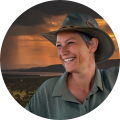

ANDREAS FOX SAFARIS
- Private Safaris
- Wilderness Trails
Guide Training
- Latest News
- Published Articles
In 2014, Andreas founded Mbweha Training and Trails, a specialist Kenyan-based consultancy and training organization that creates and runs bespoke courses for anyone interested in conservation, ecology and wildlife.
With the intention of providing the best courses possible, Mbweha has partnered with the pioneering nature guide training organization, Ecotraining. Founded in 1993, Ecotraining has become the leading guide training school in Southern Africa. With Ecotraining, Andreas instructs on a variety of courses in Southern Africa, from one-week ‘EcoQuests’ to 55-day FGASA Level 1 and 28-day FGASA Trails Guide courses. As Mbweha’s Managing Director, Andreas now intends to grow the Ecotraining and Mbweha products in East Africa. Courses can be catered to guiding professionals, tourists, school and university groups, corporates or anyone interested in African conservation, flora and fauna.
Ecotraining has already had a limited presence in East Africa and Andreas has instructed with them across Kenya in various capacities. This experience includes running specialist 28-day Safari Guide Courses in World-renowned reserves such as the Lewa Wildlife Conservancy and Borana Conservancy. These courses are custom-made to fit the requirements of the students, be they prospective professional guides or tourists seeking an intense, immersive and educational safari.
Kenya’s top lodges understand the importance of exceptional guides to the guest experience and regularly seek Ecotraining’s expertise. As an instructor and consultant, Andreas has worked with guiding teams in across the region for prestigious companies such as Great Plains Conservation. As a qualified member of the Kenya Professional Safari Guide Association (KPSGA), Andreas tailors these courses to each team’s requirements, bringing out the best combination of his own experience with the South African and Kenyan guiding curriculums. Andreas is also a qualified member of specialist tracking schools The Tracker Academy and Cybertracker and always incorporates his passion for tracks and signs into his work.
For more information on custom courses and educational safaris, be it private, corporates, NGO or NPO's, feel free to discuss ideas with Andreas who can help design a great value experience.
Nature Travel Kenya: Masai Mara EcoQuest
So far you have had little to do with nature, but would now like to embark on that journey? Then our introductory EcoQuest course in awe-inspiring Kenya is just right for you. This course is especially designed for newcomers, who can gather valuable insights which they will never forget, during a 7 or 14-day stay in awesome surroundings. Kenya's spectacular Masai Mara is the perfect region for an adventure which will make your daily routine fade into the background. Discover the exciting world of animals and plants and embark on your first steps in the wild with the EcoQuest course.
Your EcoTraining Adventure – Why book with Natucate
As long-term partners of EcoTraining, we have a trusting relationship with the team on site and visit the camps ourselves each year. When booking your EcoTraining adventure with Natucate, you will benefit from expert advice , comprehensive travel preparation , 24/7 support and German travel law advantages. When booking with Natucate, you won’t have any extra costs .
On our EcoTraining info page you can learn more about why to book your nature travel programme with Natucate .
Your trip at a glance
- Enjoy an ideal nature course in Kenya
- Acquire knowledge about the local nature and current conservation topics
- Enjoy a fascinating combination if game walks, game drives and theory units
- Discover the Masai Mara wildlife from up close
- Gain an insight into the Masai culture
- Be part of an international team
Plan your trip
- Placement in the programme
- Assistance with travel arrangements
- Assistance with selecting travel insurance
- Assistance with booking flights
- Risk coverage certificate
- Pre-departure information pack
- Accommodation during the programme
- Full board during the programme
- Drinking water
- Training manual
- Game drives
- Certificate
- English-speaking support by long-term experienced staff
- 24/7 support throughout the programme
- Travel insurance
- Airport pick up and drop off
- Accommodation outside programme hours
- Transport outside programme hours
- Further beverages (e.g. liquors, soft drinks, bottled water)
- Personal expenses and optional excursions
Write An Email
Terry, your travel agent for Kenya
You would like to learn more about this trip? Don't hesitate to contact me! Our service doesn't end with your departure: I answer all of your questions and support you before, during and after your stay abroad. Note: The price stated above is an approximate value. Due to sharp fluctuations in the exchange rate of the South African Rand, the final price for this trip will be calculated at the time of enquiry based on the latest exchange rate.
EcoQuest adventure in Kenya
As a participant in our EcoQuest course you can discover Kenya’s breathtaking Masai Mara within a short amount of time and acquire new knowledge about the local animal and plant life as well as current conservation issues.
Arrival and orientation in East Africa
One day before the course starts you will arrive in Nairobi. You will spend the first night in a hostel in the city. The following day you will be picked up from the hostel and taken to the camp, where you will get to know the other course members. You will be brought back to Nairobi at the end of the course. After that, you are free to continue travels or return home.
Activities during your educational safari experience
Naturally, the focus of the Kenya EcoQuest course is on practical matters, but theoretical aspects are not neglected. Long-term experienced instructors will teach you about ecology, birding, plant identification as well as astronomy and share their expert knowledge about animal behavior, their tracks and tracking skills. Life in the Mara is another important aspect covered in the course: the students learn about the fascinating cohabitation of wildlife with communities, their cattle and crops, but also deal with the human-wildlife-conflict between pastoralists and the wildlife competing for space and food.
How to plan a safari is an integral part of the course. Moreover, different conservation models involving cattle in wildlife areas are addressed. You and your team also visit community schools and sports amidst the Mara conservancies to get in touch with the local Maasai. The combination between theoretical learning units and excursions in the African bush enables you to experience a unique educational trip and to witness East Africa’s unique beauty at close quarters.
At the end of the course all students receive a certificate of participation.
Accommodation in Kenya's Masai Mara
Together with other students of the course you will live in a Kenyan training centre overlooking the Mara River. Three twin bandas and three bunk bed bandas offer room for 18 people. Each banda has its own shared bathroom. You will be offered three to four meals per day. Power is provided by solar installations; there are plugs in the room as well. At the camp there is also mobile reception, but no wifi.
Leisure time as an EcoQuest participant in Kenya
After you got back to the training centre and had dinner together with your team, the night is your own: You can sit around the camp fire and reflect on the day together with the other participants or you can simply enjoy your accommodation, sleep and relax – and sure enough your instructor will arrange sometimes star evenings.
Arriving in Kenya
You should arrive one day prior to the official start day of the course in Nairobi. Afterwards, you spend one night in a guest accommodation in town before meeting the other course participants at a specific meeting location in Nairobi. You get picked up and taken to the gate of the reserve where your course will take place. Your course leader will welcome you and drive you to the camp. Here, you can get accommodated, get to know the camp and receive an overview of your EcoQuest adventure. In case there’s enough time left, you and your team will head out into Kenya’s wilderness – your first game drive in the Masai Mara. In the evening you can enjoy your first communal bush dinner surrounded by Africa’s wild nature.
EcoQuest course in the Masai Mara: A typical day
A typical EcoQuest day begins before sunrise. After a light breakfast including coffee and tea you and your team are taken into Kenya’s wilderness by your experienced guide. You will explore the unique flora and fauna via game drive or game walk and return to camp around noon. Here you can enjoy a hearty brunch and a short siesta. In the early afternoon you will join theoretical units to learn more about the Kenyan animal and plant life. After a snack and some coffee or tea you go on your second bush activity of the day. You return to camp around sunset to have dinner together. Afterwards, you can gather around the campfire to discuss the events of the day before going to bed – remember: the following day will start early as well!
Last day in Kenya’s Masai Mara and departure
The day of your departure will start in the early morning hours as well. After breakfast you will store your luggage in one of the vehicles before being driven to the gate and further to Nairobi. In Nairobi you can continue your journey back home or to another travel destination.
FAQ – Learn more about this trip
Prior to departure to kenya.
To take part in this course you need to be at least 18 years old and have profound English skills, so you can communicate with your team. It is also important to be physically fit, as there will be game walks on a regular basis. Besides that you do not need any previous experience to participate; only your motivation, curiosity as well as an excitement for nature. Depending on the duration of your stay and your destination a tourist visa is not sufficient. You might check out the foreign department’s website for the visa standards or ask the Natucate team directly.
Before you head off to your outdoor adventure, we discuss your journey in detail and give you advice concerning the planning of your trip. Furthermore, we will secure a spot in the project for you, help you choose appropriate travel insurance and assist you with booking your flight – if requested. Your accommodation, food and drinking water will be provided. During the project you will take part in daily excursions to the bush and training sessions in different fields which all are included in the price. Flights, travel insurance and visa (if needed) are not included. The team in Kenya and Natucate in Germany will support you during the whole project.
In general, you do not need special vaccination if you depart from Germany but we would recommend tetanus, diphtheria, pertussis, measles, mumps and rubella before every journey. Moreover, you should pack special medication you need as the health care may not be sufficient. You should also consider vaccination for hepatitis A and if you want to stay longer even hepatitis B, typhus and rabies. Note: In Kenya infectious diseases like malaria are common and you can consider taking medication as a prophylactic measure. Before your departure you should consult your doctor about possible dangers, vaccinations and protection measures. Moreover, you should check out the website of the Federal Foreign Office (Auswärtiges Amt) to get information about possible travel and safety advice. Travel insurance is compulsory when participating in any of our courses.
You should bring waterproof clothes, sturdy boots, long and light trousers as well as a hat and enough sunscreen for daily excursions. Moreover, you should take longer clothes with you as it can get cold at night and in the morning. In general, you should also mind the colours of your clothes. To blend in the landscape colours like beige, khaki and ochre are perfect. A refillable bottle, insect repellant and a head lamp are also advisable. You will receive a detailed packing list after booking.
Arrival in Kenya
We will support you during your organization and planning process, but you need to book your flight on your own. It is advisable to arrive in Nairobi the day before your project starts. That should help you to relax and to recover after your flight before starting your EcoQuest the next day. Your accommodation is going to be a guesthouse were you most likely meet the other participants. An employee of the project will pick you up in the morning and take you to the camp. On the way back after the course you will either be brought to the airport or to the guesthouse depending on your further plans. We help you organize your arrival at the airport; although you need to take care of the final booking.
During the course in Kenya
After a small breakfast with the team you will head off early in the morning for a game drive or a bush walk, before you will return to the camp to avoid the midday heat and have a warm breakfast and fruits. During the early afternoon you will have time to relax, read a book or discover the beautiful nature in and around camp. In the late afternoon, when the midday heat is gone, the second activity takes place. Just after sundown you will retreat back to camp to have dinner. After dinner you can either gather around the campfire or go to bed early, to be ready for the next day.
The camp is capable of holding a maximum of 18 people, in two double bed rooms and three dormitories. The number of participants is limited to 15 persons.
Life on site in Kenya
Together with the other course participants you will stay in a Kenyan training camp close to the Mara River. It is surrounded by small villages of the Massai people and fascinating wildlife areas. The camp has three comfortable double bedrooms and three cozy dormitories with double bunk beds inside. In every room there is a bathroom to share. There is a community area in camp where the meals take place and you are able to get to know the other participants. Electricity will be provided by solar panels; plug sockets are in every room. There is phone signal in camp, but WiFi will not be provided.
In general, it is possible to share rooms with a travel partner, but it depends on the size and structure of the group. We ask you to let us know if you would like to get accommodated with a partner as soon as possible so that we and our partner have enough time to arrange everything accordingly. It cannot be guaranteed that you can share rooms with a partner, though.
During your time in camp you will be provided with four meals a day. A chef will cook them with typical local ingredients for your special African experience.
With a notice ahead it is possible to eat vegetarian during the time of your course.
You will always find someone on site who will help you with questions and problems. You can also contact the Natucate team whenever needed.
There is phone signal in camp, but no internet connection. For more information ask your Natucate team.
Generally, the climate of the Masai Mara is all year-round hot without reaching extreme heats. It could get a bit chilly during the nights though. The area where the project takes place is between 1500 to 1900 meters above sea level. African summer is between October and March, that’s when temperatures are on average a bit higher, compared to the time between June and August. In that time of the year the temperatures can drop even below 10 degrees at night time.
Learn what others say about their Natucate adventure.
“The two weeks flew by and the day of our departure is approaching way too fast.”
Mario took part in our EcoQuest course in South Africa where he took lots of wonderful wildlife pictures. Take a look at some of his fantastic impressions:
As a participant in our EcoQuest course, Katharina has experienced Africa's nature and wildlife from up close – and was able to take some wonderful wilderness pictures. Here you can find a selection:
“To hide out in the bushes while a dozen curious elephants walked past us was a really special experience.”
Camp Mara is located on the edge of the Mara River in western Kenya. It evolved from informal community meetings held under an acacia tree in the Enonkishu Sanctuary in the Masai Mara. Surrounded by small Masai communities and excellent wildlife areas, it offers students an ideal base from which to get to know both the impressive nature and the inhabitants of the Masai Mara. Here, in the east of the African continent, you will spend an educational time in harmony with nature and gain an insight into the coexistence as well as into the human-wildlife conflict between pastoralists and farmers and the native wild animals.
Background of the EcoQuest course in Kenya
Thanks to its natural environment, Kenya provides the perfect habitat for a multitude of animal species. The Masai Mara in the south of Kenya as part of the Serengeti is famous for its astounding numbers of wildlife. That’s why you will have good chances of spotting the Big Five as well as zebras, giraffes, wildebeests, gazelles, hippos, hyenas, crocodiles and many other animal species.
The varied scenery with its “golden” grassy plains and hills, rock formations and gallery forests at the Mara River surely leaves each adventurer in awe. As a participant in this safari course you plunge into the breathtaking nature of Kenya and experience a unique educational trip to East Africa.
Conscious Travel with Natucate
Supporting real conservation projects worldwide through individual wilderness adventures – our ambitions, our values, our service.
Adventures to get you dreaming
Live and learn amidst Southern Africa's wild nature for 55 days – and become a Field Guide Level 1
Spend an unparalleled year amidst Africa's wild nature and get trained as a Professional Field Guide
Become a Safari Guide in Kenya's wilderness and gain a deeper knowledge of your natural environment
Acquire the basics of Southern Africa's nature, in theory and in practice, and become a Safari Guide
You are a "safari newcomer"? Then gather unique insights into Southern Africa's nature and wildlife
Get to know Africa's nature from up close and acquire valuable skills for living in the wilderness
Subscribe to our newsletter
By confirming the "Subscribe now" button, I hereby bindingly subscribe to the Natucate newsletter, which contains comprehensive information in the field of sustainable travel. For information: Detailed information regarding the performance measurement included in this consent, the use of the dispatch service provider Mailchimp, the logging of the registration process and your revocation rights can be found in the privacy policy.
Safari Guide Training Courses

Ever dreamt of cruising African savannas , spotting lions in the golden sunlight , or witnessing a herd of elephants gracefully moving through the wilderness?
If so, becoming a safari guide might just be your calling.
Sure, experiencing Africa’s wild beauty on vacation is unforgettable, but what if you could make it your everyday adventure ?
That’s where a safari guide training course comes in — it’s your ticket to transforming those dreams into reality.
Envision yourself under the vast African sky , armed with a deep understanding of the wild , deciphering animal tracks like a pro, and guiding enthusiastic explorers to the heart of untamed nature.
Sounds like your dream job? Then, carry on reading to see how you can take the first step towards turning a passion into a fulfilling career, all while enjoying a normal bush holiday.
Tip : Check out these safari quotes to inspire you on your journey.
What to Expect on Safari Guide Courses

The good thing about a safari ranger course is that the choices you have are as diverse as the African savannas you dream of exploring.
There are career courses made for enthusiasts who want to be nature guides as a profession.
Then, there are courses aimed at nature lovers who are considering being nature guides as a job or just love the thrill of being in the bush.
There are also online courses for people who can’t quite make it to the ground yet.
If you’ve got a busy schedule and a burning passion for nature, join one of the snappy courses , as short as six days, tailored for folks like you. These are quick, intense, and perfect for squeezing in between your busy lifestyle.
Now, if you’re thinking, “I’m ready to immerse myself fully”, — the good news is that there are year-long courses waiting for dedicated souls like you.
During this year, you get a year’s worth of expert instructions , diving into everything from wilderness medicine to mastering the art of animal tracking, handling firearms, and even becoming a birding expert.
The training duration might differ, but the excitement? That stays constant. You’ll receive hands-on training in the heart of African savannas and reserves in South Africa, Kenya, and Botswana.
After all the adventure and learning, you walk away with more than just memories, with certifications from big guns in the wildlife guide industry — FGASA and CATHSSETA .
During your training, you’ll be in remote wilderness areas — just the way you like it, right? — and living in unfenced bush camps close to all things nature.
Benefits of Completing a Safari Guide Training Course

The benefits of completing any training for being a safari guide in Africa are endless .
The main advantage of some courses is that you leave with a tangible certificate that proves you can hang in the wild.
Completing a career course will mean you graduate with FGASA and CATHSSETA-accredited certifications . These generally allow you to conduct game drives with a newfound appreciation for nature as a pro safari guide.
The great thing is, a powerful piece of paper isn’t where the benefits end.
At the top of the other perks list is the incredible amount of knowledge you’ll gain from any course you join. These will bestow upon you the sixth sense that a professional African ranger has for finding elusive wild creatures.
Every rustle of leaves could lead to an incredible discovery when equipped with the teachings of the course.
Other benefits will include the time spent in the wild , learning how to drive a 4×4 for game drive purposes, learning about the creatures that roam the wild, and more.
Requirements for the Safari Guide Training Course
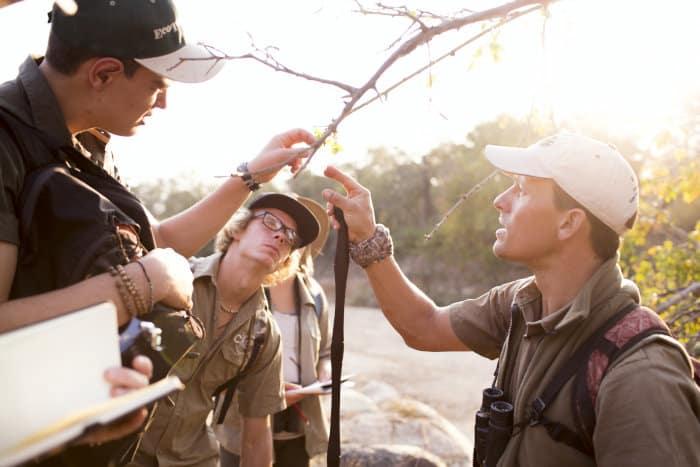
Now, you obviously may feel completely ready to sign up for some of the best wildlife training South Africa, Kenya, and Botswana have to offer.
Wait, hold onto your wild horses; you need to meet a few requirements before you can journey into nature.
Career courses
For career courses, you can join learning expeditions that take as little as 28 days or as long as an entire year . Most of these have a similar set of requirements.
You’ll need to be 18 years or older, plus you have to be able to communicate effectively in spoken and written English .
Students also need to be capable of walking at least 2 km daily without struggle, have a driver’s licence (preferably manual), and have a current first aid certificate or be willing to obtain it.
Courses like the 35-day practical field guide have an additional requirement for the prior completion of a FGASA Field Guide theory component. Luckily, you’ll get help in completing this.
For the shortest six-day course, you have to be 18 years and older and able to walk 12 km daily while carrying your backpack and supplies.
A driver’s licence and a current first aid certificate are also necessary, although you can obtain the latter later.
Wildlife enthusiast course requirements
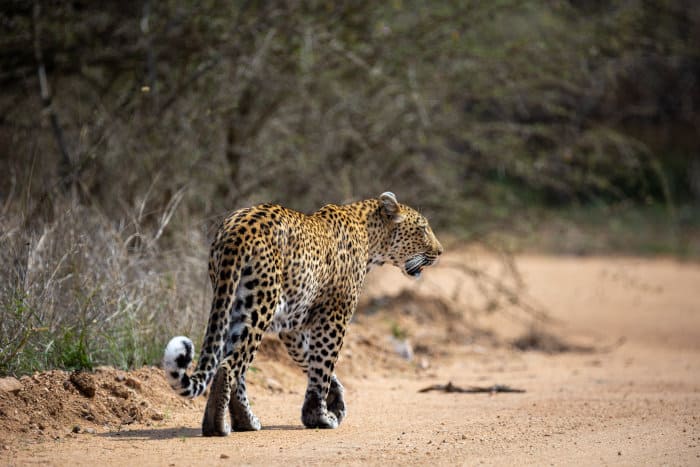
Likewise, the wildlife enthusiast courses have similar requirements regardless of length.
Generally, students will need to be at least 16 years old and be capable of walking for at least 2 km daily . They’d also need to be able to communicate effectively in spoken and written English.
However, some courses do allow people as young as 12 years old when accompanied by a guardian or parent.
Some are more strict with the requirements, like the 7-day wilderness photography course . These require students to be at least 18 years old and in possession of a driver’s licence and first aid certificate, as well as being able to walk up to 12 km per day.
Online courses
The online courses require just a stable internet connection , participants to be 18 years and older, and a basic understanding of English .
Some don’t even have age restrictions for budding African field guides.
Sign Up for a Safari Guide Training Course

If you’re ready to start your journey towards being a master of the savanna or need to learn more, just sign up below , and you’ll be well on your way.
Conservation Careers
Putting the people into conservation, safari guide training in africa.

Information
£3,888 per course.
Immerse yourself into Africa’s wilderness and let nature do the teaching! This course is suitable for anyone who wants to observe animals up close and personal and understand their habitat. Within 28 days, you are taught the basics of African nature not only in theory but also in practice – either in South Africa, Botswana or Kenya’s world-famous Masai Mara.

The natural landscape of South Africa, Botswana and Kenya forms the spectacular backdrop for this unique learning experience. The four-week safari guide course provides basic information about the African wilderness and gives you an opportunity to take part in small projects. At the end of your course you’ll receive a certificate.

Depending on your start date, your course will take you to either Kenya or South Africa/Botswana. In the camps that you will be based at experienced guides will wait for you and teach you about the ecological, geographical and meteorological characteristics of the region. The practical part of your training will take you to the wilderness twice a day. You will travel on foot or use off-road vehicles, learning how to orientate yourself and navigate in the wild. You will be given an insight into the art of tracking, enabling you to follow animals as they move through the bush. Your instructor will explain the behaviour of the animals that you see and the role that they play in the ecosystem. This course is the perfect preparation for the training to be a professional field guide.

Accommodation
As a safari guide student you will be either accommodated in two-man tents (Karongwe, Selati, Mashatu), in stilt houses (Makuleke) or in a wilderness chalet (Mara). When staying in Makuleke you will have access to your own bathroom attached to the house. In Karongwe, Selati, Mashatu, Selati and Mara there are shared bathrooms. In all camps you will find a large lounge for spending evenings with the group, eating together and training. The camps are not open to tourists. As the camps are not fenced in, you can experience an extraordinary connection to the natural environment and may witness animal encounters right in front of your tent.

Each day, you will be offered an early mid-morning snack, a satisfying brunch, a light lunch and a warm dinner. Fruit juice is provided at mealtimes, and tap water, coffee and tea are available the whole day. As the camp is not connected to electricity, generators are used.

Testimonial
“When I started the course, my goal was to simply be in nature and watch various animals – “back to the roots” so to speak. These expectations were more than exceeded.” (Lisa, 29 years)

NATUCATE is a German agency, specialized in voluntary work, field guide training, nature-oriented educational courses and internships with a focus on nature and species conservation as well as animal protection. Moreover, we create and organize individual sabbaticals; commitment for nature conservation and personal development being in the centre. Sustainable and responsible traveling, so-called ecotourism, as well as nature and adventure travel are further areas of expertise.
Our projects, courses and tours, fulfilling high sustainability standards, enable people – from graduates to best agers – to make an active contribution to protecting and conserving endangered species and ecosystems and, at the same time, to broaden their personal horizon.
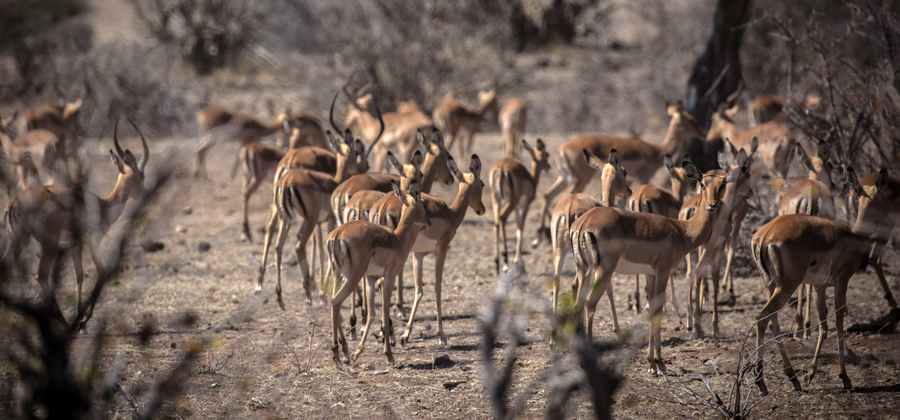
Dates, Service, Cost
Click the link below to learn about upcoming start dates.
- Placement in the programme
- Assistance with travel arrangements
- Assistance with selecting travel insurance
- Assistance with booking flights
- Pre-departure information pack
- Risk coverage certificate
- Accommodation during the programme
- Meals during the programme
- Drinking water, coffee, tea
- Expeditions
- Game drives
- Transfer between different locations
- English-speaking support by long-term experienced staff
- 24/7 support throughout the programme

- 28 days (South Africa/Botswana): 4.400 EUR
- 28 days (Kenya): 7.800 EUR
Find out more or reserve your place
Related conservation training courses.

EcoQuest Course in Africa
- Short Course
- Cost: £1500
Trails Guide Course in Southern Africa
- Cost: £3597
Wildlife Conservation Training Course in South Africa
- Cost: £2423
JOIN THE CONSERVATION CAREERS ACADEMY!
Supercharge your career with support, jobs, community and resources from the leading experts in the wildlife conservation sector..
START YOUR FREE TRIAL
OSK TOURS LTD – Osprey Safaris Kenya
Professionally guided – local – experienced
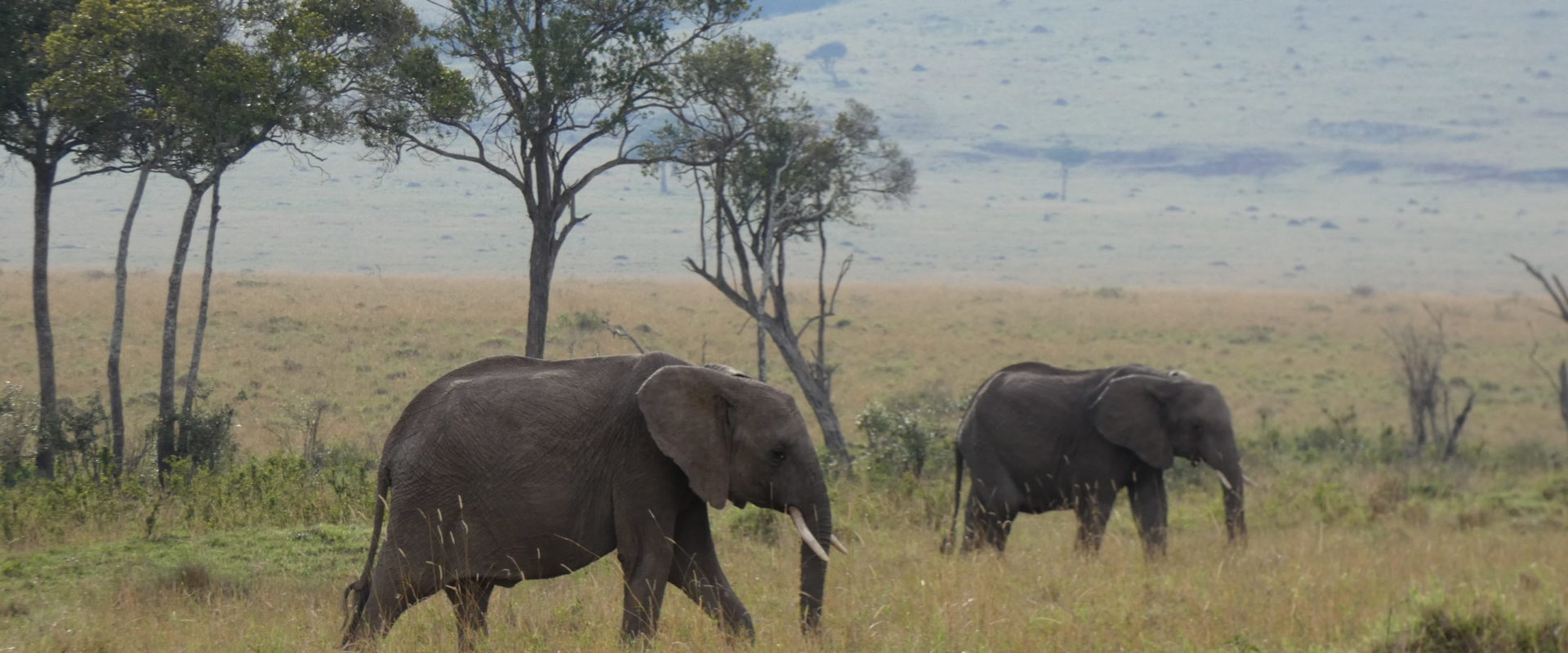
Local Experts
Our guides are local and know the territory and the animals. You also get the best possible price, which is middle-man free.
TripAdvisor Rated
We have received Certificate of Excellence award with multiple 5-star ratings from TripAdvisor
Customize your tour
Tell us about your trip requirement. We'll work together to customize your trip to meet your exact requirement so that you have a memorable trip.
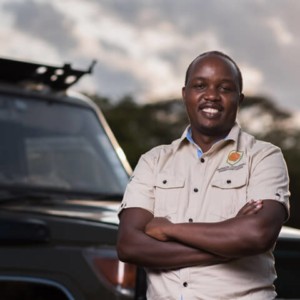
Professional Safari Guide, John Kago, leads private custom safaris in Kenya. He holds a Silver Medal from the Kenya Professional Safari Guide Association, has guided for A&K and Nat Geo and is really passionate about bird watching, natural and wildlife history in Kenya.
We know Kenya. We pride ourselves in making your safari an amazing experience. We are a Kenyan owned local safari company with ties to conservation, community and local Kenyan culture. Contact us today and book your adventure. Whether it’s just a trip to the Maasai Mara or a multi-park tour we can customize to your interests. The OSK team is here to plan your ultimate safari.

- All Tailor Made Safaris
- Kruger National Park
- Okavango Delta
- Gorilla Trekking
- Safaris with Frank
- Republic of the Congo
- South Africa
- All Set Departures
- All Set Departures by Date
- Horse Safaris
- Photographic Safaris
- Unique Safaris
- Year-round Safaris
- Botswana Mobile Safaris
- Volunteering
- View all Destinations: Interactive Map
- Mobile Safaris
- Gorillas & Chimps
- Walking Safaris
- Horse Back Safaris
- All Training Courses
- All Training Courses by Date
- Professional Courses
- Short Courses
- Special Courses
- Training Camps
- Field Guide Training FAQ’s
- Accommodation
- When to Travel
- Frank’s Top 5
Who is Travelling
- First Time to Africa
- Specials & Promotions
- Cost of a Safari
- Travel Info
- Why Book with Us
- Sustainability
- Our Partners
- Give Power to Ride 4 Woman
- Guest Reviews
- Price Guarantee

Tailor Made Safaris
Popular safaris, east & central africa, southern africa, set departures, top destinations, indian ocean islands, professional, trails guide course (28 days), "bush walks in big game country".
Whether you are a career guide working towards a qualification or attending for self-satisfaction and learning, this course is for you!
Explore the wilderness of the majestic Makuleke concession in the famed Kruger National Park or Mashatu Reserve in the (Northern Tuli – Botswana) on foot, on a 28 day FGASA Trails Guide course. The majority of time will be spent enjoying bush walks in big game country. The course is conducted in a different, wilder area and thus provides a truly authentic field guide experience. Your wildlife knowledge, situational awareness and environmental appreciation will increase exponentially while on this course, whether you are a career guide working towards a qualification or attending for self-satisfaction and learning.
The 24 000 ha Makuleke concession hosts 75% of the Greater Kruger National Park’s biodiversity, which makes walking in this area very special and rewarding.
Our Mashatu wilderness camp is located in the Land of Giants. It is an area of outstanding natural beauty with majestic rocks, diverse vegetation, abundant wildlife, a profusion of birds and rich archaeological heritage.
general information
Why do the course.
The aim of this course is to develop and practice skills and gain knowledge to attain the FGASA Trails Guide Back-up qualification. At the same time develop and enhance skills and knowledge learnt on the FGASA Field Guide course. Your environmental and situational awareness will increase exponentially.
It is also open to anyone who wants experience or opportunities of walking in a wilderness area and improving personal skills. Skills gained on this course can be used anywhere. The course content is the same for everyone, regardless of existing qualifications.
However if a FGASA Back-up qualification is what you are after, you will have to attain the full FGASA Field Guide qualification before coming on the course.
about the school
Operating for 24 years, EcoTraining is the pioneer and leader in safari guide and wildlife training in Africa. EcoTraining is widely recognised by the safari industry for its credibility and standard of excellence in nature guide training. We offer accredited career courses, gap year and sabbatical programmes, nature programmes, high school and university study abroad programmes, custom courses and on-site professional guide training at safari lodges. All courses are run directly from EcoTraining’s unfenced bush camps in prime wilderness areas across South Africa, Botswana, Kenya and Zimbabwe. To date EcoTraining has trained over 11 000 people from 33 different countries around the world.
course content
Some theoretical and practical subjects covered on the course:.
- Introduction to Trails Guiding
- Navigation and Orientation
- Situational Awareness
- Animal Behavior
- Animal Tracks and Tracking
- Bird Identification and Behavior
- Dangerous Game Knowledge & Behavior
- Walking in Dangerous Game Country
- Approaching Dangerous Game on Foot
- Rifle Handling for Dangerous Game
- Weapons Handling, Safety and Ballistics
- Possible 2 day navigational hike and sleep-out
start dates
The sleeping arrangements at all our camps consist of two people sharing per tent. Single requests are required to pay double-rates. Women and men do not share tents unless booked as a couple.
- Early morning wake-up (tea, coffee, biscuits, fresh fruit and cereal)
- Brunch after activity (cooked breakfast and fruit salad)
- Afternoon tea (light lunch/ sandwiches)
- Dinner (balanced, warm plated meal with meat, vegetables and salad)
The Trails Guide course takes place in one of the following camps (depends on start date): Makuleke, Mashatu or Selati.
Scheduled Bush Bus Transfers
There will always be a scheduled transfer for the start and the end of all EcoTraining courses. These transfers come at an additional rate.
Departure from Johannesburg (1st day of course)
All EcoTraining scheduled Bush Bus transfers will depart from the Emerald Guesthouse on the first day of a course. The departure time is strictly 7am from the Emerald Guesthouse. Please arrive at departure point no later than 15 minutes prior to departure.
Participants flying into Johannesburg (international and domestic) are advised to arrive the day before and overnight at Emerald Guesthouse to ensure all passengers are on time for departure and the bus leaves as scheduled. Please book directly with Emerald Guesthouse on [email protected].
The guesthouse is within close proximity to OR Tambo International Airport and if supplied with your flight details, will collect you at no additional charge. They offer a range of accommodation options, to suit your individual requirements and budget. As the Bush Bus departs early morning from Emerald, overnighting at the guesthouse will help simplify your departure.
Drive time (from the relevant EcoTraining Camp):
- From Selati or Karongwe Reserve: approx. 5 hours
- From Botswana: approx. 7 hours
- From the Makuleke Concession (Kruger National Park): approx. 7 hours
Departure from Camp (Last day of course)
All EcoTraining scheduled BushBus transfers will depart from the relevant EcoTraining camp on the last day of a course. The departure transfer time is strictly 8am from all camps.
Please expect a late afternoon arrival back in Johannesburg. Drop off can be arranged at OR Tambo International Airport or Emerald Guesthouse only. Please book late evening flights (preferably 20h00 and onwards). Alternatively, please arrange post course accommodation at Emerald Guesthouse.
qualifications
EcoTraining Back-up Trails Guide/ ARH Certificate and FGASA Back-up Trails Guide/ ARH Qualification
If you want to attain the FGASA Trails Guide back-up qualification as well as the Advanced Rifle Handling (ARH) qualification presented on this course, you must:
- Have a full FGASA Field Guide Level 1 qualification (inclusive of a First Aid qualification)
- Have an accredited PFTC (Professional Firearm Trainers Council) (was SASSETA) accredited Rifle Proficiency certificate before you arrive on course (www.pftc.co.za ). If you need further information on PFTC, please ask for our full PFTC information document.
- Have paid all your FGASA fees (current membership fees and exam fee)
- Be prepared to undergo the FGASA ARH qualification. Please note we offer limited training as part of the course, hence any rifle training you can do beforehand, will go a long way in giving you confidence with a rifle
ZAR 73,740 per person
*Please note that the official price for this course is in ZAR as above. Any other currency price for this tour is merely indicative. The ZAR price will be converted to your preferred currency using the exchange rate on the date of invoice.
Price includes:
- Accommodation (sharing)
- Instructors and Training
- FGASA registration, exam fees and workbooks
- Open vehicle drives and specialist trainer/s.
Price excludes:
- Transfers/transport to and from the camp, before and after the course
- Any accommodation before and after the course
- Beverages (beer, ciders, bottled water)
- Kruger National Park entrance fee (only applicable if the course is at the Kruger Makuleke camp)
- First Aid course
- FGASA certificate (postage)

Do you want to do a course?
Just drop us a message and we help you to find the right course for you!
Our partners in Africa will make your dream trip, a trip to never forget
[email protected] +61 (2) 6685 6868

Developed by Viewport / WordPress Guys
Quick Links
- COVID SAFE Safaris
- How much does a safari cost?
- Specials and Promotions
- GivePower to Ride 4 a Woman
- The Wildebeest Migration
- The Okavango Delta
- Safari Frank UK
- Safari Frank AU
Our Safaris
- All Safaris
- Set Departure Safaris
- Safari Trip Ideas
- Horseback Safaris
- Selfdrive Safaris
- Couples and Honeymooners
- Family Safari
- Group of Friends
- Solo Travellers
Destinations
Newsletter signup, enquire now.
" * " indicates required fields
Privacy Overview
- South Africa
- Family Safaris
- Luxury Safaris
- Wildebeest Migration
- Primate Safaris
- Riding Safaris
- Kilimanjaro Climbs
- Cycling Safari
- Mobile Safaris
- Beach Holidays
- Exclusively yours
- Canoe and Mokoro Safaris
- Weddings & Honeymoons
- Specialist Photographic Safaris
- Walking Safaris
- Small Group Travel
- Single Travellers
- Self Drive Adventures
- Getting Started
- When to Travel
- Safari Pricing
- Accommodation
- A Day on Safari
- Safari Tipping Guide
- The Insider’s Guide
- Why Aardvark?
- The Aardvark Story
- Meet the team
- Feedback we loved
- Responsible Tourism
- Booking Conditions
- Aardvark Guarantee
Safari Guide Training Courses
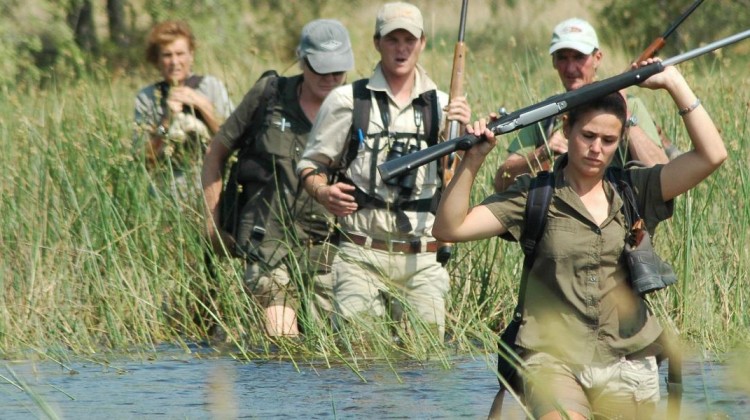
Safari guide – the ultimate dream job right? You have the best office in the world, every day feels like an adventure, you meet interesting people, and get to enjoy Africa and its wildlife. Scratch beneath the surface though and a few negatives are there too. Safari guiding isn’t brilliantly paid, the working day can be very long indeed, you’re not staying where guests do and your accommodation can be fairly basic, and every so often there’s the client you could happily feed to the local lion pride!
So maybe you don’t really want to give up what you do and become a guide, but you still want more from your next holiday in Africa than morning and afternoon wildlife drives or nature walks – you want to drive the 4wd game viewer through the river, learn how to approach big game safely on foot, and get behind the scenes back at camp.
How about joining a safari guide course? In many cases you’ll be studying alongside those aiming to be guides, so this isn’t simply a taster, but the real thing for those wanting to train as a professional safari guide, and you can be there right alongside them.
Eco-Training
Ask about a safari guide training course and the name that will keep popping up is Eco-Training. They’ve been training guides for over twenty years and run courses throughout the year in South Africa, Botswana, Zimbabwe, Kenya.
A typical Eco-Training safari guide course There is no typical course as they run a huge variety from a 6 day Wilderness Trails Skills course through to the year-long Professional Field Guide course, with a number of others in between.
Skills taught Typical guiding skills taught on the courses include:
– ecotourism and guiding – creating photographic opportunities for guests – communication skills – dealing with guests – animal behaviour – ecotourism and local communities – tracking big game on foot – driving a 4wd game drive vehicle – shooting a rifle – sleeping out under the stars
Cost of a course (2020 prices) Rates of £60-£100 per day are much lower than a luxury safari holiday, but they’re different beasts and no one should come on a guide training course looking for a cheap safari holiday. You’ll be expected to be up early and go to bed late, as well as reading during the hours you’d perhaps normally have a siesta. However there’s enjoyment too; as Emma Fairbank wrote in a thank you note:
“After settling back into normal life, I just wanted to take the opportunity to say THANK YOU! I had the most amazing time…it was fantastic; the people, the location and the course. I left a little piece of myself in Mashatu, but that is OK because it means I have to go back… Thank you for kindling and inspiring a love of Africa!”
Okavango Guiding School
With almost 15 years of experience and a pedigree as long as your arm Okavango Guiding School is another respected operator in the area of safari guide training. The owners, brothers Grant and Brent Reed, are also the founders of one of our favourite mobile safari companies, Letaka Safaris , and Grant is one of the most highly qualified guides and trainers in the industry, having completed his FGASA Special Knowledge and Skills (SKS) Dangerous Animals, SKS Birding and SKS Wildflowers.
A typical Okavango Guiding School safari guide course Okavango Guiding School offer three different courses at 7 (Bush Skills), 14 and 28 days (Trails Guide Course or FGASA Level 1). Courses run throughout the year.
Skills taught The courses ensure practical experience of:
– tracking – weapons handling – wilderness walks – motor boating – game driving – poling a dug-out canoe
The following theory is also covered:
– geology – astronomy – weather and climate – ecology – plants – invertebrates – frogs, fish, reptiles – birds – mammals
Cost of a course (2020 prices) The courses are roughly £1,840 per week and attract people with a wish to learn about and experience the wilderness, as well as those keen to be guides or experienced guides topping up their knowledge and skills.
As Grant puts it “Safari guide training courses suit just about anyone who is active and curious about nature!”
NJ More Field Guide College
The More family has run the Lion Sands Game Reserve, alongside Kruger National Park, for four generations. They also own and operate a collection of hotels and lodges throughout Southern Africa.
Rifle target practice
The NJ More Field Guide College, which runs on the Marakele National Park in South Africa, is not simply a business for them, but a way to ensure future guides are “passionate, highly skilled and authentic natural ambassadors.”
Courses run at the field guide college
The college offers three different courses; three months, six months and twelve months. They start in January or July.
The3-monthh course covers FGASA Field Guide Level 1
Identifying and tracking wildlife with their droppings
Additional skills taught on the 6 and 12 month courses
– FGASA Field Guide Level 1 – FGASA Trails Guide Back up – Rifle competency and Advanced Rifle Handling – Wilderness First Aid Level 2 – Cybertracker “Tracks & Signs” – Birding – Wildlife Photography – Night Sky Safari Skills – Navigation & Orientation – 4×4 Driving – Survival Skills – Principals and practical application of Reserve Management – Basic Mechanics – Hospitality in a 5-star Environment
Wildlife Photography training
Cost of a course (2020 prices)
3 month field guide course £4,380 6 month field guide course from £6,100 12 month field guide course £11,365
Arun studied at the field guide school in 2015 and wrote:
“I been wanting to come and live and work in the bush in Africa for pretty much all my life. NJ More Field Guide College is probably the best place I could ever have chosen. Our location is simply amazing, our instructors are experts who can really teach. I have gained so much knowledge about the bush, the animals, birds, insects you name it. The sightings and the learnings have been superlative and I am thoroughly enjoying myself following my African dream. Living with an international team and meeting wonderful people making lifetime friends, it’s been a joy from the start.”
Interested for a gap year student, a spouse with a sabbatical, or yourself? Get in touch and we’ll get you more details. Send us an email or give us a call and we can help with the rest.
2 responses to “Safari Guide Training Courses”
To whom it may concern I am very interested in joining one of these fantastic courses.I am currently 17 and studying for my A levels in the south east of England. I have a strong interest in conservation and wildlife preservation and hope to become a vet. I lived in Zimbabwe for the most part of my life and moved here to the Uk in the last year. I have a passion for the African bush and its wildlife and one a day hope to become a qualified vet with the idea of working with conservation and anti-poaching. I have a fair amount of experience in the bush, tracking ,fishing and general safety .
What would you recommend I do ? Do I come out with a qualification after one of your courses? Is it worth my while getting a PH license ?
hope to here from you soon Kind regards Matthew
Dear Matthew, Thank you for your interest in safari training courses. We do not run the courses ourselves therefore it is best to contact the safari training courses directly with your queries. Best regards Renate
Leave a Reply Cancel reply
Your email address will not be published. Required fields are marked *
This site uses Akismet to reduce spam. Learn how your comment data is processed .
- © 2024 Aardvark Safaris
- Privacy Policy
Our website uses cookies
Privacy overview.

- +254 712683442
AFRICA KENYA SAFARI TOUR GUIDES
What makes a great safari a great safari guide, come meet our professional safari guides.

You could have gone on a cruise. Or to the beach. But you chose to go on the most thrilling adventure of all – an African safari. You had a passionate desire to see our true world in all its natural colors, sounds, and spectacle.
You craved excitement, to witness the big game roaming the savannahs, leopards stalking in the bush, and the thrill of moving through the jungle to the calls of wildlife echoing about.
Now with the anticipation of your upcoming safari, it’s not surprising you’re going to have questions about the person who will be your portal to this new mysterious landscape – your safari guide.

Who Is My Safari Guide?
Who is this person that is going to bring me up close to lions, leopards, cheetahs, and every order of wild animal?
What kind of training does my guide have? Who decides when he’s ready to take me and my family out on the savannah or deep into the jungle?
These are the perfect questions to be asking. And we appreciate your care and concern… and your excellent judgment.
We, at Africa Kenya Safaris , have been in the business of bringing folks like you into the heart of the safari experience for over 20 years. This is our home and we know it well, the landscapes, the people, and most definitely, the wildlife.

Your leader, companion, teacher & friend.

We know how important your safari guide is – he is your pilot into the exotic world you are about to enter. We require that your guide’s knowledge of this landscape must be unsurpassed and that he is confident, steadfast, and ready to take on all situations.
We expect that your safari guide will be your leader, companion, teacher, and very importantly, your friend.
But while he must be an expert on the wildlife – knowing just where to find that family of elephants or an elusive leopard – he must also be tuned into your needs – is it time to take a break or have lunch or perhaps pull up to an incredible vista for a sundowner?
Most importantly, your safari guide must understand that your safety and security come before everything else.
When a guide knows and lives these vital concepts, then he is ready to be an Africa Kenya Safari’s guide. And only then, will we entrust him with you, our precious client.

Who Are The KPSGA?
They are the Kenya Professional Safari Guides Association – the gold standard for training and certifying safari guides. These are the people who provide a certification process through rigorous testing to ensure the highest standards for Kenya’s guides.
Our guides are certified with the KPSGA. This is your assurance that your guide is not only an expert in his field but follows the high ethical standards set by their professional association.
Not only are our guides certified experts, but they have also been sharing their passion for the safari life for decades – some as much as 30 years! When you first meet your safari guide and he welcomes you with his warm smile, you’ll have every assurance you are in very capable hands.
With his easy manner and curiosity about your safari dreams, you’ll quickly realize that your guide is an excellent communicator. And many of our guides are multilingual – all are fluent in English and some also speak German, Italian, French, or Spanish.
It’s Your Safari. It’s Your Story

Together, you and your guide will create your personal safari story – the anticipation of the adventure, the big dramatic moments of the chase, the quiet introspective times around the campfire recalling special moments of the day, and the emotional goodbyes at the end of your journey.
At Africa Kenya Safaris it is your guide’s singular purpose to create this special safari story for you… one of exceptional memories to treasure, for you to share with others for years to come.
And we promise you… many of those special memories will be of that exceptional person who made it all happen so flawlessly – your safari guide.
Safari Tour Guide Profiles

Moses Kimani
- Date of Birth: 1979
- Safari Guiding Experience: 13 years
- Certified: Kenya Professional Safari Guides Association (KPSGA)
- Languages: Kikuyu, Swahili & English

Mwita Chris
- Date of Birth: 1968
- Safari Guiding Experience: 12 years


Joseph Mbotte
- Safari Guiding Experience: 30 years
- Languages: Swahili & English

George Mbugua
- Date of Birth: 1967
- Safari Guiding Experience: 20 years
- Languages: Swahili, English & Kikuyu

Abdul Halim
- Date of Birth: 1982
- Safari Guiding Experience: 15 years
- Languages: Swahili, English & Italian

Bonaya Shari
- Safari Guiding Experience: 9 years

Evanson Kamau
- Date of Birth: 1984
- Safari Guiding Experience: 3 years
- Languages: Kikuyu, Meru, Swahili & English

John Munguti
- Date of Birth: 1972
- Languages: Kamba, Swahili & English

Francis Mwikya
- Date of Birth: 1963
- Languages: French, English, Swahili & Kamba

James Mwangi
- Date of Birth: 1993

Sisto Kimunge
- Date of Birth: 1970
- Safari Guiding Experience: 18 years

Thomas Kombo
- Date of Birth: 1985
- Safari Guiding Experience: 10 years
- Languages: Spanish, English, Swahili & Taita
Abubakar Yahya
- Date of Birth: 1977
- Safari Guiding Experience: 14 years
- Languages: Digo, Swahili, French, Arabic & English

Waiganjo Michael
Ezekiel otieno.
- Date of Birth: 1978
- Languages: Luo, Swahili & English

Humphrey Wanjiku
- Date of Birth: 1994
- Safari Guiding Experience: 1 year
Safari Guide FAQs
Welcome to our comprehensive list of questions and answers about safari tour guides! At Africa Kenya Safaris, we understand that the role of a safari guide is paramount in creating an unforgettable wildlife adventure. Our highly skilled and knowledgeable guides are passionate about the African wilderness, and they are dedicated to providing you with an exceptional safari experience. In this guide, we aim to address all your queries related to our safari guides, from their qualifications and experience to their ability to accommodate special needs. Join us as we explore the world of safari guides and the incredible journeys they lead in the heart of Kenya’s magnificent wildlife.
How experienced are your safari guides?
At Africa Kenya Safaris, we take immense pride in our team of highly experienced safari guides, who are passionate about providing you with the most memorable and rewarding safari adventures. As of the time of writing, we are fortunate to have 16 exceptional tour guides, collectively boasting just under 200 years of combined safari experience. This wealth of knowledge and expertise ensures that you are in the hands of seasoned professionals who have an in-depth understanding of the diverse wildlife, ecosystems, and cultures found within Kenya’s stunning landscapes.
Decades of Expertise
Our safari guides bring a wealth of experience to each safari excursion. Our most seasoned guide, with an impressive 30 years of safari experience, is a testament to our commitment to excellence and client satisfaction. With a deep understanding of the local flora and fauna, animal behaviour, and regional history, our guides are adept at enriching your safari journey with fascinating insights and stories.
Passion for Wildlife and Conservation
Beyond their experience, our safari guides are united by a shared passion for wildlife and conservation. They genuinely care about preserving Kenya’s natural treasures and promoting sustainable tourism practices. As you embark on safari with us, you’ll witness the genuine enthusiasm our guides have for the breathtaking landscapes and awe-inspiring wildlife, making your safari experience truly exceptional.
Personalized and Professional Service
Our safari guides are not only experienced and knowledgeable but also committed to providing personalized and professional service. They prioritize your safety, comfort, and satisfaction throughout the safari journey. With their expertise, you can rest assured that every aspect of your safari, from wildlife encounters to cultural interactions, will be thoughtfully curated to create cherished memories that last a lifetime.
When you choose Africa Kenya Safaris for your safari adventure, you can have full confidence in our exceptional team of safari guides, whose dedication and expertise promise an unforgettable and enriching experience in the heart of Africa’s wildlife wonderland.
How much should I tip my safari guide?
Tipping your safari guide in Kenya is a gesture of appreciation for their excellent service and the memorable experiences they provide. While not mandatory, it is considered customary to tip your safari driver/guide at the end of the safari tour. Here’s a guide on how to go about it:
- Service Charge Inclusion : It’s essential to note that all hotels, lodges, and porterage gratuities are typically included in the cost of your safari. This collective service charge ensures that the staff members are compensated for their services.
- Individual Tips for Hotel Service Employees : While the service charge covers most gratuities, you may still choose to tip individual waiters, porters, and other hotel service employees separately, especially if they have gone above and beyond to provide exemplary service. Generally, offering $1 – $5 per meal or service is appreciated.
- Safari Guide Gratuity : Your safari driver/guide plays a crucial role in making your safari experience exceptional. It’s customary to offer a tip to your guide at the end of the safari. The amount of the tip is subjective and should reflect your evaluation of the quality of service provided. On average, tipping around $10 per guest per day or 5-10% of your safari-only cost is suggested. However, the final amount is entirely at your discretion, and you are welcome to provide additional compensation for outstanding service. A bar gratuity of $1 is also acceptable.
- Currency and Presentation : You can tip your safari guide in Kenya shillings, USD, or Euro. It’s customary to present the tip in an envelope at the conclusion of your safari.
Remember, tipping is an expression of gratitude for the efforts of your safari guide and the wonderful memories they helped create during your journey. It is a meaningful way to show your appreciation for their hard work and dedication in making your safari adventure truly unforgettable.
What qualifications do your safari guides have?
At Africa Kenya Safaris, we take great pride in our team of safari guides who are not only highly experienced but also hold prestigious qualifications to ensure the utmost professionalism and expertise. All our safari guides are certified members of the Kenya Professional Safari Guides Association ( KPSGA ), a reputable organization known for promoting excellence in safari guiding and wildlife conservation.
Kenya Professional Safari Guides Association (KPSGA) Certification
To become a certified safari guide with Africa Kenya Safaris, our guides undergo rigorous training and evaluation by the KPSGA. The association sets high standards for safari guides, including their knowledge of wildlife, flora, fauna, and the cultural aspects of Kenya. By choosing guides certified by KPSGA, we can guarantee that your safari experience is led by knowledgeable professionals who are passionate about sharing their wealth of information with you.
Comprehensive Training and Evaluation
The KPSGA certification process involves comprehensive training in all aspects of guiding, including identifying wildlife species, understanding animal behaviour, tracking, and ensuring guests’ safety during the safari. After the training, guides are evaluated on their practical skills and theoretical knowledge before being awarded the prestigious certification.
Passion for Conservation
Beyond the technical expertise, our safari guides share a deep commitment to wildlife conservation and environmental stewardship. They are dedicated to raising awareness about the importance of protecting Kenya’s diverse ecosystems and the incredible biodiversity that calls this country home.
When you embark on a safari adventure with Africa Kenya Safaris, you can be confident that our certified safari guides will provide you with a safe, informative, and immersive experience in the heart of Kenya’s wilderness. Their passion for wildlife, coupled with their professional training, ensures that your safari journey will be nothing short of extraordinary.
What languages can your safari guides speak?
All our safari guides are fluent in both English and Swahili, and some of our guides also speak the following languages:
Can a safari guide help with photos?
At Africa Kenya Safaris, we understand the importance of capturing the magical moments you encounter during your safari adventure. Our highly skilled and knowledgeable safari guides are not just experts in wildlife and the natural world but are also passionate about helping get the perfect picture. They are more than willing to assist you in getting the perfect shot, ensuring that your safari memories are preserved for a lifetime.
Pop-Up Roof Safari Jeeps
To enhance your photography experience, all our safari vehicles are customized with pop-up roof hatches. These hatches provide unobstructed 360-degree views, allowing you to photograph wildlife from various angles and positions. Whether you are admiring a pride of lions or witnessing a breathtaking sunrise over the savannah, the pop-up roof allows for optimal photo opportunities.
Sharing their Passion
Our safari guides are not only skilled naturalists but also passionate storytellers. They will share their wealth of knowledge about the animals, landscapes, and local culture, enriching your photography journey with fascinating insights and anecdotes. As you capture the essence of the wild, our guides will help you appreciate the intricate connections between nature and its inhabitants, making your safari experience truly extraordinary.
Whether you are an amateur photographer or a seasoned pro, our safari guides are dedicated to assisting you in creating a captivating visual record of your Kenyan adventure. With their expertise and guidance, you can focus on enjoying every moment while they help you immortalize the beauty of Kenya’s wildlife and landscapes through your lens.
Can your safari tour guide provide water during my safari?
At Africa Kenya Safaris, your comfort and well-being are our top priorities. We understand the importance of staying hydrated during your safari adventure, especially in the African wilderness. That’s why we ensure that clean and refreshing drinking water is readily available throughout your safari journey.
Complimentary Drinking Water
On all our safari tours, we provide complimentary bottled water to keep you hydrated during your game drives and excursions. Our safari vehicles are equipped with a generous supply of bottled water, ensuring that you have access to safe and clean drinking water at all times.
Regular Water Replenishment
Our experienced safari guides are well-trained to anticipate your needs. They will regularly replenish the water supply in the safari jeep to make sure you never run out. Whether you are observing majestic elephants by a watering hole or enjoying a picturesque picnic in the savannah, you can be confident that a refreshing sip of water is just an arm’s reach away.
Stay Refreshed and Energized
Hydration is essential, especially in the warm and sometimes hot African climate. By providing you with ample drinking water, we aim to keep you feeling refreshed, energized, and ready to fully enjoy the thrilling wildlife encounters and breathtaking landscapes that Kenya has to offer.
When you embark on a safari with Africa Kenya Safaris, rest assured that your safari tour guide will take care of your hydration needs. You can focus on savouring the incredible sights and sounds of the African wilderness, knowing that we have you covered with a constant supply of drinking water throughout your safari adventure.
Can I choose my safari guide?
At Africa Kenya Safaris, we understand the desire to have a familiar and trusted safari guide lead you on your extraordinary journey through the African wilderness. While we cannot guarantee a specific guide for your safari tour, we do our best to accommodate your preferences whenever possible. If you have a particular guide in mind, you can certainly request their services, and we will do our utmost to arrange it.
Subject to Availability
Our team will do everything possible to fulfil your safari guide request, but please be aware that guide availability can vary depending on the season and existing bookings. Our guides are highly sought after for their expertise and passion, so it’s essential to book your safari early to increase the chances of securing your preferred guide.
The Magic of African Safari Guides
Rest assured that all our safari guides are experienced, knowledgeable, and dedicated to providing an unforgettable safari experience. Our guides undergo extensive training and hold certifications from the Kenya Professional Safari Guides Association ( KPSGA ), ensuring that they possess in-depth knowledge of wildlife, conservation, and the local ecosystems.
Unparalleled Safari Experience
Whether you have a requested guide or are paired with one of our other experienced guides, you can be confident of receiving a fantastic safari adventure. Our guides are skilled in wildlife tracking, birdwatching, and interpreting animal behaviour, making each game drive informative, exciting, and filled with extraordinary sightings.
While we strive to accommodate specific safari guide requests, we also trust that our entire team of guides will deliver an exceptional safari experience. Whichever guide accompanies you on your journey, you can be assured of a safari that will leave you with memories to cherish for a lifetime.
Can safari guides accommodate guest with special needs?
At Africa Kenya Safaris, we strive to provide exceptional safari experiences for all our guests, including those with special needs. While we cannot guarantee that all listed safari accommodations and facilities will be fully accessible to guests with specific requirements, we are committed to ensuring that everyone enjoys equal value and standard during their safari tour.
Understanding Your Needs
When booking your safari with us , we kindly request that you specify any special needs or requirements you may have, including wheelchair accessibility or special dietary preferences. By providing us with this information in advance, we can take the necessary steps to tailor your safari experience to your unique needs.
Inclusive Safari Guides
Our experienced safari guides are well-versed in accommodating guests with special needs and are dedicated to creating a comfortable and enjoyable safari journey for everyone. From assistance during game drives to ensuring that your safari activities are accessible, our guides are here to make your adventure as seamless and memorable as possible.
While we do our best to reserve properties and facilities that align with the special needs of our guests, we advise discussing your specific requirements with our team during the booking process. Our goal is to ensure that each guest, regardless of their needs, can fully embrace the wonders of the African wilderness and create lasting memories on their safari tour with Africa Kenya Safaris.
What are the benefits of the jeeps your safari guides use?
At Africa Kenya Safaris, we take pride in providing our guests with the ultimate safari experience, and a significant part of that comes from our top-notch 4×4 safari jeeps . These specially designed vehicles are equipped with a range of features to ensure your comfort, safety, and optimal game viewing opportunities during your safari adventure.
Pop-Up Roof for Uninterrupted Views
Our 4×4 safari jeeps feature pop-up roofs, allowing you to stand up and enjoy unobstructed views of the surrounding landscapes and wildlife. Whether you’re observing a majestic elephant herd or a graceful cheetah in action, our pop-up roofs offer a perfect vantage point for capturing those picture-perfect moments.
Comfortable and Spacious
With ample legroom and comfortable seating, our safari jeeps provide a relaxed environment throughout your journey. Whether it’s a thrilling game drive or a scenic transfer, you’ll enjoy a smooth and comfortable ride, enhancing your overall safari experience.
Experienced and Knowledgeable Guides
While our jeeps are well-equipped, it’s the expertise of our safari guides that truly elevates your safari adventure. Our guides possess an in-depth understanding of the local wildlife and ecosystems, ensuring that you have the best chances of encountering the Big Five and other fascinating wildlife species.
Off-Road Capability
Our 4×4 safari jeeps are designed to handle rough terrains and off-road tracks, allowing us to explore remote areas and hidden gems of the national parks and reserves. This capability ensures that you get off the beaten path and have the opportunity to witness wildlife in their natural habitat.
Ideal for Photography
Whether you’re a professional photographer or simply capturing memories, our safari jeeps are perfect for photography enthusiasts. The pop-up roof and open sides enable unobstructed photography, so you can document your safari adventure with stunning images.
From the open savannas of the Masai Mara to the rugged landscapes of Tsavo East and beyond, our 4×4 safari jeeps are your reliable companions for an unforgettable safari expedition. Let Africa Kenya Safaris take you on an exciting journey to explore the wonders of the African wilderness in comfort and style.
How can I leave a review for my safari guide?
We greatly value feedback from our guests at Africa Kenya Safaris, and sharing your safari experience through reviews is a wonderful way to help us continually improve and inspire other travellers. Leaving a review for your safari guide is simple and can be done in just a few easy steps.
Google Reviews
If you have a Google account, you can leave a review by visiting our Google Business Profile page. Simply search for “Africa Kenya Safaris” on Google, and our business listing will appear on the right-hand side of the search results. Click on the “Write a review” button to share your thoughts and experiences with others. You can also follow this direct link to leave an Africa Kenya Safaris review on Google .
Tripadvisor
Tripadvisor is a popular platform for travel reviews, and your feedback can make a significant impact on future travellers. Visit the Africa Kenya Safaris Tripadvisor page and click on “Write a review” to share your safari journey with fellow adventurers.
We genuinely appreciate your time and effort in leaving a review. Your feedback not only helps us recognize and appreciate our dedicated safari guides but also assists other travellers in making informed decisions for their safari adventures. Your kind words may inspire others to embark on their own memorable journeys through the breathtaking landscapes and fascinating wildlife of Kenya.
Thank you for choosing Africa Kenya Safaris for your safari expedition, and we look forward to hearing about your incredible experiences!

Questions About Our Tours?
Our clients
Driving technology for leading brands, our accreditations and booking security.
Africa Kenya Safaris Ltd is licensed under the Kenya Tourism Regulatory Authority ( TRA ) . It is Bonded member No. AS/720 of the Kenya Association of Tour Operators ( KATO ) , Ecotourism Kenya , East African Wildlife Society, and the African Travel and Tourism Association ( ATTA )

Stuart Butler
- In this guide
- Samburu, Buffalo Springs & Shaba
Meru National Park
Lake nakuru national park, amboseli national park.
- Nairobi National Park
- Off the beaten track
Kenya besides safari
- Where to go
- Need to know
- Itinerary planning
- Hidden gems
- Conservancies
- How to plan & book
Kenya is the original home of the safari and it’s still one of the finest safari destinations in Africa . I've been going on safari in Kenya for decades, as a travel journalist and guidebook author writing about safari, conservation and life among the Maasai tribes.
The main thing I've learned: there's so much more to Kenya than the mainstream safari industry of luxury camps and the famed “big five” (so named because they were the prize targets of colonial–era hunters).
The country proudly boasts of an impressive network of protected spaces made up of 65 national parks and reserves as well as dozens of private and community conservancies. Together these cover a huge proportion of Kenya’s diverse landscapes and provide a home for animals as large as an elephant and as tiny as an elephant shrew.
Some parks, such as the Masai Mara and Amboseli , are rightly world famous. Other parks, such as Meru National Park or Kakamega Forest Reserve, barely make a blip on the mainstream safari circuit but are every bit as rewarding (and much quieter!) then the big name parks and reserves.
Kenya has a world class safari tourism industry with excellent safari operators catering to all budgets and a diverse portfolio of safari lodges and camps. All you need to decide is when and where to go – and that's where my guide comes in. Dig in and Safari njema! – (Have a nice trip!)
featured kenya safaris
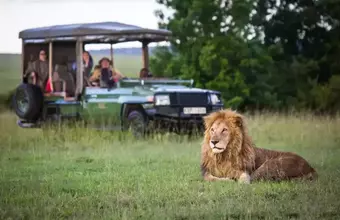
Enchanted Kenyan Safari
Samburu, Rhinos and Mara Safari
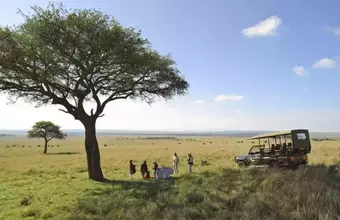
Affordable Masai Mara Safari
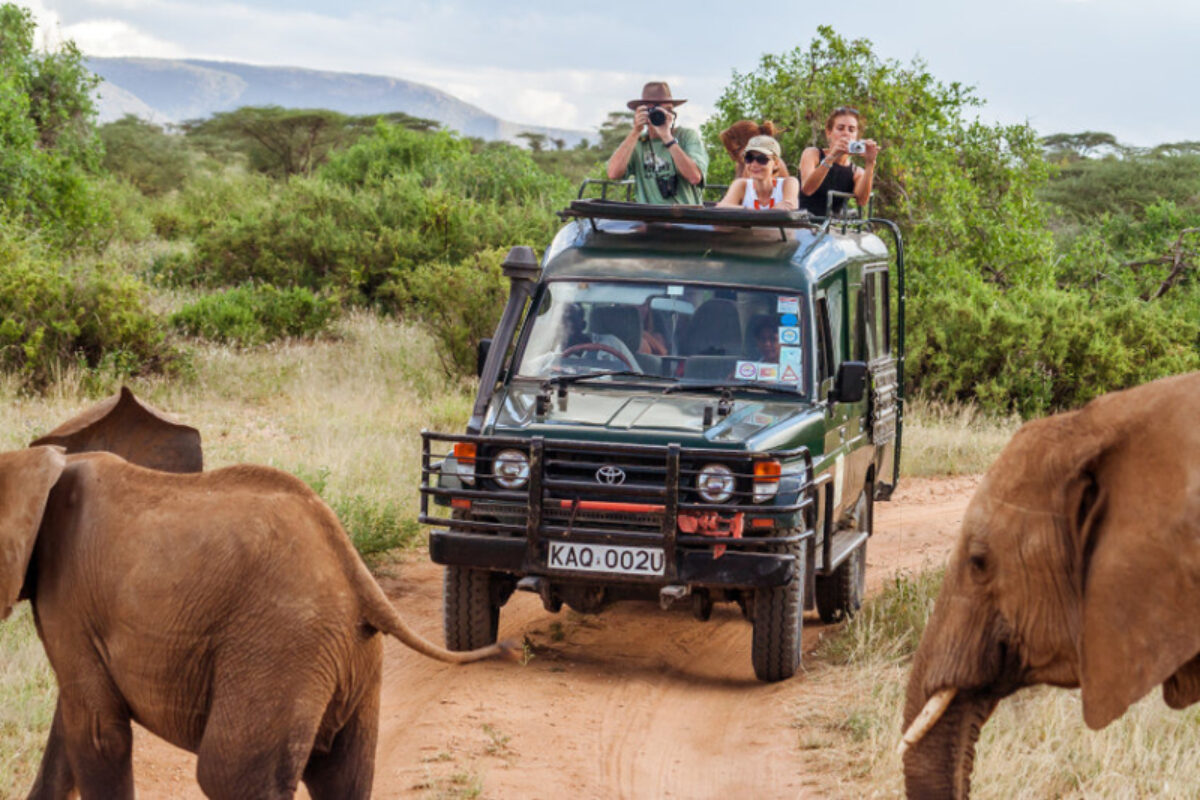
The best safaris in Kenya
Kenya’s most popular – and some underrated – safari highlights.
Don't be swayed by the Masai Mara's magnetic pull. There are many hidden gems to be discovered in Kenya: here are a few of my top recommendations.
Masai Mara National Reserve
Mara north conservancy, ol pejeta conservancy, samburu game reserve, tsavo east & west national parks, loita hills, kakamega forest reserve, aberdare national park, lamu island.
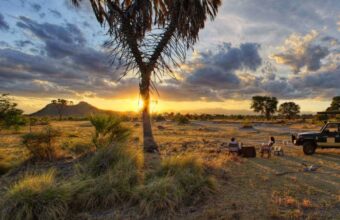
Elsa’s Kopje
This is the best lodge in what is, for me, one of the best safari parks in Kenya. Named after Elsa the lion, of Born Free Fame, the lodge sits on an outcrop with simply incredible views over Meru. Owned by Kenya-based Elewana Collection, it’s undeniably pricey – rooms start at around USD $950 per night and climb steeply from there – but worth a night or two if your budget can stretch that far. If that’s beyond your means I can also recommend Meru Camp and there are cheaper options in the nearby town of Maua.
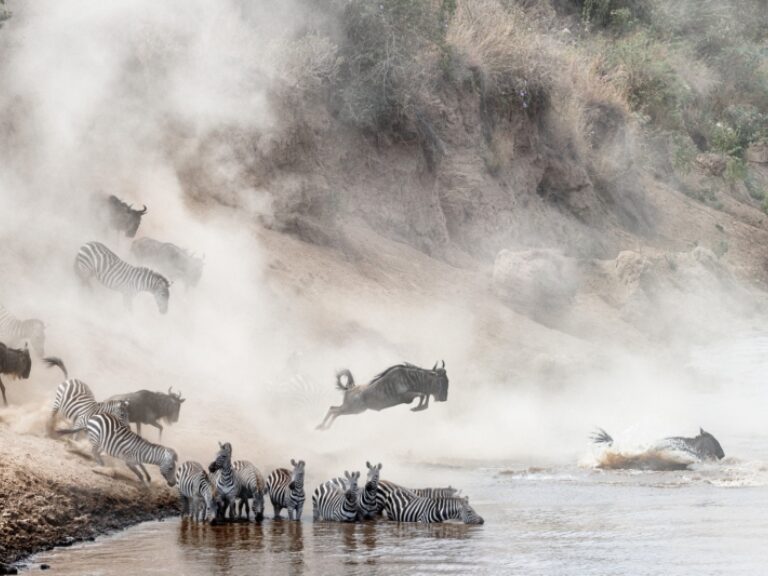
Witness the migration river crossings – but expect crowds!
The wildebeest migration is one of the world’s greatest natural phenomena, and watching the herds dodge hungry crocodiles as they surge across the Mara River is a staple of Kenya safari. The migration moves into the Masai Mara from Tanzania’s Serengeti between June and October. This is by far the busiest time and place of the year, so expect crowds. If you’d rather see the migration untroubled by crowds, I recommend you look at Tanzania instead.
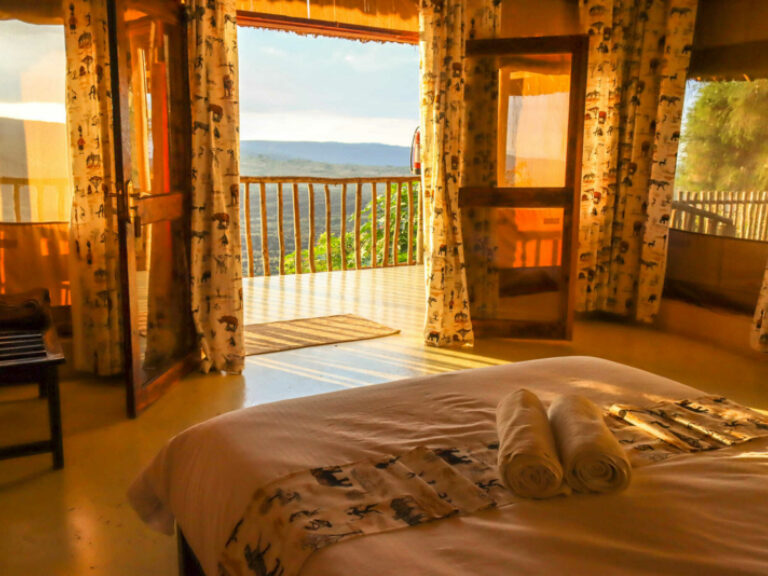
Denise Carnihan
I can highly recommend Maili Saba. It has a picturesque location overlooking the Great Rift Valley and volcano region, with lovely permanent tents each with en-suites and balcony, and all very nicely decorated. There is a communal pool and outside gazebos for relaxing. The main dining room and lounging area is stunning with striking cathedral ceiling and beautiful decor. The food is absolutely outstanding and the staff are warm, friendly and go out of their way to assist their guests. The first time I visited was a complete surprise organised by my Kenyan partner, and I've included it in our tour itineraries ever since.
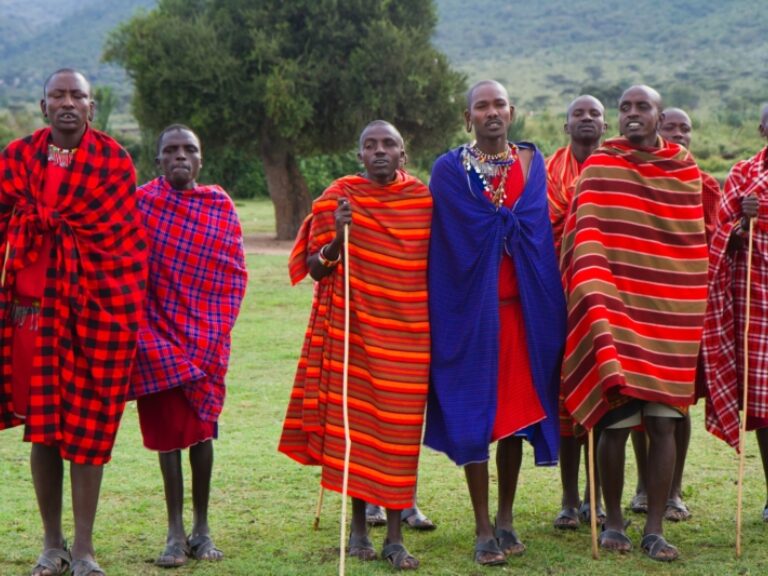
Nashulai Maasai Conservancy
One of the great success stories of Kenya safari has been the emergence of networks of conservancies, usually adjacent to the better known national parks. These are community-run or privately-operated protected areas, run for the benefit of wildlife and local communities. In the Masai Mara, the Nashulai Maasai Conservancy is particularly interesting, as it’s the only one that was 100% established by local Maasai and the only one where the Maasai remain in their homes within the conservancy. I can also highly recommend Mara North, Naboisho, and Ol Dereski; you’ll likely have an amazing time in any of them.
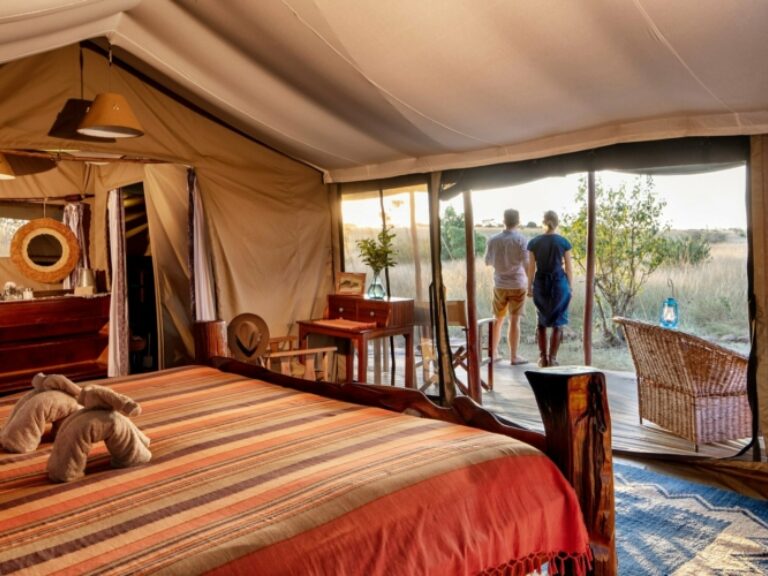
Offbeat Mara
Mara North is perhaps the best known conservancy in the Masai Mara, and Offbeat Mara is one of my favourite camps in the entire place. It's a small, un-showy camp of just seven tents including two family tents. In addition to the standard game drives you can do night drives, guided bush walks, horse riding, hot air balloon flights and even do some Maasai running coaching!
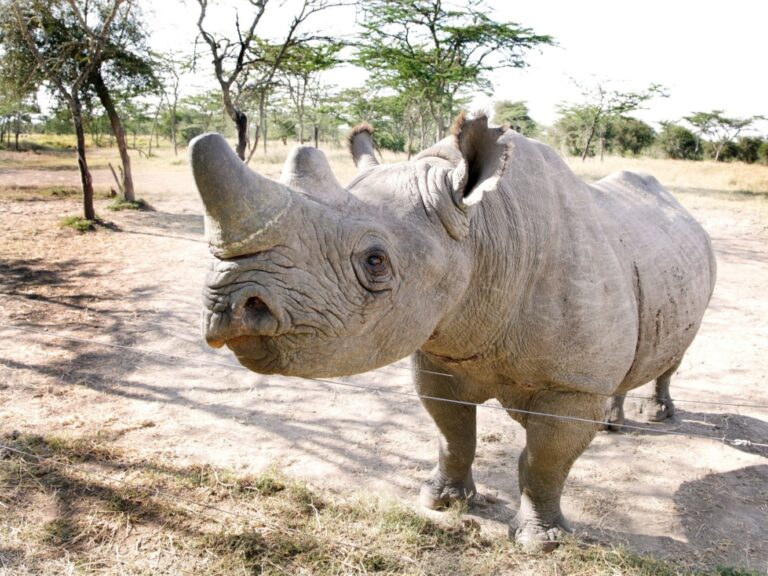
If you’ve ever wondered what the hide of a rhino feels like, wanted to experience a safari at night or dreamed of running (or riding) in the wild, open air of a safari reserve, head to Ol Pejeta Conservancy. The conservancy is in the Laikipia region, at the foothills of Mount Kenya. The sanctuary is the largest in East Africa to host black rhino, as well as the world’s last two remaining white northern rhino. Ol Pejeta is also the only place in Kenya where you can see chimpanzees. Conservation is at its core, with several experiences available for intrepid safari-goers who want to do more than just watch the animals.
Those looking to get their hands dirty can join one of the one or two-week volunteer programmes and learn wildlife research and tracking, veterinary care and more of what goes on behind the scenes. The conservancy has several accommodation options from simple cottages to basic campsites and luxury tented eco-camps.
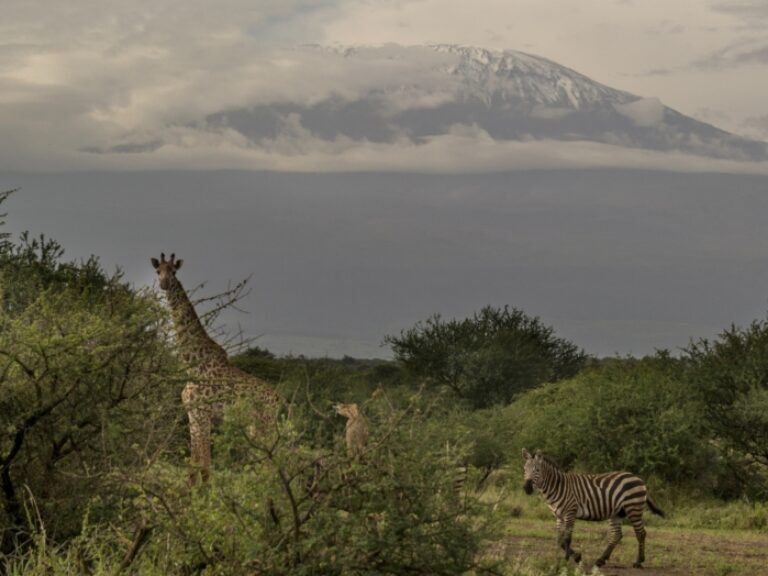
Campi ya Kanzi
If elephants are your thing, you can’t do much better than Amboseli where herds of these magnificent beasts graze in the shadow of the equally magnificent Mt. Kilimanjaro. By far the best place to stay is not in the park itself but 30km away at Campi ya Kanzi in the Kimana Community Wildlife Sanctuary, situated between Amboseli and Chyulu Hills. It’s a very high-end Maasai-run camp that was set up to aid the local community and conservation projects. Its excellent location means you can see wildlife in the conservancy, Amboseli and Chyulu all from one base.
Saruni Rhino Camp
This camp in the Sera Conservancy, just north of the Samburu Reserve in northern Kenya occupies a stunning location in the semi-desert. Their specialism is a thrilling rhino tracking walking safari, probably my favourite place to see rhinos in all Kenya. I spent five days here and by the end still couldn’t decide if coming within ten metres of the steamroller-like rhinos was thrilling or simply terrifying!
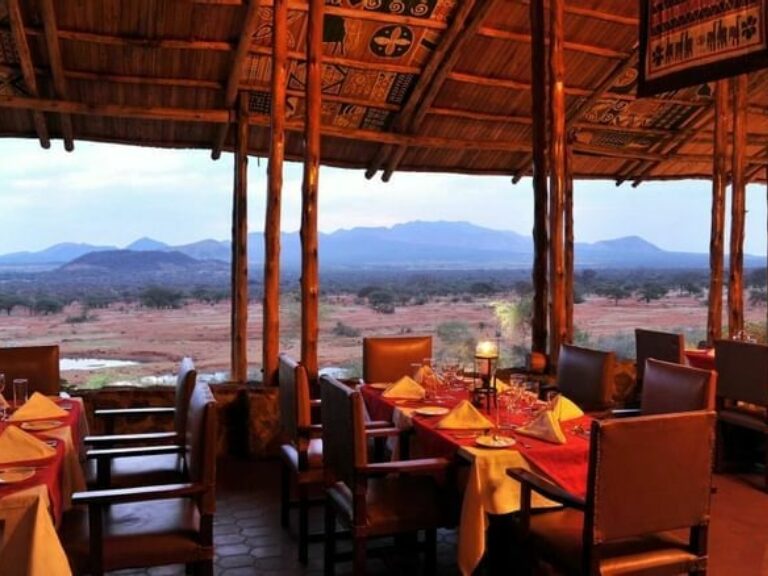
Kilaguni Serena Lodge
In Tsavo West most of the accommodation is fairly expensive (unless you have your own camping gear in which case there are three spartan public campgrounds). A reasonably-priced option is the Kilaguni Serena Lodge – it’s far from a budget offering but the Serena collection is generally pretty good value. If you have the budget to blow, Finch Hattons is the most exclusive camp in the park, with an eye watering price tag to match.
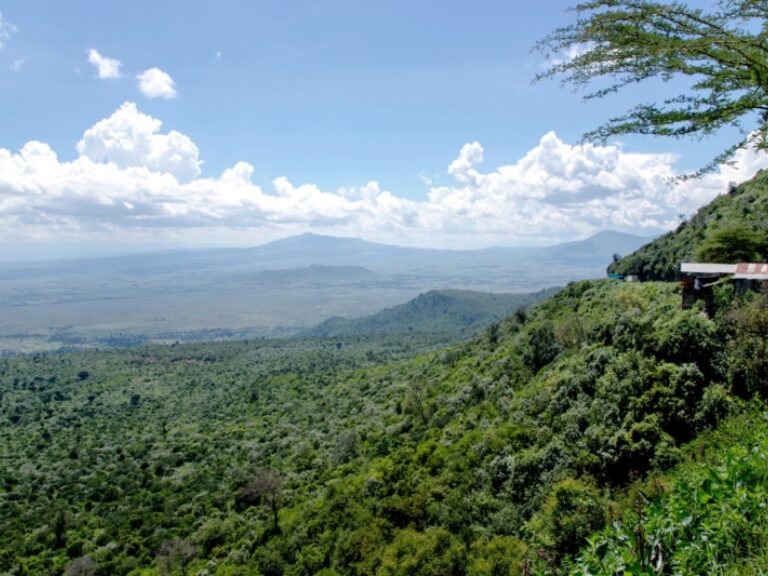
Best walking safari
In my opinion the best way to experience a safari is to ditch the 4X4 and explore on foot. With a good tracker-guide you’ll see all the little things you’d otherwise miss if you’re stuck in a vehicle all day. Walking is often forbidden within state-run national parks but is usually allowed, even encouraged, in conservancies. If I had to pick a favourite place for a walking safari in Kenya it’d be Loita Hills without question. Although not far from the Masai Mara, Loita Hills is barely visited by tourists despite boasting superb and varied scenery, a lovely climate, very different wildlife to the lower savannah plains, and fascinating interactions with very traditional Maasai culture.
Also, while Kenya doesn’t really compete with the multi-day Tanzania trekking scene, some organised trekking may be found here, as well as in the Aberdares and around Mt. Kenya.
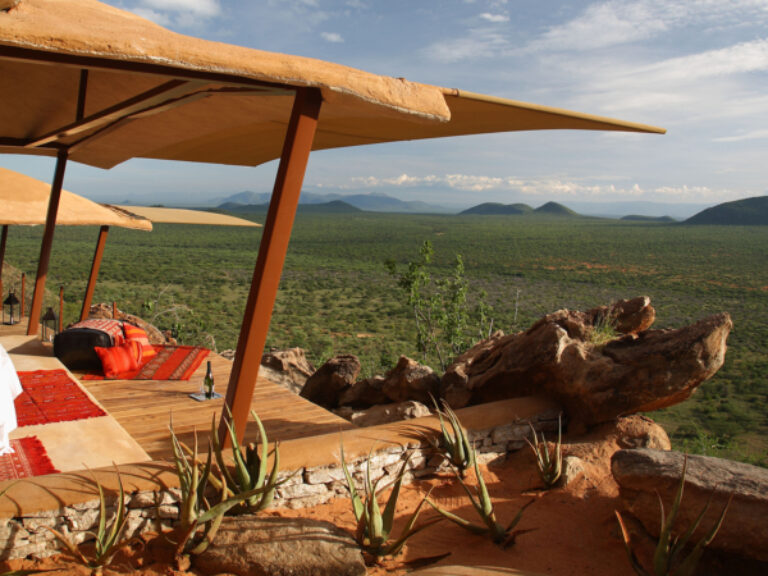
Saruni Samburu
There’s only one lodge within the Kalama conservancy, immediately to the north of Samburu Reserve, and it’s likely going to be one of the most spectacular places you’ll ever stay. Built into, around and onto a huge granite outcrop, Saruni Samburu is almost invisible from a distance but the stunningly turned out rooms offer a cliff side view over what feels like half of northern Kenya.
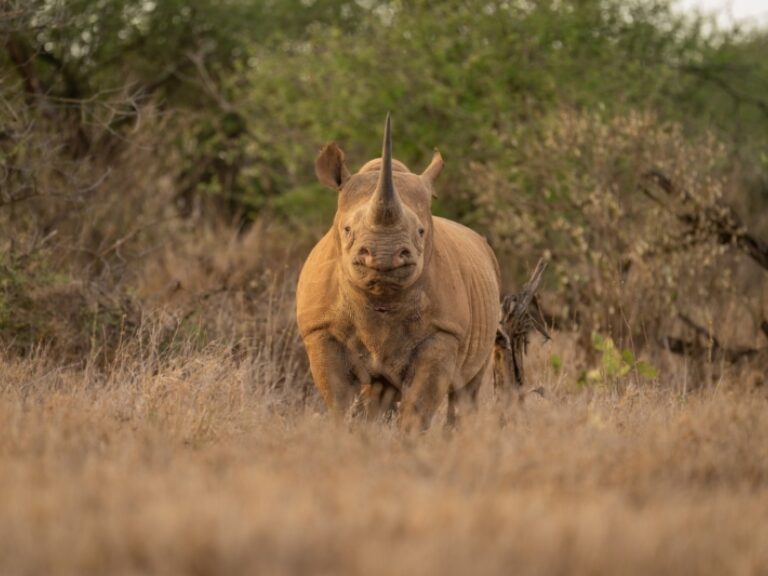
Lewa Conservancy
Lewa, in the Laikipia plateau area, is perhaps the most famous of all Kenya’s conservancies. And for good reason: this is safari to order. Want to see a black rhino? No problem. One of the superb guides will manage to find one. Lions, cheetah, elephant. They are all found here in abundance.
And it’s not just the wildlife that’s outstanding. The landscape is cinematic in its scope. Rolling sun bleached grasslands, table flat acacia trees, meandering rivers and a backdrop of the glinting glaciers of Mt Kenya.
The other great thing about Lewa (and this is common to all the Laikipia area conservancies) is exclusivity. If you’re not a guest of one of the handful of lodges then you can’t go on a safari here.
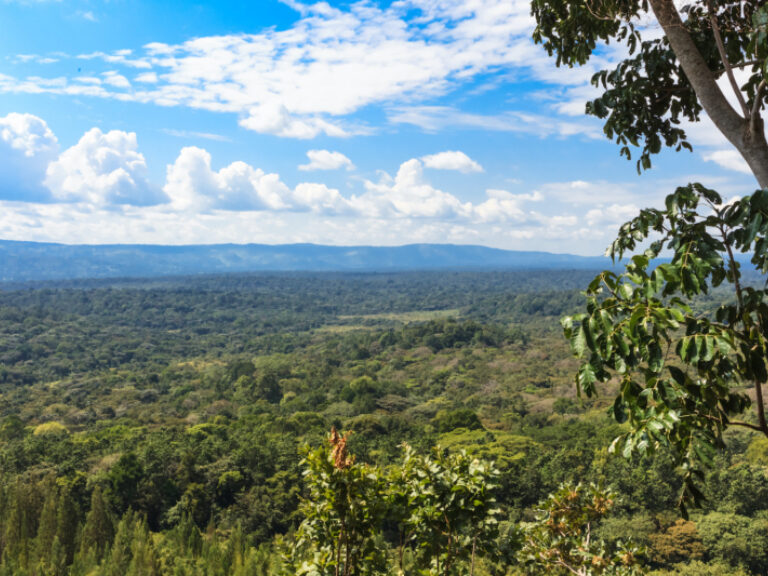
Kenya’s safari hidden gem
Just north of the equator in far western Kenya, is Kakamega Forest — Kenya’s only tropical rainforest. The land here is wet, green and intensely cultivated with a mix of subsistence farming and large tea estates. In amongst all this though are a few pockets of the dense rainforests that once covered large parts of western Kenya.
The Kakamega Forest Reserve is a fine example of this kind of forest and interesting walking safaris here reveal bird and primate life that has more in common with the forests of Uganda and the Congo than anything you’ll see on safari in Kenya. Wander the forest’s network of trails and take in the huge variety of flora and fauna it supports, including hundreds of bird species, some of which are not found anywhere else.
In my opinion, Kakamega is one of the most delightful places in Kenya, but yet hardly any tourists know of its existence. It should be a must visit for any ornithologist or herpetologist. As well as birds, reptiles and primates, I found the visit to the old mine shaft to look for bats especially memorable.
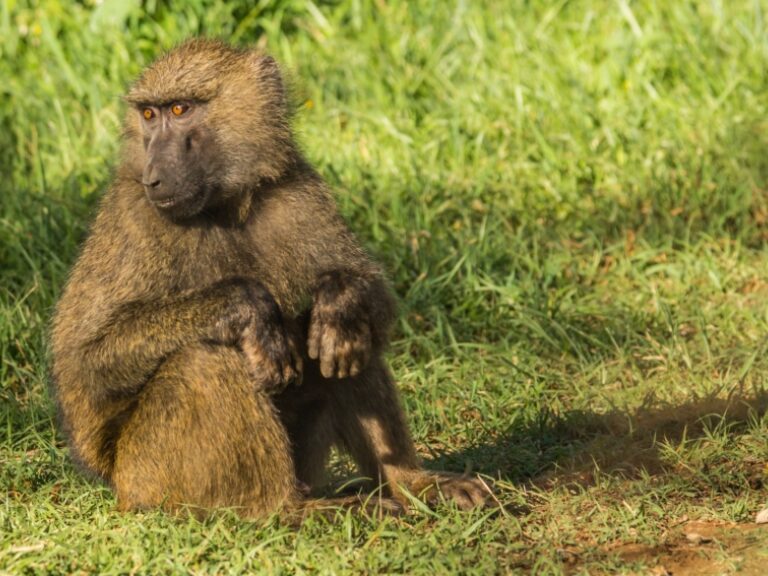
Up close and personal with baboons
Laikipia is known for its rhino conservation, but my own personal highlight in this area wasn’t the rhinos. Rather it was the day I spent with a biologist in very close proximity to around 200 habituated baboons. Having a huge male baboon shove its way past you as it bares its teeth was an experience easily on a par with gorilla and chimpanzee encounters in East Africa. The other nice thing about this particular experience is that it doesn’t involve staying inside an expensive conservancy but rather you are hosted by a grassroots Maasai womens’ project. And hardly anyone – even other Kenyans – know about it!
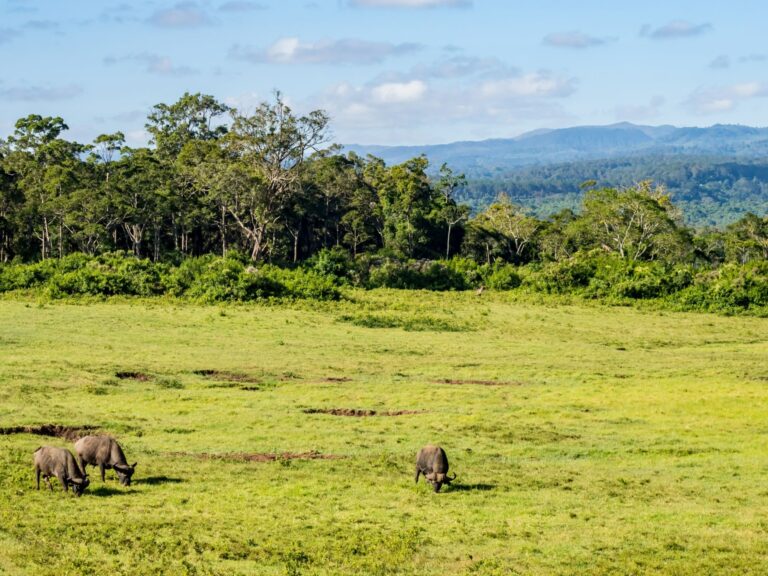
Hiking in Aberdare National Park
A world away from the African safari image of savannah grasses and drooling sunsets, the Aberdares consists of two different ecosystems. A high, cold and often bleak moorland and, below that, dense tangled montane jungle.
The wildlife here is a little different and a little harder to spot. But elephants are very common as are big grumpy buffalo. There are also montane species you won’t see anywhere else including bongo antelope, bush pigs and melanistic leopard and serval.
Unusually among Kenyan national parks, you can also get out of the vehicle here and enjoy long, lonely hikes over the moorlands: I have really enjoyed the sensation of trudging across the bleak moorlands in cold afternoon drizzle while always keeping a beady eye out for roaming buffalo.
The park also has some history. In 1952, a young English lady named Elizabeth was staying at the famed Treetops Lodge here (today’s version is actually a reconstruction of the original) when it was announced that her father had died. And so it was, that on a remote Kenyan mountain slope, that young lady became Queen Elizabeth II. Many years later her eldest grandson, and future king, proposed to Kate Middleton in a small wooden fishing cabin in a spot not so far away from where his grandmother became Queen.
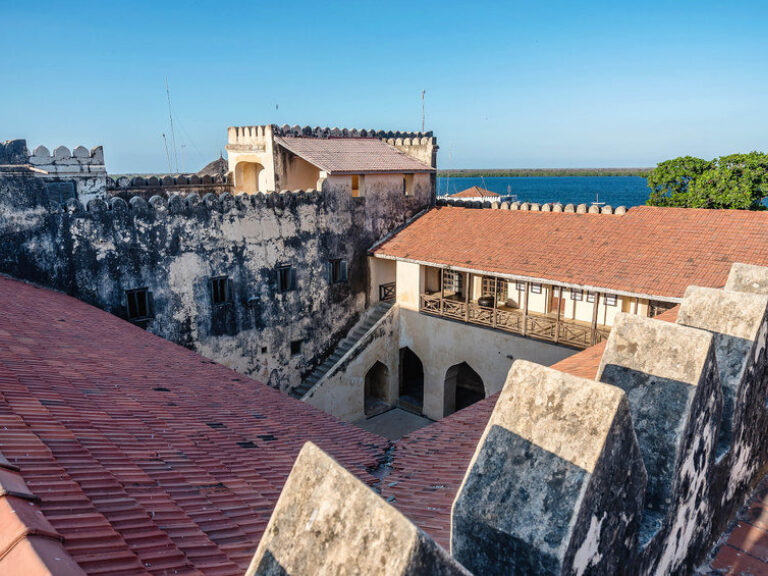
Post-safari beach time
If time allows I highly recommend you find a couple of days to wash away the safari dust on Kenya’s palm-fringed coastline. The country has many beautiful beach destinations but the standard itineraries tend to focus on Diani, south of Mombasa. My vote goes for the underrated Lamu archipelago, and in particular the old Swahili trading town of Lamu, which always leaves me enchanted.
Featured kenya safaris
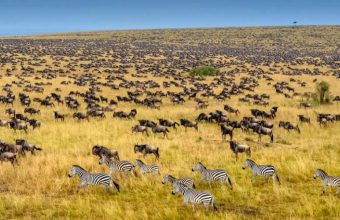
Tanzania and Kenya Safari
The greatest safari on earth, kenya's best safari parks, kenya’s most popular safari parks and lesser-known hidden gems.
In a standard two week safari it’s perfectly possible — in fact I'd highly recommend — to explore three or four different protected areas. Ideally with each one offering a totally different habitat and set of wildlife inhabitants. If I had to pick a favourite, I'd probably vote for Meru National Park, but any of the following could feature on a Kenya safari.
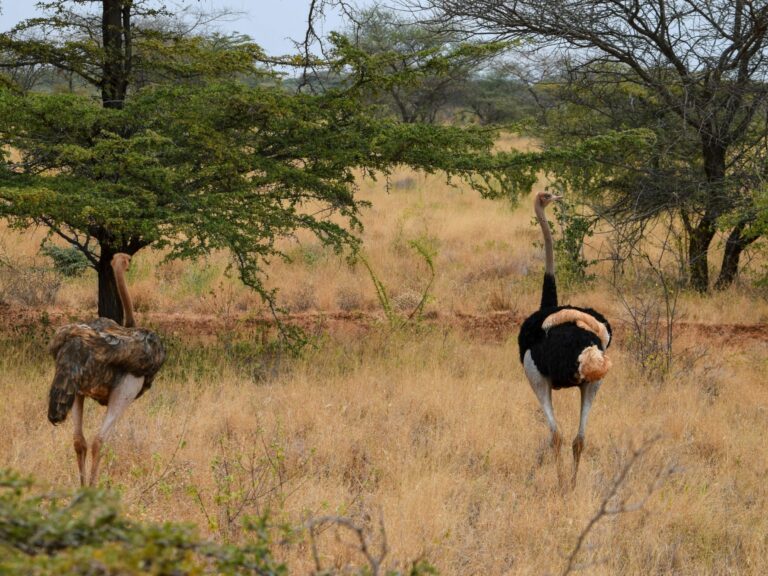
Best for tranquil, crowd-free safaris
Meru, the country’s forgotten national park, is easily one of my favourite of all Kenya’s safari parks. This was once one of the most popular parks in the country but during the 1980s, when Kenya was going through a rough political patch and instability overwhelmed some parts of the country, Meru turned into a hotbed of poaching.
Security and stability have long since returned, yet somehow this park never returned to its former fame. But for those in the know – and that now includes you – Meru National Park is safari gold.

For the classic – if busy – Kenya safari
The very essence of an African safari landscape, the Masai Mara stretches along the Kenya-Tanzania border and forms the northern fringe of the greater Serengeti ecosystem (most of which is in Tanzania ).
This is the part of Kenya in which I have spent the most time (months and months if I added it all up), and was the scene of one of my best ever travel experiences. Some years ago a Maasai friend and I set out on a five week hike that took us across the entire Mara ecosystem. By day we walked alongside the wildlife and Maasai herders. By night we camped out under the stars and slept in traditional Maasai villages. An unforgettable adventure!
This is the place to see large prides of black-manned lions, bellowing elephants, grumpy buffalo and a pick ‘n’ mix box of antelope and gazelles. And that’s before we even touch on the smaller creatures and huge array of birds. But, above and beyond all else, the Mara is renowned for the spectacular wildebeest migration .
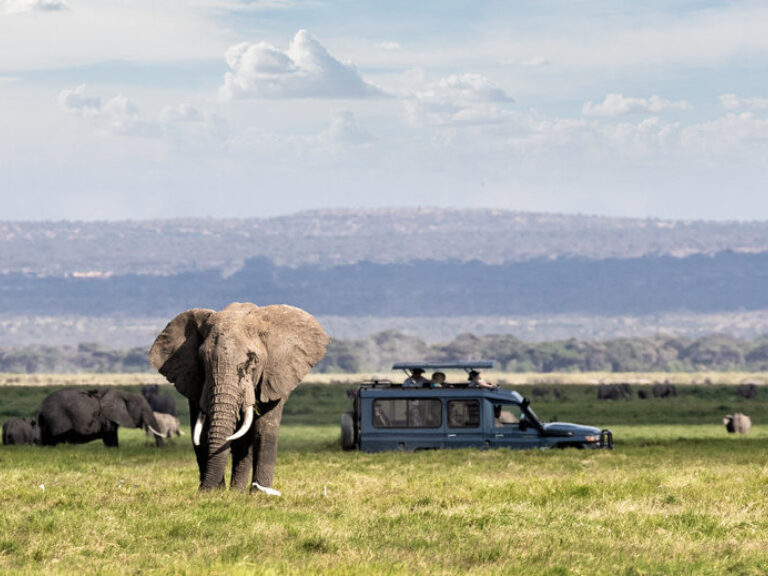
For elephants & Kilimanjaro views
Amboseli National Park is the postcard park of Kenya. This is where those photographs are taken of elephants with a backdrop of the (fast melting!) glaciers of Mt Kilimanjaro. I have spent many dreamy mornings parked under an acacia tree, a thermos of coffee in hand watching the rising sun tinge the snows of Kilimanjaro a pinky-red.
The elephants and the scenery are the real highlights of this park. In dry periods they flock here from miles around to quench their thirst in the swamps and pools that splash the dusty landscape in greens.
Another big reason to visit Amboseli is the chance to see conservation in action in the conservancies and other environmental and community projects surrounding the park.
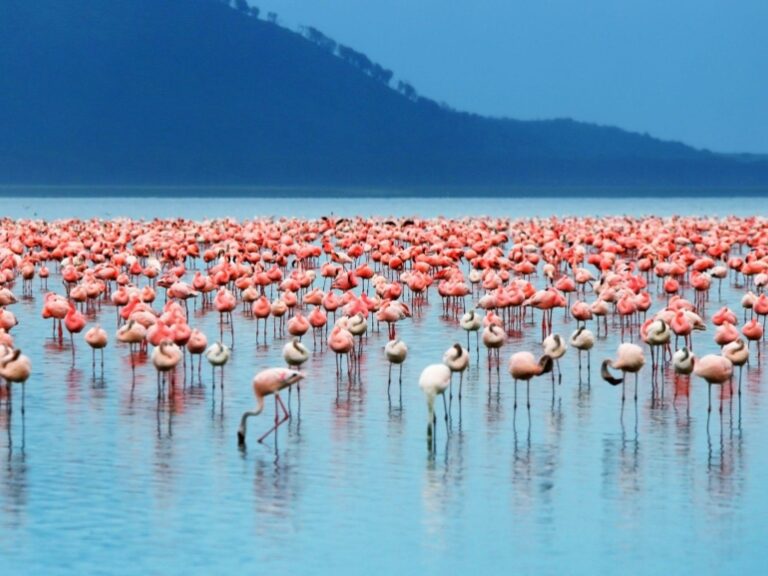
For wetland safari & birdwatching
Just 5 kilometres from the big city of Nakaru, Lake Nakuru National Park’s accessibility makes it one of the most popular Kenya safari hotspots. It’s centred on the large Rift Valley soda lake of the same name, but also encompasses fringing grasslands, acacia woodlands and rocky escarpments.
The park is best known for its sometimes huge flocks of flamingos and a large rhino population. Back in the 1990’s, Lake Nakuru was the first place where I saw a really huge flock of flamingos. I’d seen the odd handful before, but the thousands upon thousands I saw here on that day sticks in my memory. The smell (ah yes the smell!), the noise, and of course the searing pink colours; It was one of the moments that made me fall in love with Kenya.
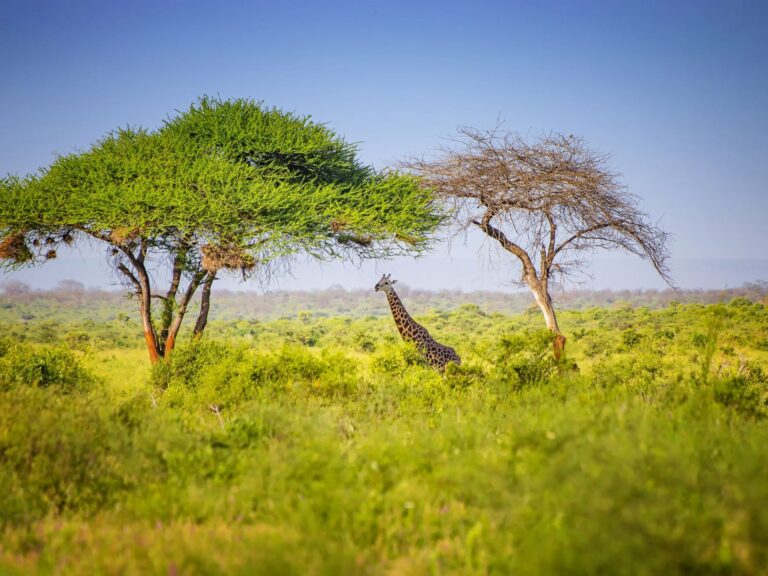
Best for wide open spaces
Combined, Tsavo East and West National Parks cover an enormous swathe of acacia scrub Kenyan wilderness. Tsavo West alone (the bigger of the two parks) covers an area greater in size than Wales, or two and half times the size of Yellowstone National Park.
The two parks are separated from each other by the Nairobi-Mombasa highway and are easy to reach from either city.
Despite being directly adjacent, the two parks are radically different from one another with the green hills of Tsavo East a marked contrast to the red soil and volcanic landscapes of Tsavo West. Because of their diversity and sheer size, I strongly recommend you devote enough time to the parks if you’re going to visit them. The rushed two-day safaris from Mombasa (or Nairobi) simply don’t allow enough time to get much out of a visit.

For world-leading conservation
The Laikipia plateau area in central Kenya is one of the most exciting places in African conservation. This isn’t a single national park or reserve, but rather a network of interlocking private and community-run conservancies where people, livestock and wildlife live together to the benefit of all.
Laikipia hosts all the classic East African safari mammals but is best known for its rhinos, including the critically endangered northern white rhino, only two of which are left alive. Both are female and so, tragically, this is a species awaiting extinction. They can be seen at the Ol Pejeta conservancy.
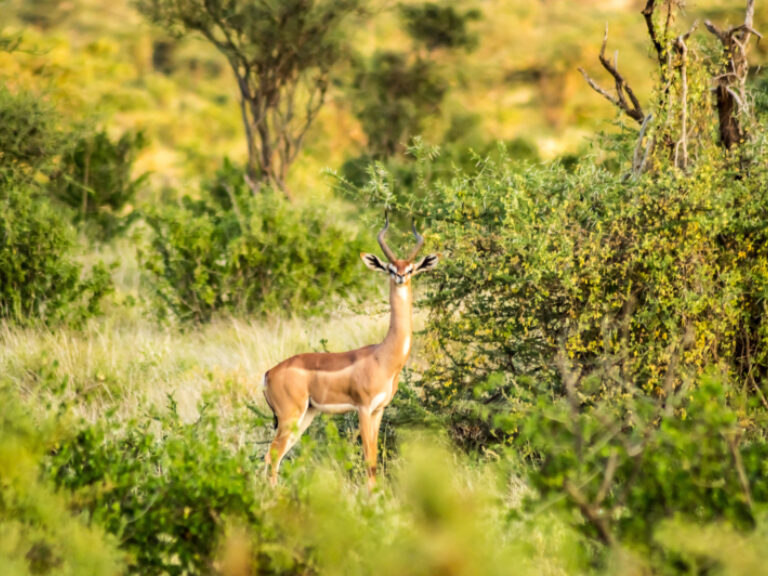
Kenya’s remote far north
Samburu, Buffalo Springs and Shaba National Reserves are three interconnected reserves on the edge of northern Kenya’s vast semi-desert wilderness.
Far removed from mainstream Kenyan life, these northern regions have a wild reputation. The landscape is harsh with endless sunburnt plains of acacia thornbush out of which rise the occasional fertile and densely forested mountain peaks, ranges, table lands and volcanic plugs.
Elephants, in particular, are the main event here. There are large herds who can migrate huge distances in search of water.
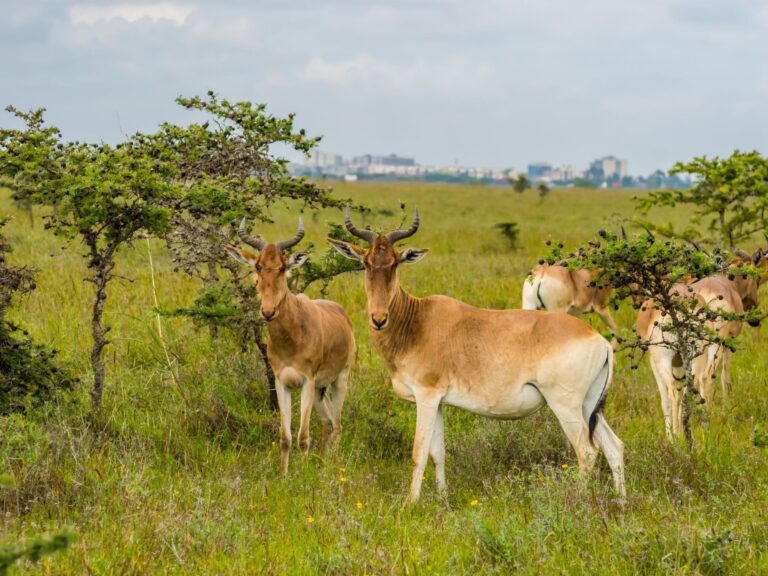
Safari in the big city
While most capital cities have their collection of ornate parks filled with neatly cut lawns, manicured flower beds and perhaps a boating lake, Nairobi has gone one step further.
Its biggest ‘park’ is in fact a 117 square kilometre swathe of undulating savannah grassland and acacia woodland. And while it doesn’t have a boating lake, it does have lions. And buffalo. And rhinos. All of which means that it’s probably not such a sensible place for an after work stroll.
It’s a fabulous safari destination but is woefully overlooked by international visitors to Kenya. This is a shame, because Nairobi National Park is an excellent safari location in its own right. I have been many times, often just for a quick half-day drive from the city. This was the place I first witnessed the thrill of a hunt: a cheetah racing, but failing, to grab dinner for her cubs.

Kenya safaris: Need to know
Everything you wish you'd known before you booked.
My first Kenya safari was in 1994 and I’ve been coming back pretty much every year since. Here’s what I’ve learned over the years about the best way to plan and book a safari in Kenya.
Mix up your itinerary
My single most important tip for Kenya safari first-timers is to avoid the mistake of non-stop game drives. Standard tour operator itineraries shuttle you from park to park with a gruelling schedule of game drives. Yes, this is the best way of seeing large mammals up close, but the bumpy tracks, early starts and long hours quickly exhaust even the most ardent wildlife-watcher. And there is so much more to safari in Kenya that you’ll miss from racing around in a jeep. Break it up. Look for operators who offer bush walks, village visits, and conservation projects. Or simply take an afternoon or two to sit back under a tree enjoying the sights, sounds and smells.
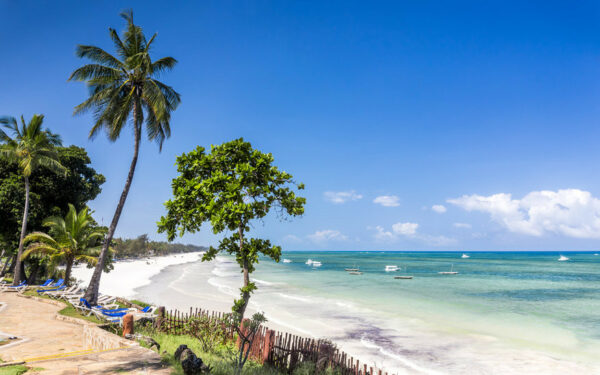
Many visitors to Kenya devote their entire trip to going on safari…
Don’t miss Kenya’s many hidden gems
Most standardised Kenya safari itineraries reduce the entire country to the blockbuster highlights: the Mara, Amboseli, Lake Nakuru… maybe Tsavo and Samburu if they’re feeling adventurous. This does a great disservice to the country’s true diversity. There’s so much more to a Kenya safari than racing around the savannah chasing the big five and I’d strongly advise you find time to visit some of Kenya’s numerous hidden gems.
For instance, out in the far west is Kakamega Forest Reserve which has more in common with the rainforests of Uganda and the Congo than the classic Kenya landscape. In my opinion this is one of the most delightful places in Kenya, yet hardly any tourists know of its existence.
Another personal favourite that’s a world away from the classic Kenya savannah is Aberdare National Park where dense tangled montane jungle gives way to a high, cold and often bleak moorland. Unusually among Kenyan national parks, you can also get out of the vehicle here and enjoy long, lonely hikes over the moorlands.
But that’s not it: Saiwa Swamp, the Chyulu Hills, Hells Gate, Ruma National Park, and many more that rarely feature on the mainstream Kenya safari circuit but are usually accessible on a self-drive safari, or with more specialist safari operators.
Get out of the safari bubble
Many safari goers, especially those on a high end tour just bounce from one heavenly safari camp to another. Sure, you live the Hollywood Africa dream but you’ve not really experienced real Kenya. Instead, hop on a bus and head out to one of the numerous small market towns where most Kenyans live. You’ll experience a totally different side of the country and it’s one that will stay with you long after the sundowner safari drinks fade from memory.
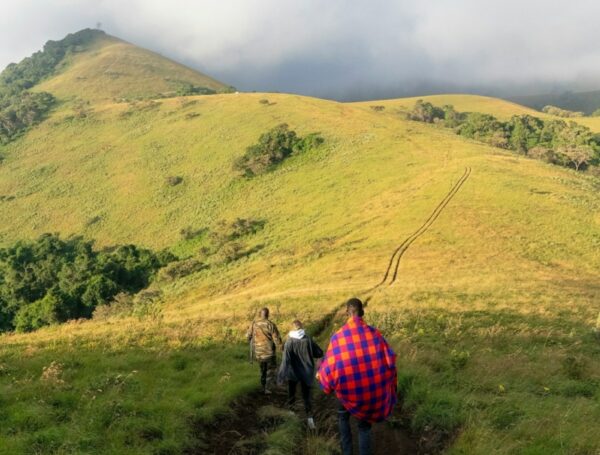
Kenya off the beaten track
The parks and reserves covered in my Kenya safari guide are only the best-known and most visited of the country's numerous protected and other natural areas…
Stay in at least one conservancy
National parks, reserves and conservancies are mentioned a lot in this guide, but just what is the difference and why does it matter?
A national park or reserve is a government or local council run protected area. Most of the best-known protected areas in Kenya fall into this category.
These areas are run solely for the benefit of wildlife and tourism, sometimes at the expense of local people. Tourism in these areas creates jobs, but locals are often forbidden from entering these protected areas other than for work reasons and communities were often (but not always) removed from their land when the parks and reserves were created. Corruption can be a problem with the money generated by these parks not always going where it should.
A conservancy is a different affair. A conservancy is normally located on either communal land owned by the community as a whole or on private ranch land and has no official government status. On a community conservancy the tourism stakeholders (i.e. the safari camps) lease the land from the local communities on the condition that the land is managed in a manner that is of benefit to both people and animals. The (normally very high) fees you pay to stay in a conservancy go toward paying the land leasing fees as well as various community and environmental projects.
Other conservancies may be located on private ranchland, in which case they have to make enough money for the landowner to financially justify turning his land over to wildlife conservation over cattle ranching.
In other words, a conservancy is run for the benefit of both wildlife conservation, tourism and the needs of local communities (in many cases local people are allowed to continue to graze their cattle on a conservancy but in a controlled and sustainable manner).
All of this means that staying in a conservancy is not just a great safari experience but it’s also very good news for conservation!
Do a homestay
For a cultural experience you’ll never forget, try spending a night at a Maasai homestay near the Masai Mara. Finding authentic, community-run homestays can be a bit of a minefield. I can recommend Sekenani Maasai Development Project (Semadep) but there are others – make sure you book with a community owned and operated outfit, and check reviews carefully.
Caution needed: "Human safaris"
In my opinion, one of the big problems with the safari industry is the way it prioritises seeing wildlife over having meaningful connections with local people. In fact, other than being served by their guides, drivers and camp employees, a typical safari-goer might not have any interaction with a local at all. To me, this is the exact opposite of how it should be done! In my experience, a good trip to Kenya isn't just about seeing wildlife: it should put intimate, authentic interactions with local people at the heart of the whole experience. You can make genuine connections and real friendships as you sit around, sharing stories, laughing and learning from each other.
On the other hand, mainstream Kenya safaris are often sold with "village tour" or even "slum tour" add-ons. These "goldfish bowl safaris" as I call them are unethical and nothing short of exploitation. They violate the privacy, integrity and dignity of local communities and undermine sustainable development by perpetuating a myth of backward, poverty-stricken people. The traveller thinks they're doing the right thing by getting some cultural interaction, but in reality it's deeply damaging. I strongly encourage visitors to avoid anything that feels contrived, and look for trips that put real people at the heart of the experience, rather than an afterthought.
How to plan & book a Kenya safari
There are three broad categories of safaris in Kenya.
The first and easiest option is to book a week(s)-long, multi-stop itinerary through a tour operator, either locally-based or international. This provides the most hand-holding and support for cautious visitors, plus more protection should things go wrong. The potential downside is getting shunted onto one of the more formulaic itineraries and simply following the crowds around the most popular parks. If you book a full tour with an operator, try to find a genuine specialist and ask about visiting some of the lesser-known locations mentioned in this guide.
Secondly you can simply show up and book a safari tour once in-country from the hundreds of operators in Nairobi. There’s nothing inherently wrong with doing it this way but I strongly advise you don’t just book something in the street. Do your homework first and find a reputable, responsible operator. Things to double check include whether park entry fees are included in the price, vehicle type (avoid cramped minibuses), and accommodation type.
Thirdly, and probably my recommendation for all but the most cautious of visitors, is to book the accommodation yourself, rent a car (or a car plus driver), and head out solo. You can take your own camping gear or book into lodges or camps (booking ahead is essential!), or mix camping with more comfortable nights in lodges. I strongly advise renting a vehicle plus driver. It’s often cheaper plus you get an unofficial local guide who knows the ropes. A good driver will become a cultural and language translator, wildlife guide, fixer, and general guardian angel.
Aim for shoulder season if possible
High season in Kenya is the peak summer months of July to September, before the rains begin. In my experience the best time to visit – especially in the busier parks – is either June before the crowds arrive or September-October as the crowds are thinning out, wildlife viewing is excellent and temperatures are ideal.
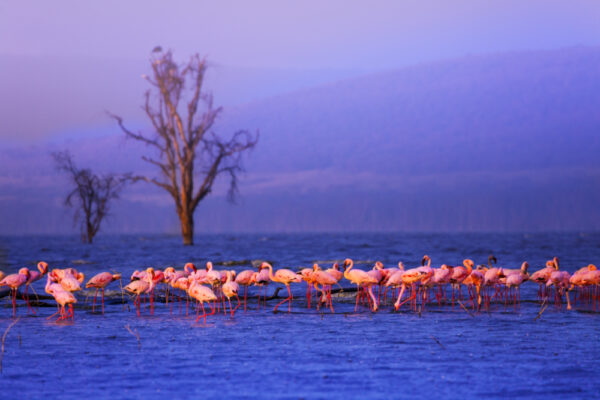
The best time to visit Kenya for safari
January & FebruaryThis is a hot and dry period…
Be prepared to splash out!
There are almost as many different ways of doing a safari as there are stripes on a zebra and how, when and where you safari makes a huge difference to what you pay. Expect to pay anything from $150 to $1,000+ per person per day.
You can find very low budget two or three day safaris to the Mara from around $250 all in, but these are generally rushed, crowded and uncomfortable. If you’re looking to shave off some costs without compromising on the experience, consider doing a DIY camping safari with your own vehicle and driver.
My other big Keny safari tip is to spend as much as your budget allows on fewer nights in better conservancies and camps. Packing more into fewer days gives you much greater bang for your buck.

Kenya safari costs
For a multi-day, mid-range safari visiting some of the big name parks and reserves then you’re looking at around USD $300-600 per person, per day…
Kenya safari FAQs
Your questions, our expert answers, is it safe / a good idea to rent a car in kenya and drive yourself around, or is it better to join a tour.
Yes, it's perfectly easy to do a self-drive Kenya safari . When you ask if it's "safe" that depends a little on what you mean. If you mean are there bandits, car jackings, dangers from wildlife, etc, then no you are quite safe. Instead the danger is from other drivers, as the driving conditions can be a little 'hectic' in places and accidents are common.
I'd recommend hiring a car with a driver, which can be a cheaper and, in my opinion, a much better option. A good driver will know the lay of the land, the driving conditions, best places to stop for lunch, etc. And they are often knowledgeable of the wildlife. A good driver will be both your driver and guide, and probably become your friend!
Almost any tour company in Nairobi or Mombasa can organise a private vehicle with a driver. Standards and prices vary hugely, so explain to the tour company exactly where you want to go and get in writing exactly what is and isn't included. Pay particular attention as to whether fuel, and the drivers food and accommodation is included in the rates. Also make sure you're booking the right vehicle: a 4WD may be needed for more remote areas.
Where’s the best place to see the big five in Kenya?
Seeing all the big five (lion, leopard, elephant, buffalo & rhino) in one park is hard. Only Lewa and some of the conservancies in Laikipia can honestly claim to offer easy sightings of all five. But, who cares! This fixation on racing around to tick off just five species is an anachronism from colonial-era big game hunting days. There’s so much more to Kenya’s wildlife and the modern safari experience.
We're visiting the Masai Mara but would like to visit another area on safari in Kenya. Can you recommend anywhere very different to the Masai Mara to see different wildlife and landscapes?
The most common combinations for a short add-on to the Masai Mara are Amboseli , Laikipia or the Samburu area.
For your requirements of a different habitat and wildlife then without doubt I would suggest Samburu National Reserve. This is a much drier and hotter area than the Mara with different vegetation and animals. And, even the animals you might have seen in the Mara are different up here with different species of giraffe, zebra and ostrich all present (and in my opinion all more beautiful than the kinds in the Mara). The park is also superb for elephants.
Samburu, though still popular, is notably quieter than the Mara and, once away from the river, it's easy to feel you have the place all to yourself (and especially if you go into the co-joined Buffalo Springs and Shaba reserves). Depending on when you are there you will find direct flights from the Mara, but otherwise will have to go via Nairobi. If you're driving it's a long way – a 10 hour non-stop drive, so flying is the better option.
Would you recommend staying at Elephant Bedroom Camp in Samburu Reserve, or at Sarara Camp in Namyunak Conservancy?
The quantity and ease of seeing the wildlife is better in Samburu Reserve than in the neighbouring Namyunak Conservancy (because the wildlife is drawn to the river running through the reserve). But there's not a huge difference in habitats or species between the two.
Elephant Bedroom Camp, in Samburu, is a fabulous, small camp. You'll see a lot of elephants and the owners are some of the worlds foremost elephant experts.
In Namyunak Conservancy, Sarara Camp is one of the most exclusive – yet low-key – camps in Kenya. There's slightly less wildlife than in the reserve but it's very close to the reserve and safaris from Sarara often enter the reserve.
The bonus with Sarara is exclusivity. You and the other camp guests will have the entire place to yourself meaning no crowding around animals (though that's rarely a problem in Samburu).
Unlike in the reserve itself you can do walking safaris in the conservancy and there will be more interaction with local people. The final plus is that by staying on a conservancy you will be actively helping to fund private/community conservation initiatives, which isn't always the case when staying only in a reserve or national park.
Overall then, I would opt for Sarara Camp, but I suspect it does cost more, so it might come down to budget!
We are travelling with a large group of 5 families with 3-4 kids per family. What are the best budget friendly safaris in Kenya in July?
If most of the children in your group are very young, your options are fairly limited as the reality is that a longer, multi-day safari can be a bit much with very young kids. I first did a safari with my kids when they were five and two years old and although it was good I probably wouldn't do it again! Past the age of about eight or nine the safari experience gets much easier, as they'll will tolerate sitting in a jeep on a bumpy road for longer.
Do be aware that some safari camps don't accept children below the age of 12. These are normally the unfenced camps and it's done for safety reasons.
You will also need to keep in mind that you will either need several safari jeeps and to travel in convoy or a bus (and these aren't always allowed in some parks). Because you will be travelling with so many children I would suggest small safari camps which you can book out for your group alone. Some of these are more child friendly than others. Some possibiltles that I believe might work well for your group are: Maji Moto Eco Camp, Loita Hills Basecamp, and if you are interested in a Maasai homestay style experience then I'd suggest Semadep Camp, who can arrange homestays around the Masai Mara.
As for specific parks and reserves the Masai Mara area is good because there's a lot of animals to see everywhere you look which keeps children interested. Also good are Nairobi and Narok national parks because of easy access and good roads. Lake Naivasha is good for families too.
It would be easy to combine all these places into a 10 day safari and then you could maybe finish up on the beach (Lamu and Watamu are both superb for families).
Can you recommend any family-friendly camps/lodges in the Masai Mara?
I would suggest rather than staying within Masai Mara proper, stay in one of the conservancies that now fringe the Mara.
In the most basic of terms these are like private, community-run wildlife reserves. Conservancy operators lease the land from local people and each local family receives a guaranteed monthly payment. The conservancy also provides employment and sets up development projects. People continue to graze their cattle but in a more controlled manner. And in return, fences are removed and the wildlife encouraged to return to the lands they were once driven out of. The conservancies have been a great success both for wildlife and local people. And, for tourists, they offer a very exclusive experience and the world's finest safaris.
Each conservancy has only a handful of very discreet high end camps and only guests of those camps can go on a safari in the conservancy, which means crowds of vehicles around a lion are non-existent.
The conservancies also allow activities not permitted within the reserve such as walking (highly recommended), bush camping, night safaris, etc. This makes them ideal for kids because it breaks up the routine and allows a little more freedom.
The safari vehicles and guides used in the conservancies are absolutely the best in the game and the wildlife populations are the equal of the actual reserve. However, there's a catch (of course...), conservation like this doesn't come cheap. All of the conservancies are superb but some names are Naboisho, Mara North and Nashulai Maasai Conservancy (this last one being slightly cheaper than the others and lots of focus on meeting local people). As for actual camps you cannot go wrong with any of them. All the conservancy camps are superb. I'm a big fan of the Basecamp offerings, Off-Beat and Kicheche. All are a little less extravagant than some of the other camps.
If you want to only visit the reserve and not a conservancy then I suggest either Basecamp Mara, Oldarpoi or you could go for a Maasai homestay in Sekenani village. Expect basic but perfectly comfortable rooms but an amazing experience. Your kids would really enjoy this.
Is February a good time to visit the Masai Mara, or would June-July be better? What would be the differences?
February is a very good time for safari in the Masai Mara , but also very different to the experience in June and July.
It's hotter and drier in February and generally there are fewer other tourists. There will still be plenty of zebra and wildebeest around but these are the non-migrating resident herds, so they don't form the massive iconic herds that you might see on TV.
July is good because the migrant wildebeest are all normally in the Mara by then, but its also absolute peak high season so can be busy and expensive. June is perhaps my overall favourite month. Everything is green after the rains and it's nice and cool with far fewer tourists than July, but the first migrant wildebeest might start to arrive (it all depends on rains and the state of the grass).
In short, all three months are excellent but each is different so it might be best to go with whatever just suits your timings better.
I will be in Kenya in early March and am looking for a five day safari for wildlife photography and birdwatching. Where would you recommend for me noting it is the start of the rainy season?
Early March is still a bit early for the rainy season so you might just get the odd thunderstorm. If birds are your real interest and you only have five days then probably the easiest is to go down to the Masai Mara via the Rift Valley lakes of Naivasha and Elementia or Nakuru. This would give you a good range of avian habitats and species in a short space of time. Don't forget as well that Nairobi itself has some excellent birding in the various forests and parklands in and around the city. Plus of course, there's the superb Nairobi National Park where you will see a lot of wildlife and birds.
We can't travel during the migration river crossings, are there other impressive spectacles at other times of year?
Yes! I think calving season during the wildebeest migration is just as spectacular as the more famous river crossing period.
This period runs from December to March around the Ndutu Plains to the south of Serengeti. During this time the wildebeest and zebra stampede over the plains preparing to give birth to thousands of calves. At the same time the big cats are on the lookout for an easy snack. With vast numbers of animals, their sounds and smells, all of the little calves, and the big cats on the lookout... it's theatre on an epic scale and you cannot be disappointed. And the extra benefit is that it's a much shorter drive here than to see the river crossings.
Robbin Meulemans
In this guide:, typical prices for a safari in kenya, when to go on safari in kenya, things to do in kenya other than safari, best safari camps and lodges in the masai mara, about the author.
Stuart is an award-winning travel journalist covering safari, trekking and conservation in Africa for the Lonely Planet, Rough Guides, BBC, Bradt Travel Guides, amongst many others. He is the author of Walking With The Maasai , a journey through some of Kenya's lesser-visited Maasai lands.
Featured tours

Kenya & Tanzania East African Adventure
21 day small group tour, other guides you might like, south africa safari, an expert guide to safaris in south africa.
Anthony Ham
Wildebeest migration safaris, an essential guide to planning a migration safari in tanzania and kenya.
Hans Cosmas Ngoteya
Safari in zambia, an expert guide to zambia's best safari parks, camps & lodges.
Sarah Kingdom
Safari in tanzania, an expert guide to tanzania's best safari parks & camps, safari in botswana, an expert guide to botswana's best safari reserves, camps and experiences, where and how to see the big 5 on safari in africa, safari in africa, our travel writers' top africa safari picks, zimbabwe safaris, an expert guide to the best safari camps in zimbabwe, chimpanzee trekking, an expert guide to seeing chimpanzees in the wild.
Philip Briggs
Namibia safari, an expert guide to the best safaris in namibia.
Melanie van Zyl
Featured tours view all.
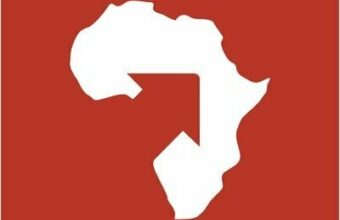
Why Horizon Guides?

Impartial travel guides
Our guides are written by the leading experts in their destinations. We never take payment for positive coverage so you can count on us for impartial travel advice.
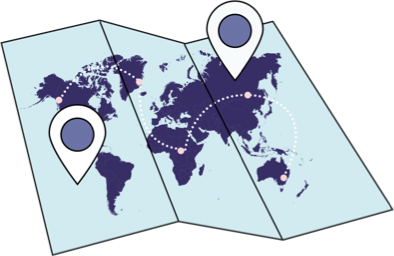
Expert itineraries
Suggested itineraries and routes to help you scratch beneath the surface, avoid the tourist traps, and plan an authentic, responsible and enjoyable journey.

Specialist advice
Get friendly, expert travel advice and custom itineraries from some of the world's best tour operators, with no spam, pressure or commitment to book.
Our guides are 100% impartial and are written by independent, professional travel journalists. We make money by charging carefully-screened travel companies to list their business on our website. Our advertisers have no influence on our editorial content and we never accept payment for positive coverage.
Read more about how we work and what we believe in here .
- Travel guides
- Work with us
Sitemap , Privacy Copyright © 2024 Horizon Guides

IMAGES
VIDEO
COMMENTS
The Kenya Professional Safari Guides Association is an independent non-profit making body created for the certification of Safari Driver Guides, Lodge Naturalists and other individuals within the Tourism Sector. The KPSGA's aim is to provide an effective, inexpensive and voluntary certification process giving awards of Bronze, Silver and Gold ...
Safari Guide Kenya; For those specialising in Kenya's distinctive safari environment, our Safari Guide Kenya course offers comprehensive training tailored to Kenya's unique safari settings, equipping guides with the knowledge and skills needed to guide in this region. Trails Guide - in the Okavango Delta
2 November 2024 — 29 November 2024. Location. The Masai Mara. EcoTraining's signature Kenya Safari Guide course consists of 28 adventure packed days living in and learning about nature and ecology from our wilderness camps in Kenya You will take part in a variety of learning activities whilst driving and walking in some of the most stunning ...
The Kenya Safari Guide course will bring you nearer to this goal. Within 28 days you will learn the essentials for coping in Africa's wilderness. During various theoretical and practical learning units you will deal with Kenya's nature and explore the African savanna. Your educational wilderness course takes place either in beautiful Mara ...
This course is designed to give you the practical experience you need to make your dreams of becoming a safari guide in Kenya a reality. With many hours spent each day in the field, you'll have ample opportunities to hone the skills you need to succeed as a safari guide. Our experienced instructors will teach you everything you need to know ...
The EcoTraining Safari Guide Course, established in 1993, has been a trailblazer in safari guide training. It has continuously evolved as the first course of its kind, setting high standards for safari guide education. This course is perfect for those with a deep love for nature and a desire to understand the African wilderness comprehensively.
Here are 14 reasons why you should consider taking a safari guide course in Kenya 's magical Maasai Mara - one of Africa 's top wildlife destinations! 1. (Re)Connect to nature: quality time in the bush. Spending quality time in the African bush was a soul-enriching experience.
Founded in 1993, Ecotraining has become the leading guide training school in Southern Africa. With Ecotraining, Andreas instructs on a variety of courses in Southern Africa, from one-week 'EcoQuests' to 55-day FGASA Level 1 and 28-day FGASA Trails Guide courses. As Mbweha's Managing Director, Andreas now intends to grow the Ecotraining ...
Short Course EcoQuest Course in Kenya (7 Days / 14 Days) "An in-depth bush learning experience in Kenya - 7 or 14 nights" Enquire Now. Price 2,385 USD * (See ... custom courses and on-site professional guide training at safari lodges. All courses are run directly from EcoTraining's unfenced bush camps in prime wilderness areas across South ...
7 to 14 days From 2,150 €. Guide Course Kenya. Become a Safari Guide in Kenya's wilderness and gain a deeper knowledge of your natural environment. 28 days From 8,850 €. Guide Course Kenya. Travel to Kenya and enjoy a 55-day Field Guide Level 1 training amidst the fascinating Masai Mara wilderness. 55 days From 9,800 €.
A Kenya Professional Safari Guide in order to sit for an exam: 1) For the Bronze category, need to have trained in any tourism related course or have experience in the field or should be working in the tourism industry 2) For the Silver category, must have three (3) additional years in the field, at Bronze-Level. ...
This EcoQuest safari course in the midst of Kenya's Masai Mara is an ideal option for all adventurers eager to acquire new knowledge. Learn more ... Become a Safari Guide in Kenya's wilderness and gain a deeper knowledge of your natural environment . 28 days From 8,850 € Guide Course Southern Africa ...
55 Day Field Guide Course is the first step towards becoming a qualified safari guide in South Africa. Get in touch for more details! ... are conducted in unfenced bush camps in some of the most spectacular wilderness areas across South Africa, Botswana, Kenya, and Zimbabwe. This immersive environment provides students with a unique, hands-on ...
Kenya. Duration. 55 Nights. Dates. 26 Feb 2024 — 20 Apr 2024. 8 Sep 2024 — 1 Nov 2024. Location. The Masai Mara. Over the duration of fifty five days, participants on this course will traverse not one, not two but three different conservancies encompassing over 16,000 hectares, providing students access to a diverse range of biomes and ...
Courses like the 35-day practical field guide have an additional requirement for the prior completion of a FGASA Field Guide theory component. Luckily, you'll get help in completing this. For the shortest six-day course, you have to be 18 years and older and able to walk 12 km daily while carrying your backpack and supplies.
The natural landscape of South Africa, Botswana and Kenya forms the spectacular backdrop for this unique learning experience. The four-week safari guide course provides basic information about the African wilderness and gives you an opportunity to take part in small projects. At the end of your course you'll receive a certificate.
He was an amazing safari guide, taught us alot about Maasai mara and what it has to offer, the animals and its exotic local culture. We all loved his company and kept us entertained the entire time. Osprey Safaris Kenya is an organization that's very professional and would recommend 100% - 6/16/2021
The 28 day Apprentice Trails Guide Course is the first step to becoming a walking safari guide in South Africa. ... custom courses and on-site professional guide training at safari lodges. All courses are run directly from EcoTraining's unfenced bush camps in prime wilderness areas across South Africa, Botswana, Kenya and Zimbabwe. To date ...
Wildlife Photography training. Cost of a course (2020 prices) 3 month field guide course £4,380. 6 month field guide course from £6,100. 12 month field guide course £11,365. Arun studied at the field guide school in 2015 and wrote: "I been wanting to come and live and work in the bush in Africa for pretty much all my life.
At Africa Kenya Safaris, we take immense pride in our team of highly experienced safari guides, who are passionate about providing you with the most memorable and rewarding safari adventures. As of the time of writing, we are fortunate to have 16 exceptional tour guides, collectively boasting just under 200 years of combined safari experience.
The biggest name in western Kenya is of course the Masai Mara National Reserve, home to some of Africa's best year-round game viewing as well as the annual Wildebeest Migration. ... Kenya Safari Guide: Accommodation. Accommodation in Kenya ranges from down-to-earth mobile camps that move with the Wildebeest Migration to very lavish lodges and ...
By Stuart Butler. Meru, the country's forgotten national park, is easily one of my favourite of all Kenya's safari parks. This was once one of the most popular parks in the country but during the 1980s, when Kenya was going through a rough political patch and instability overwhelmed some parts of the country, Meru turned into a hotbed of ...